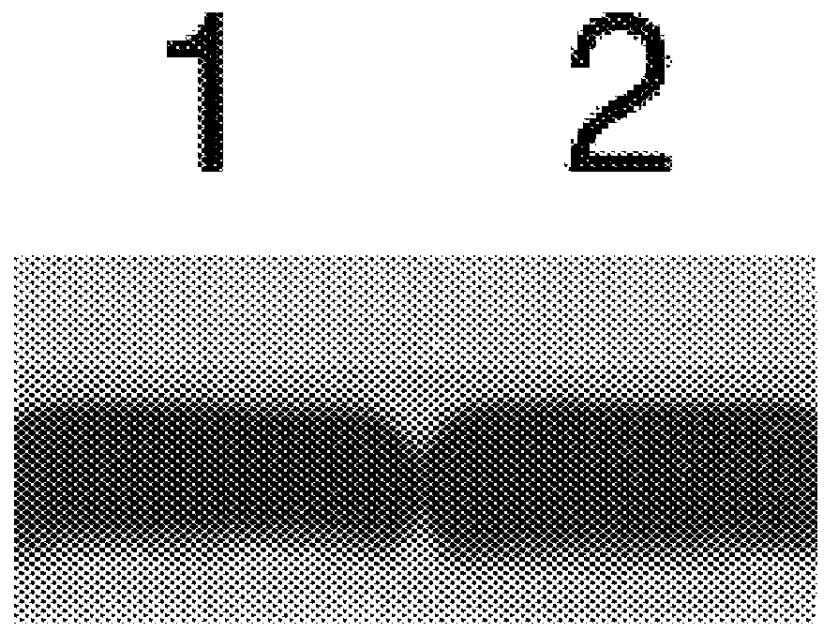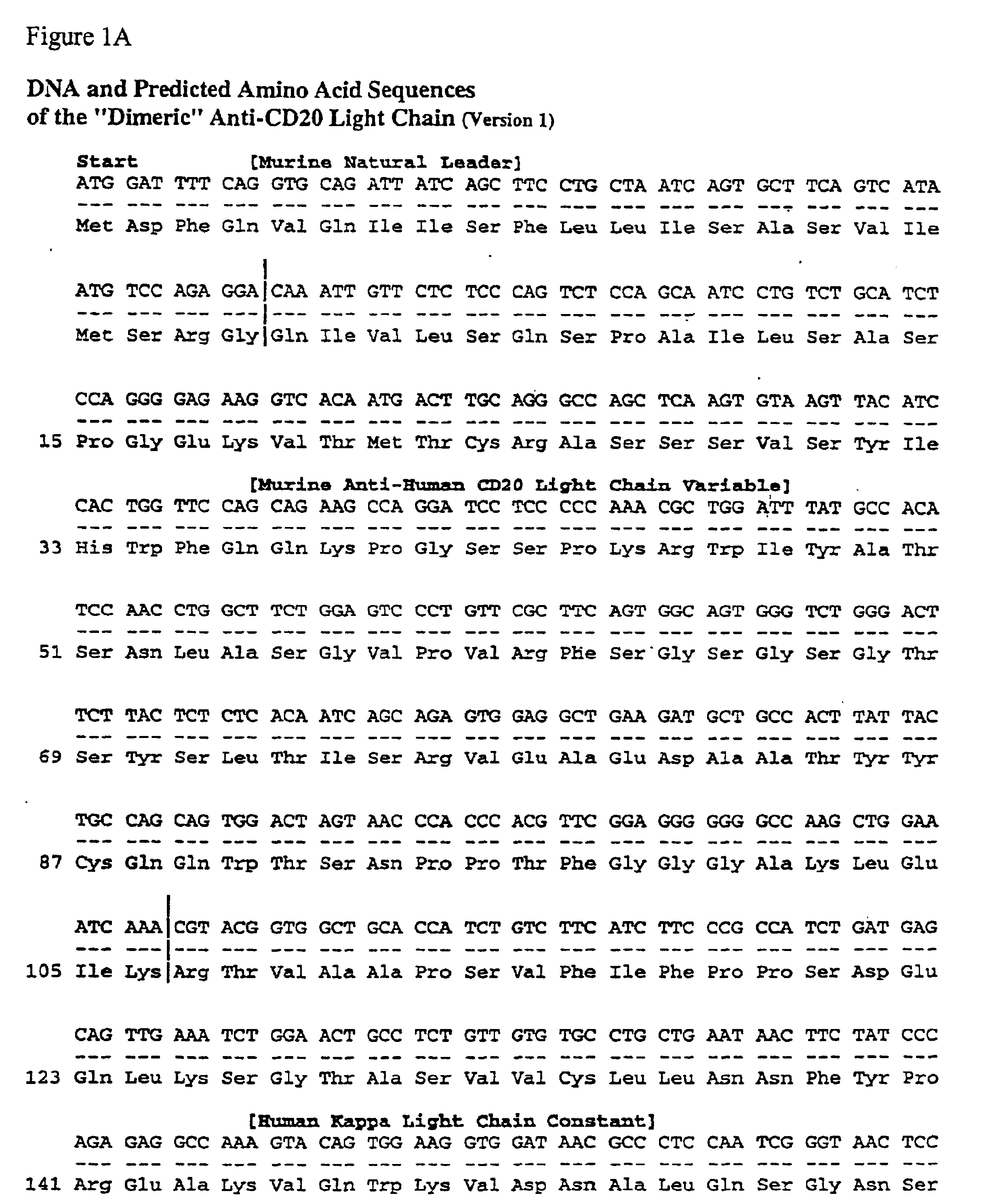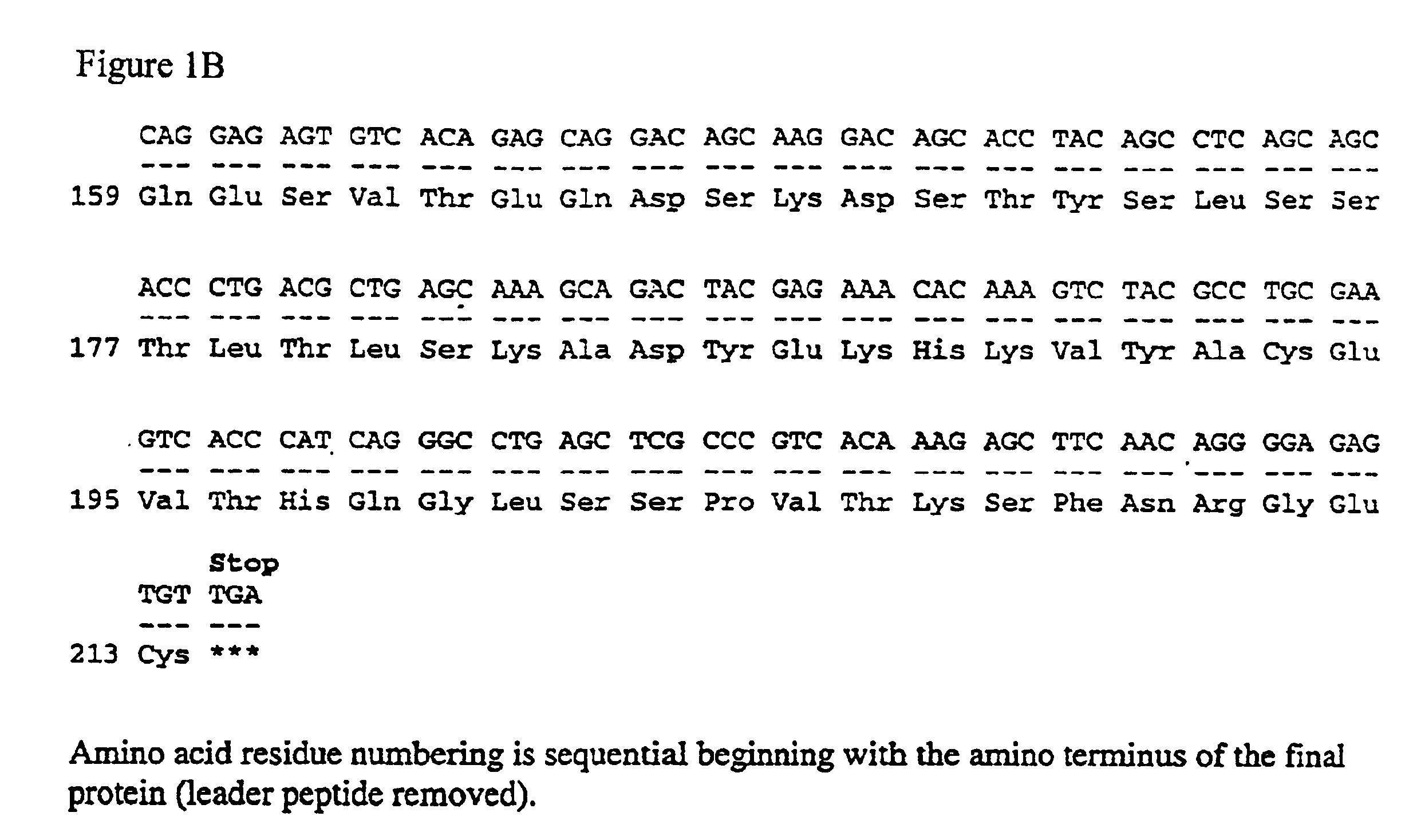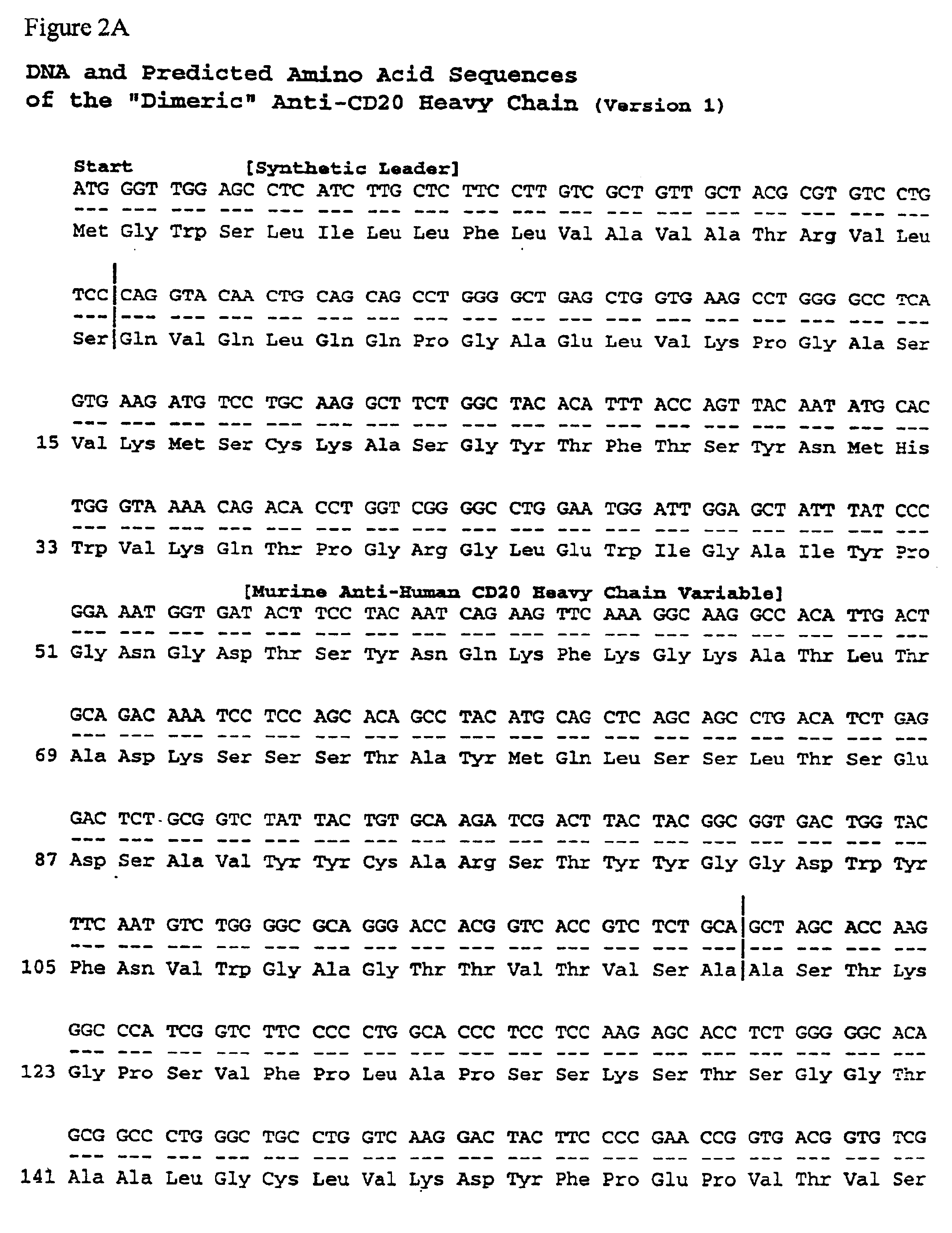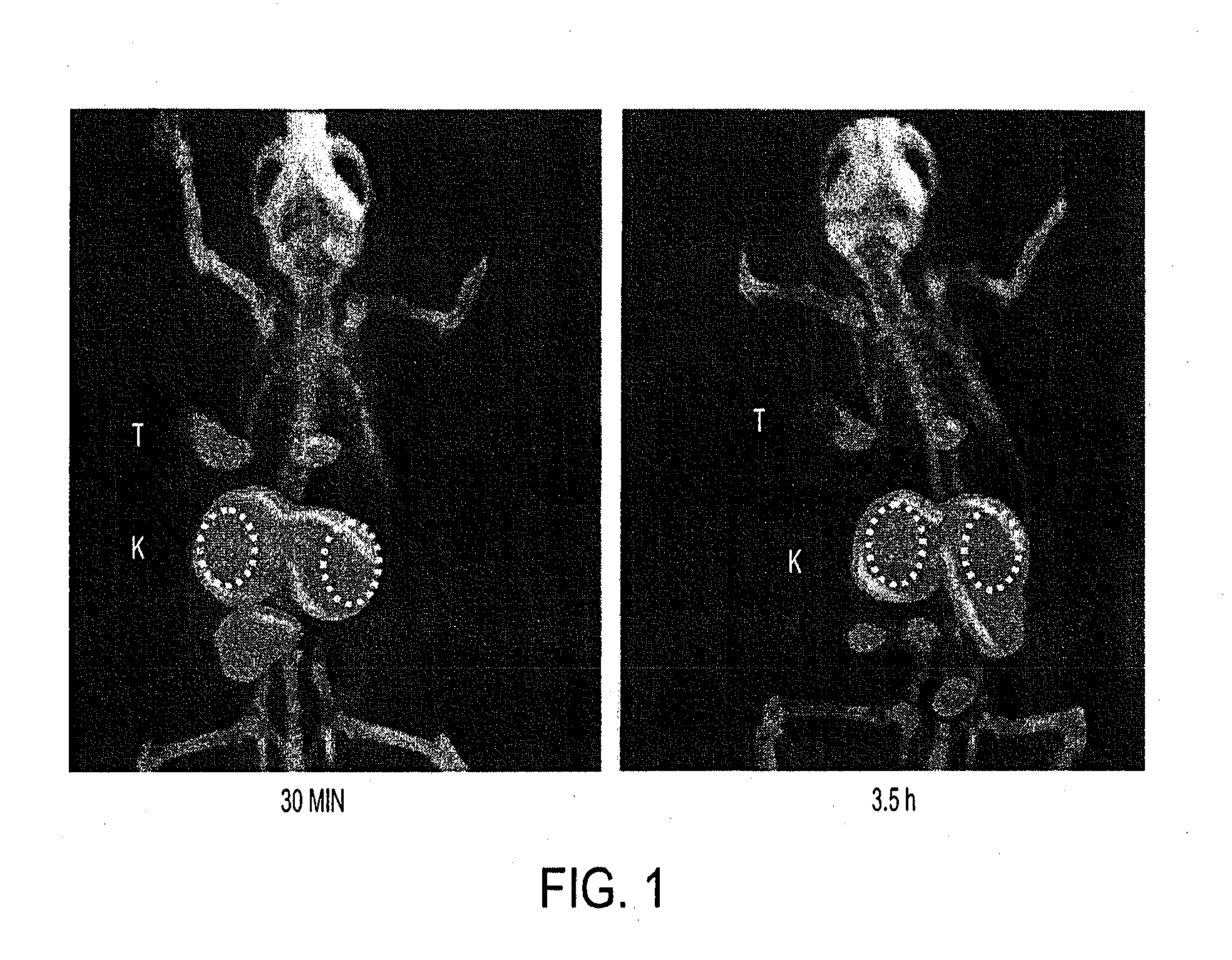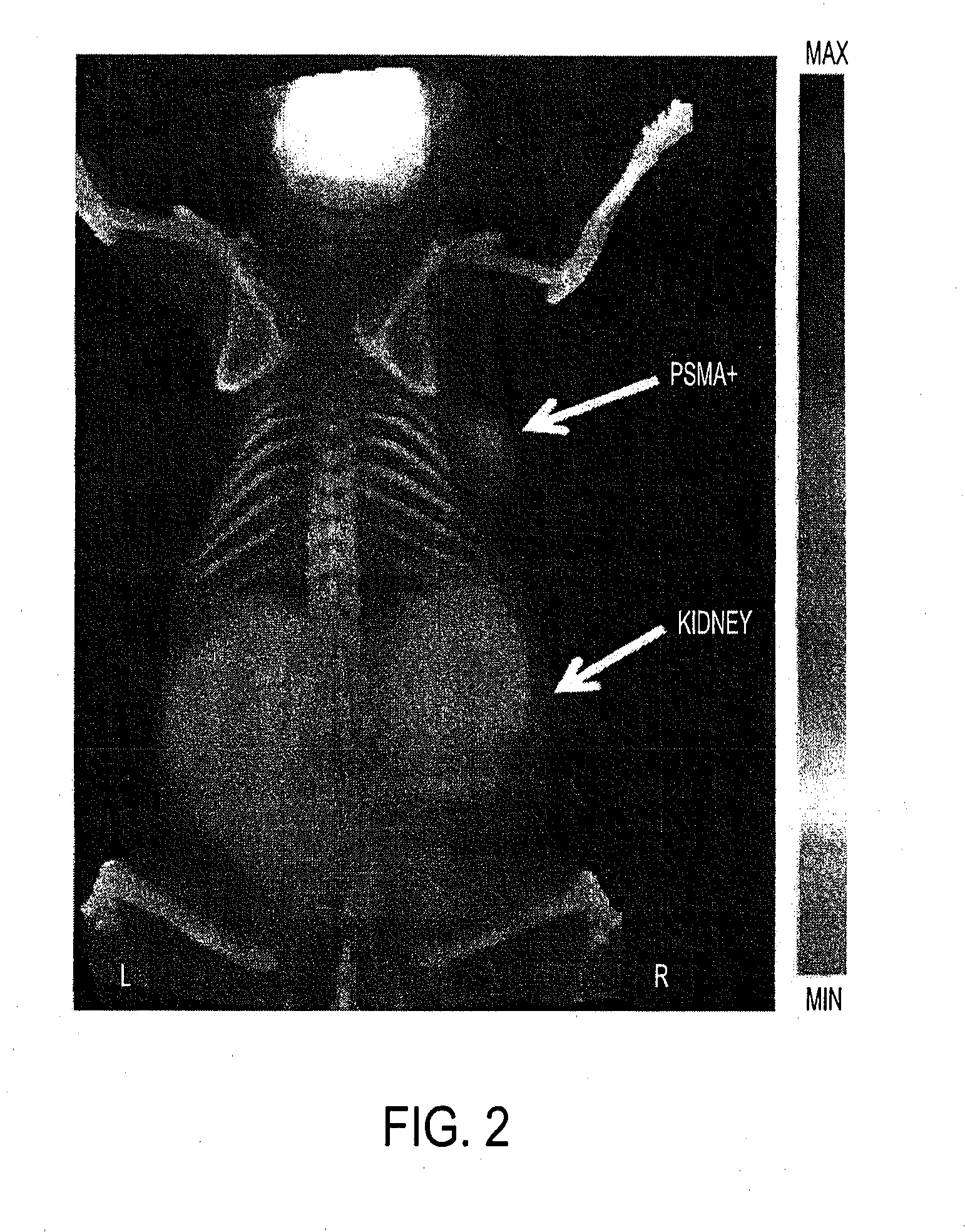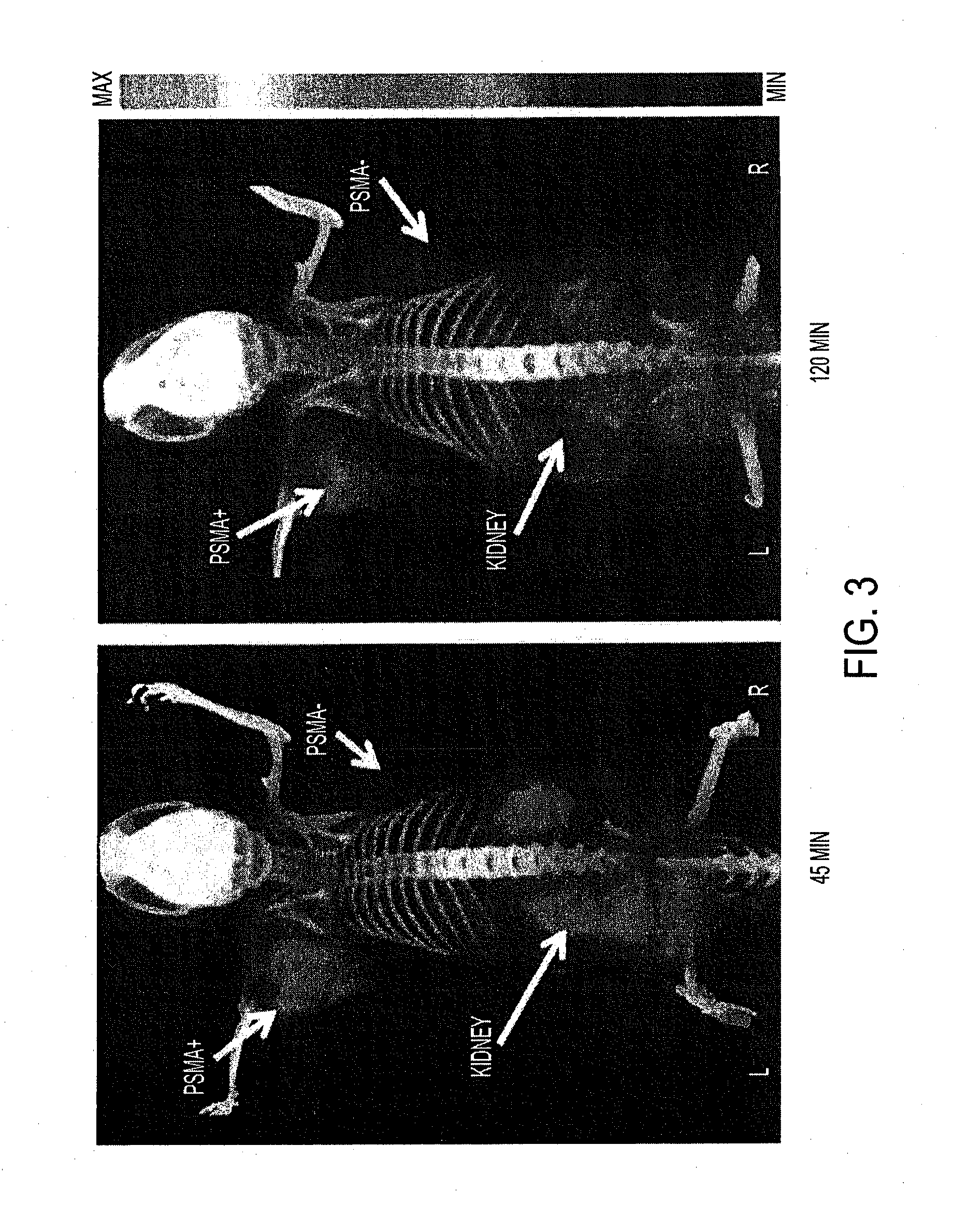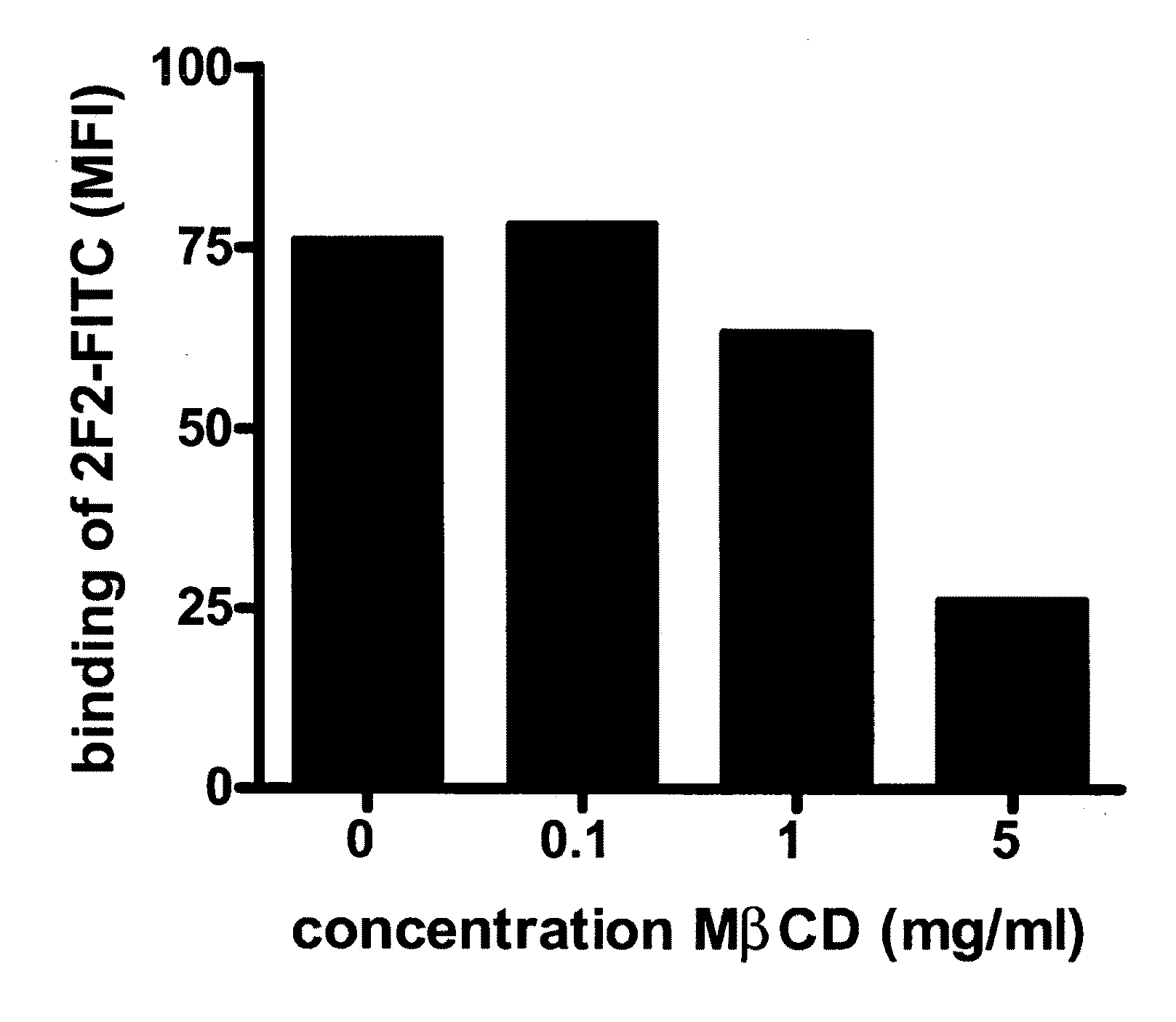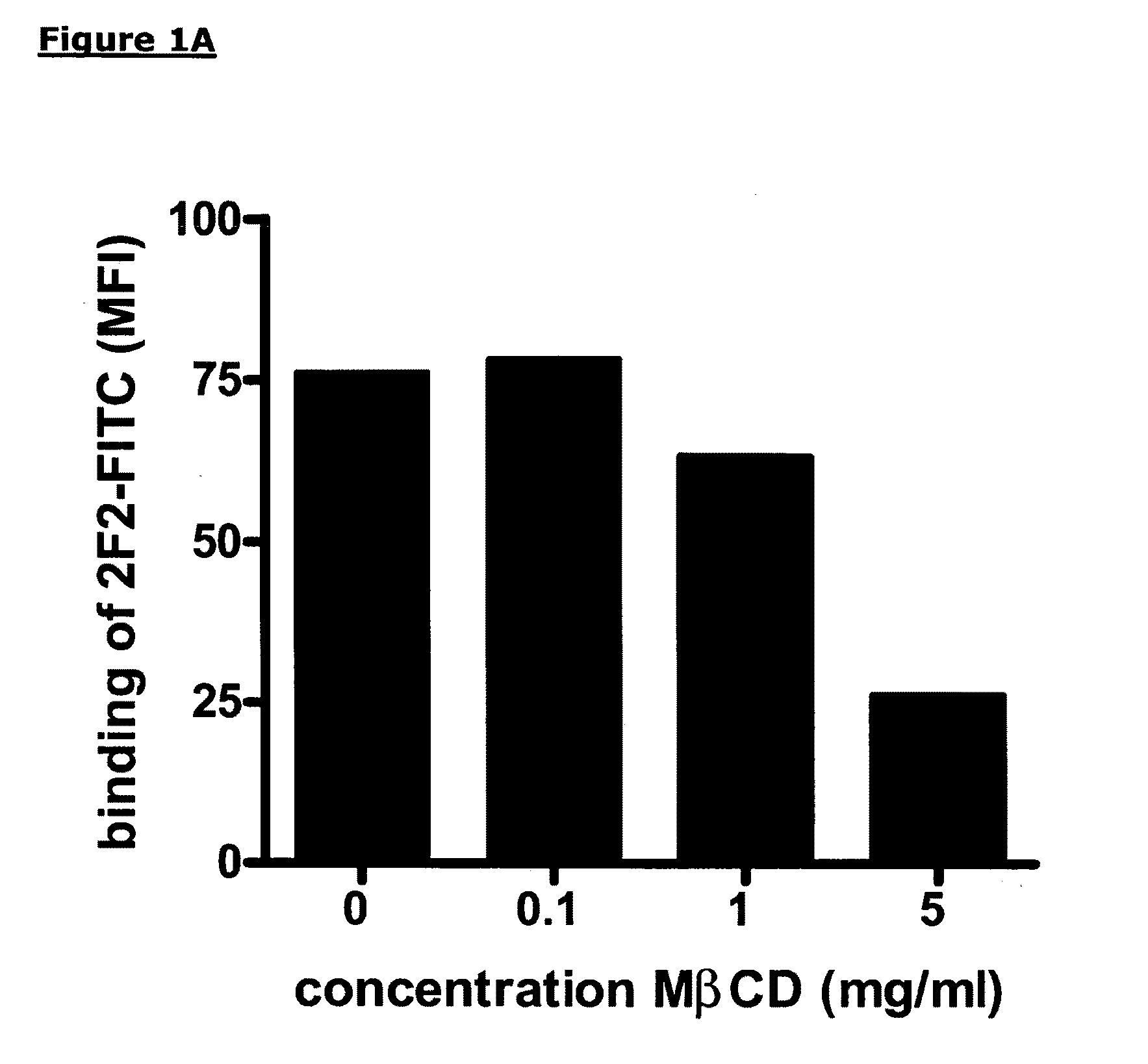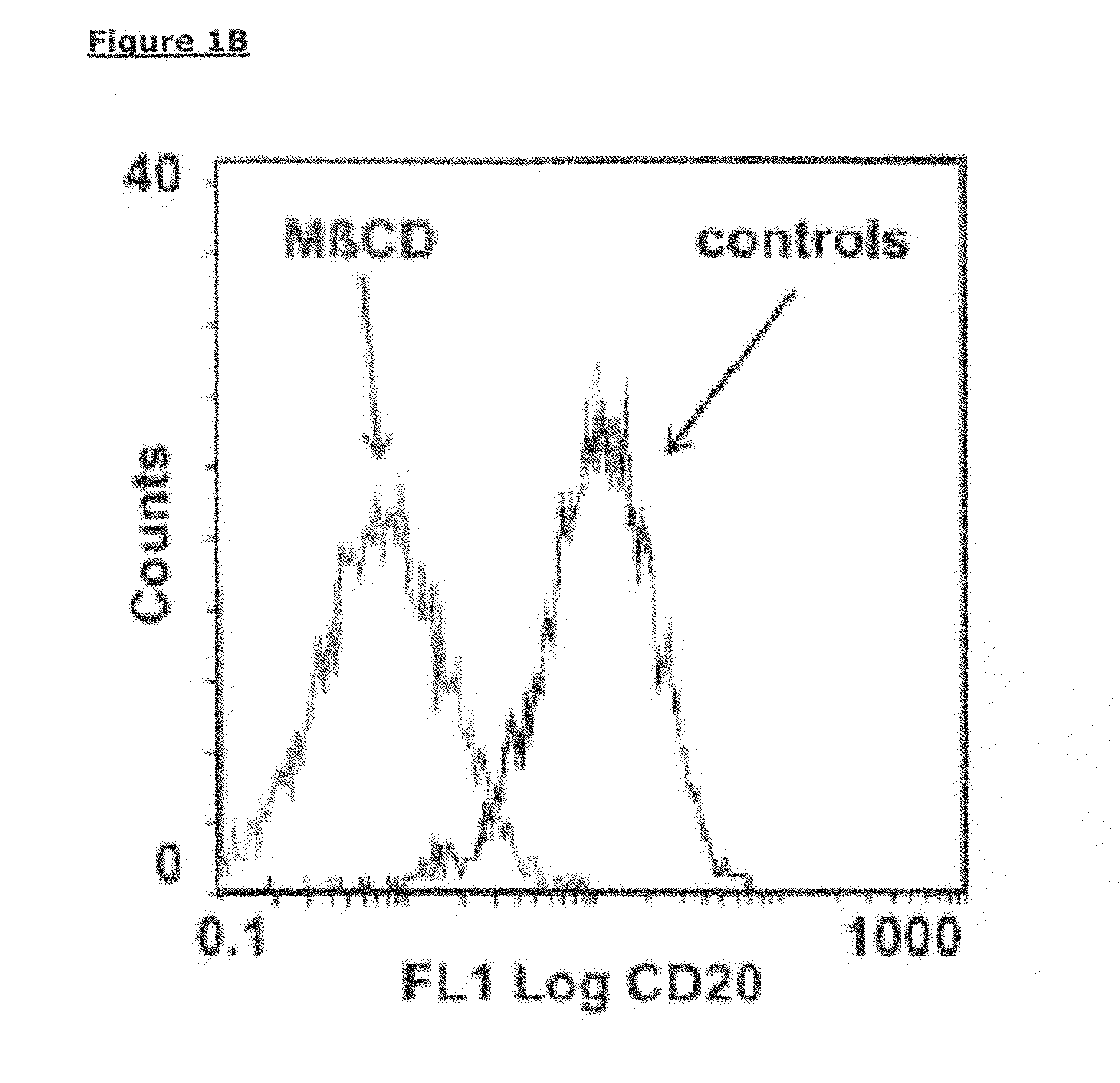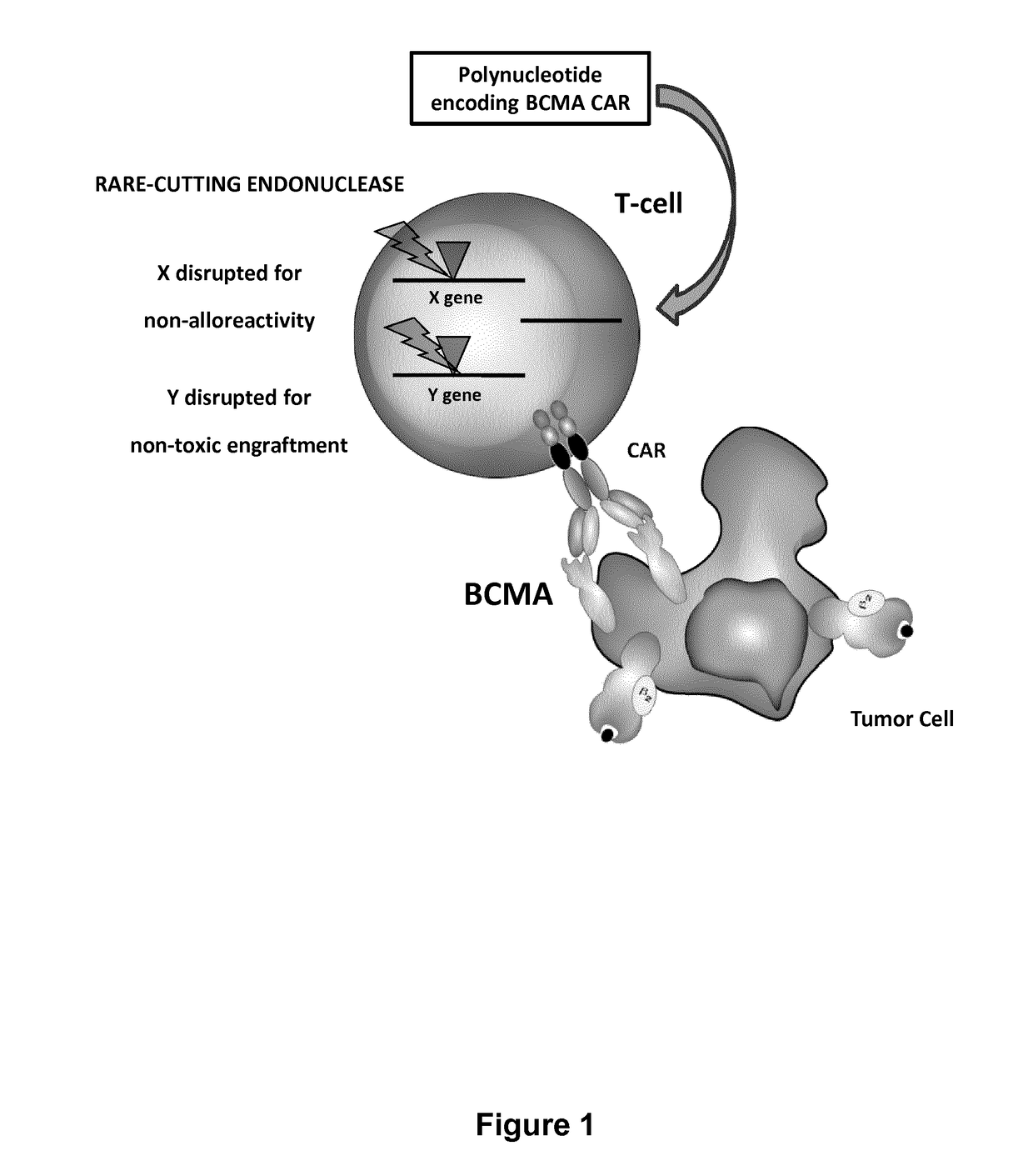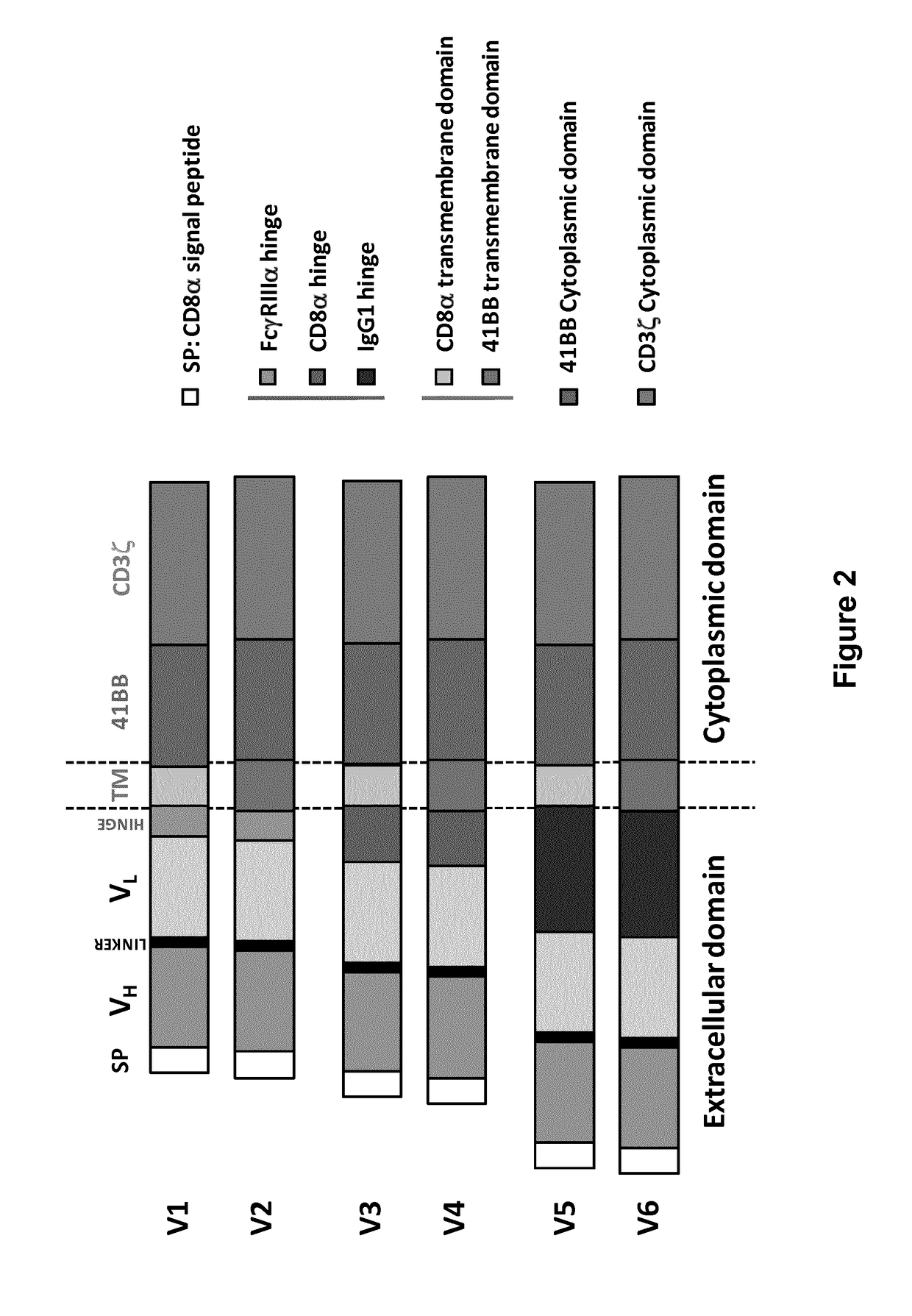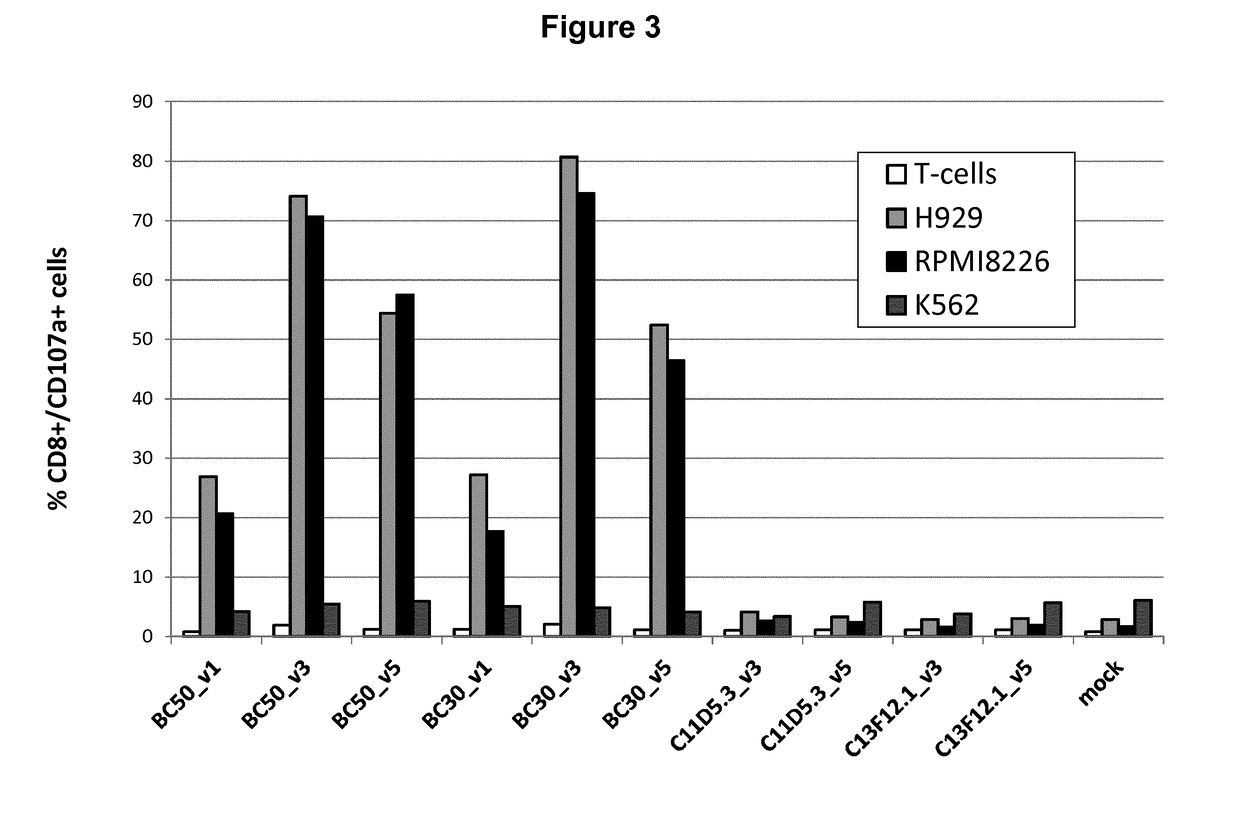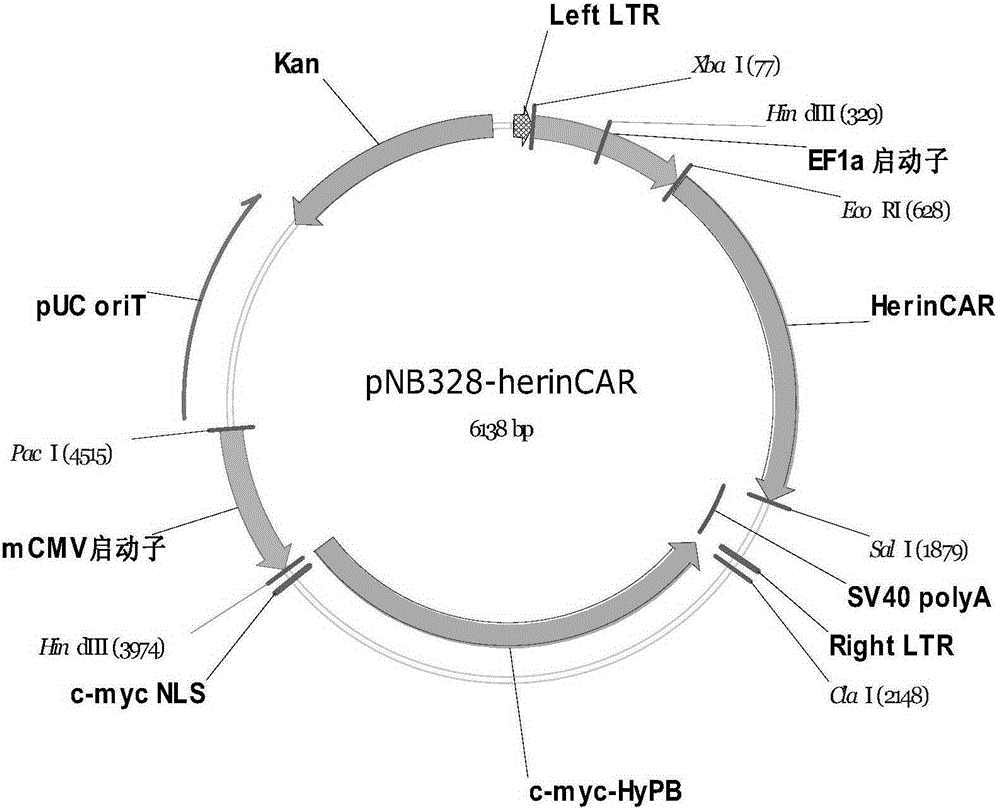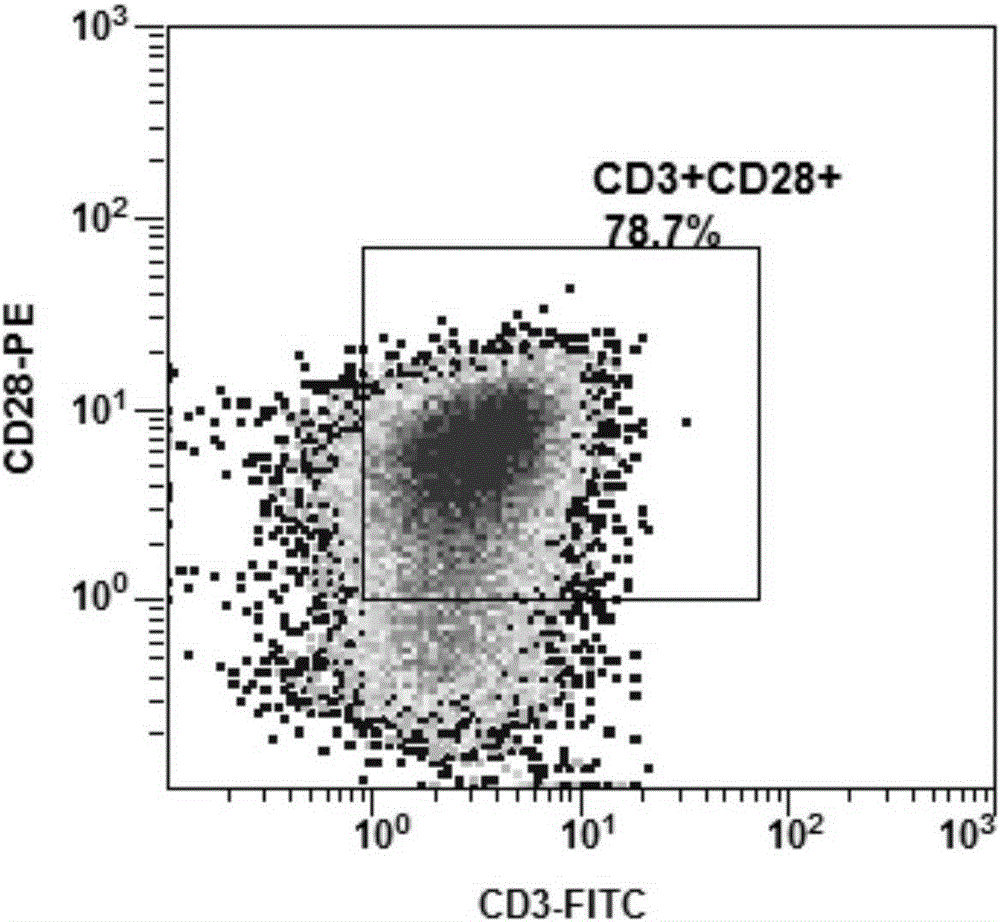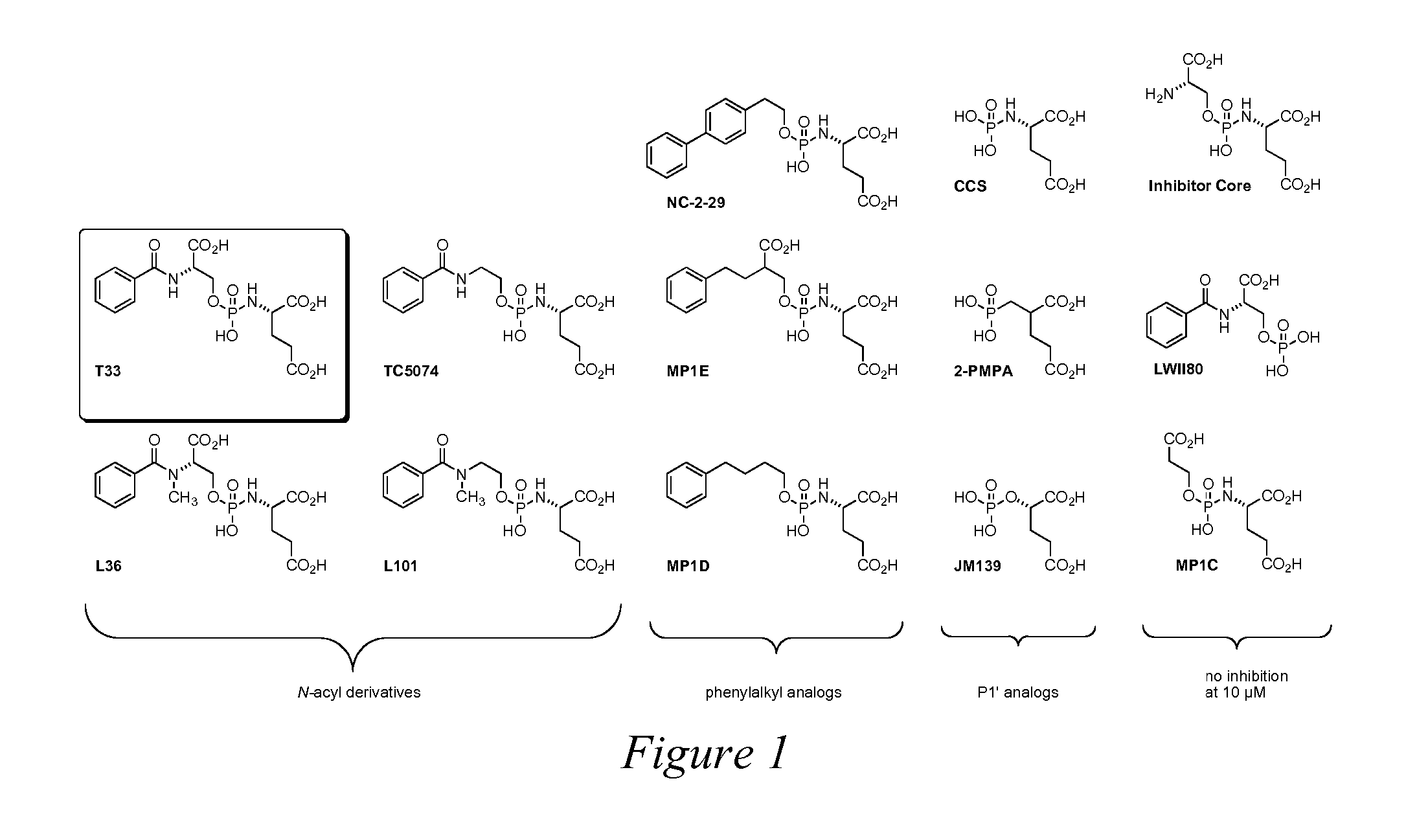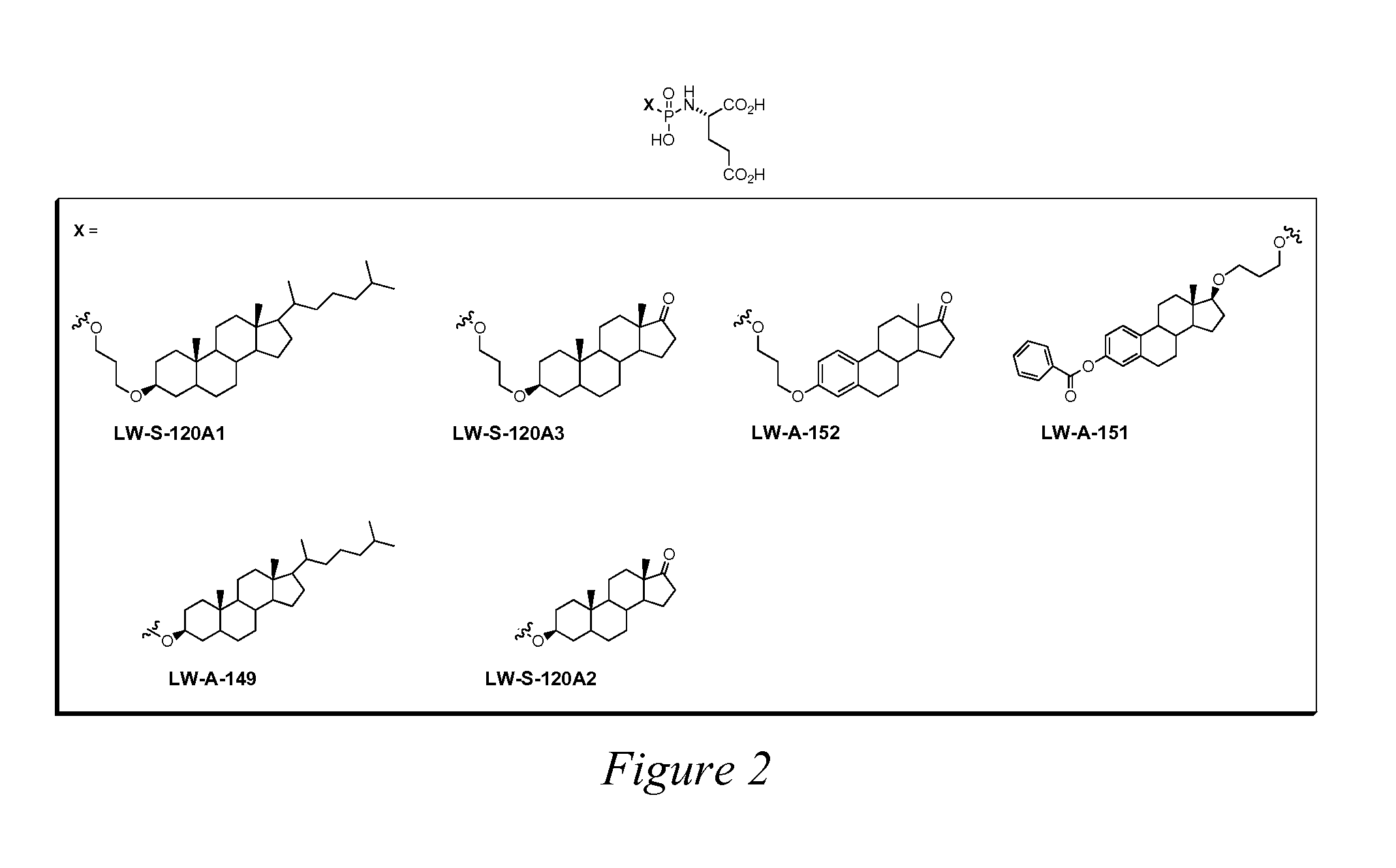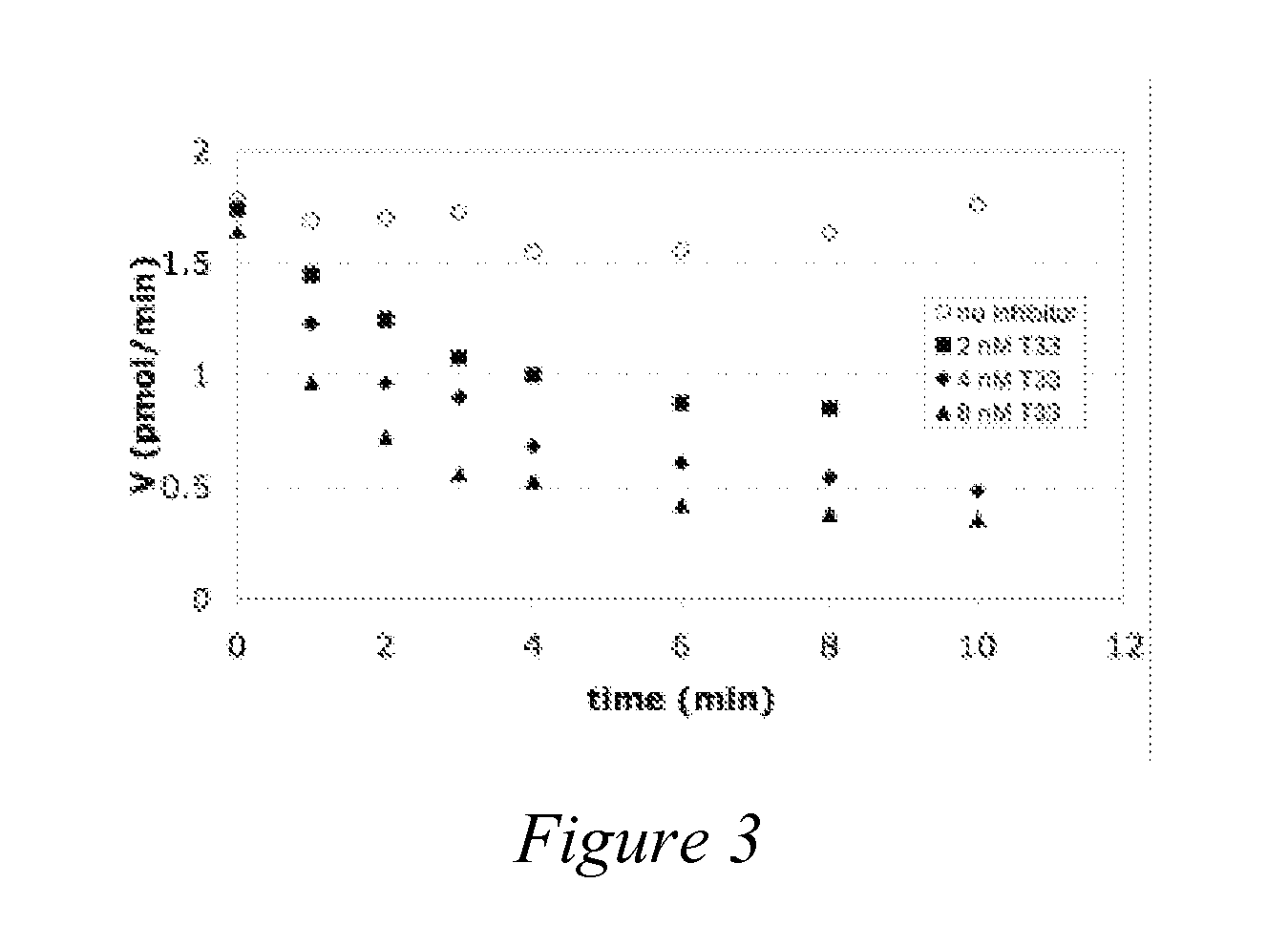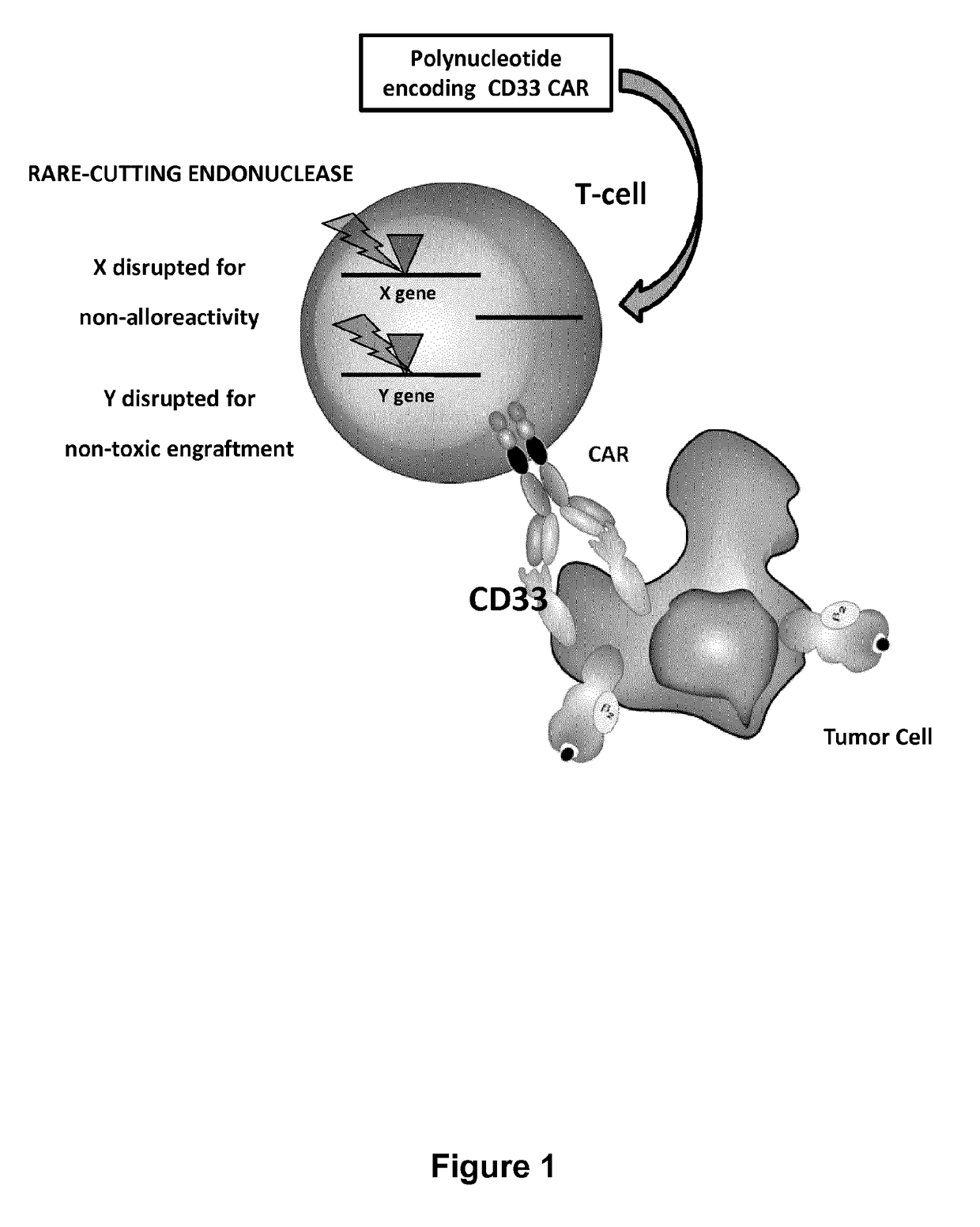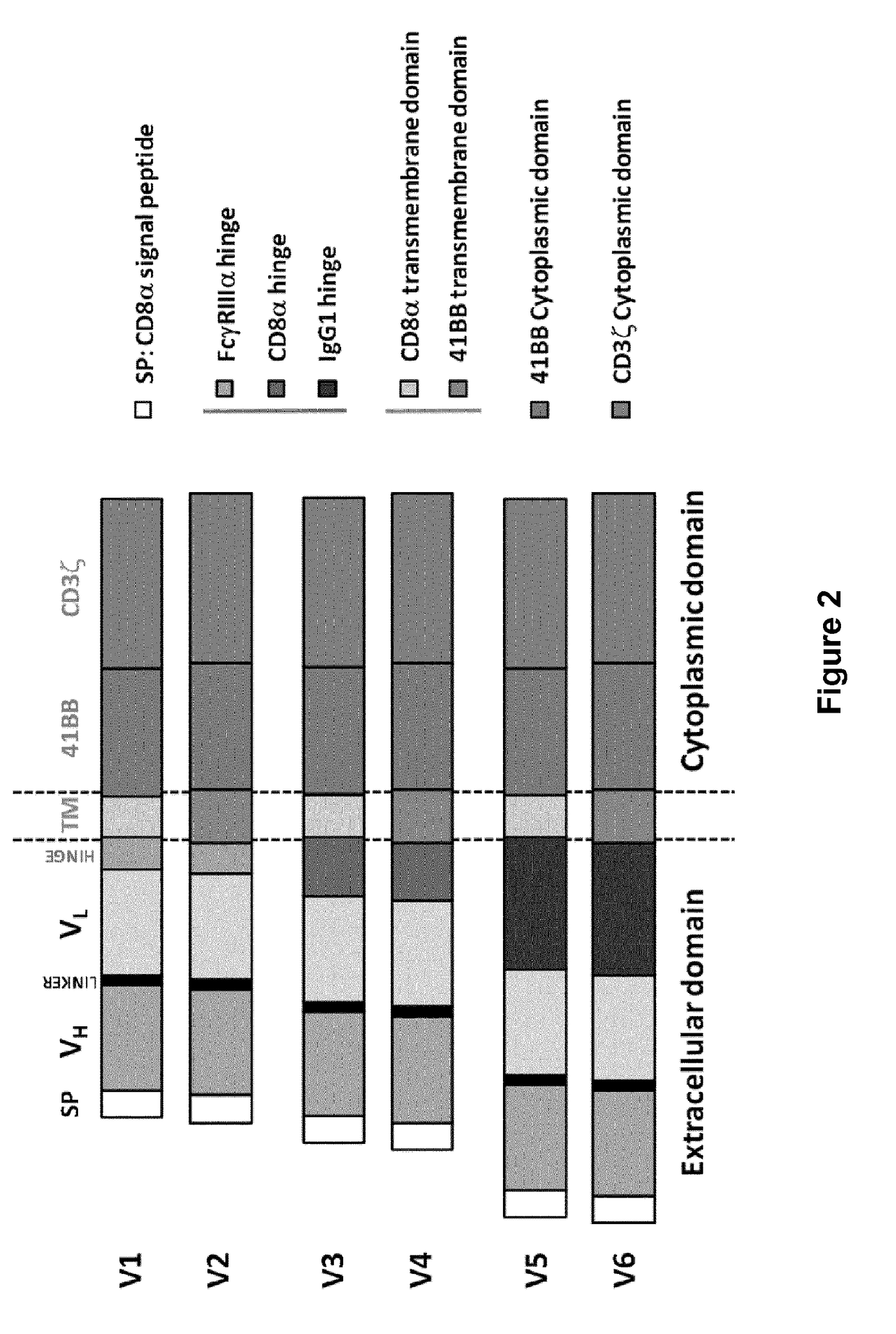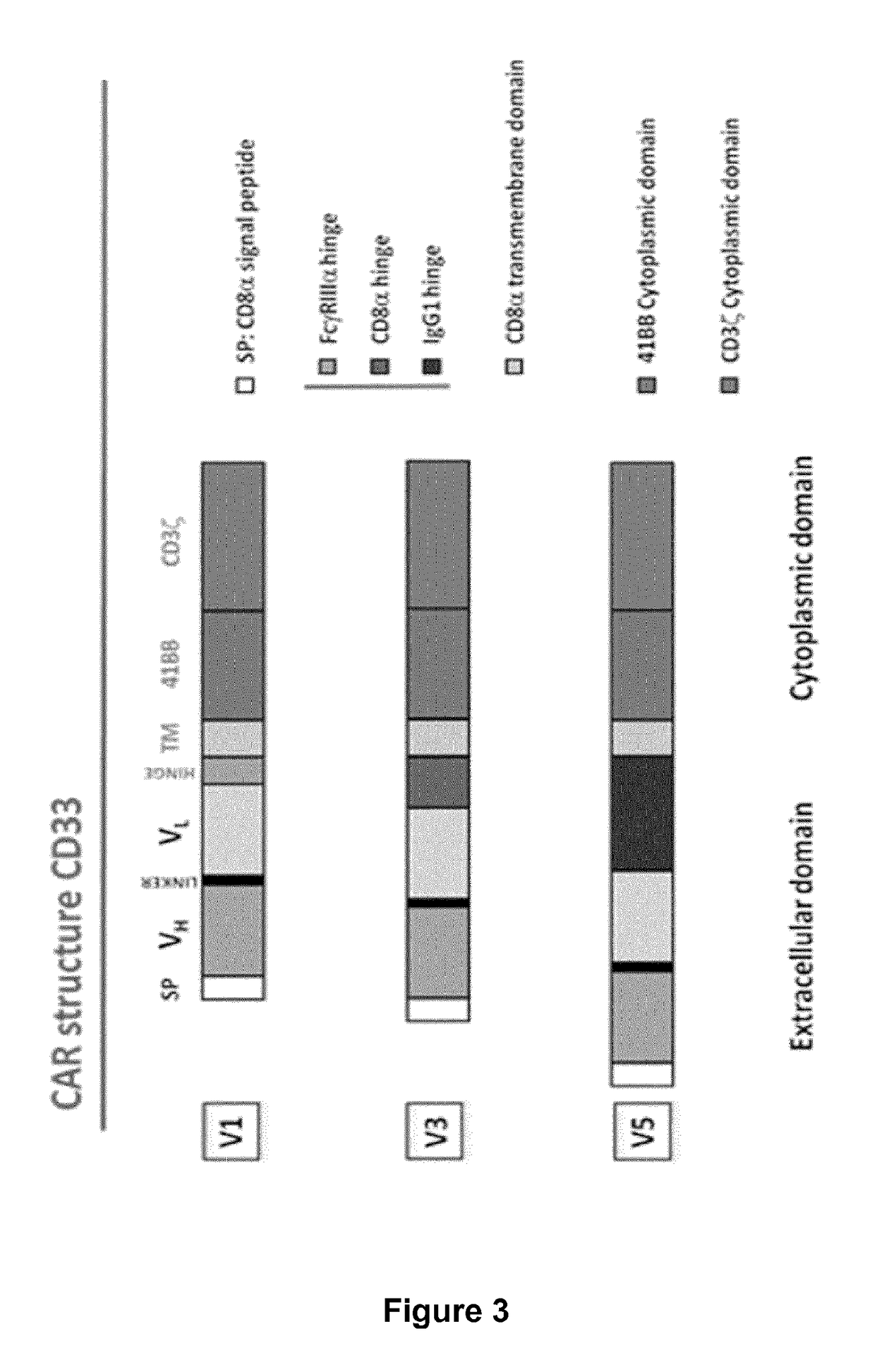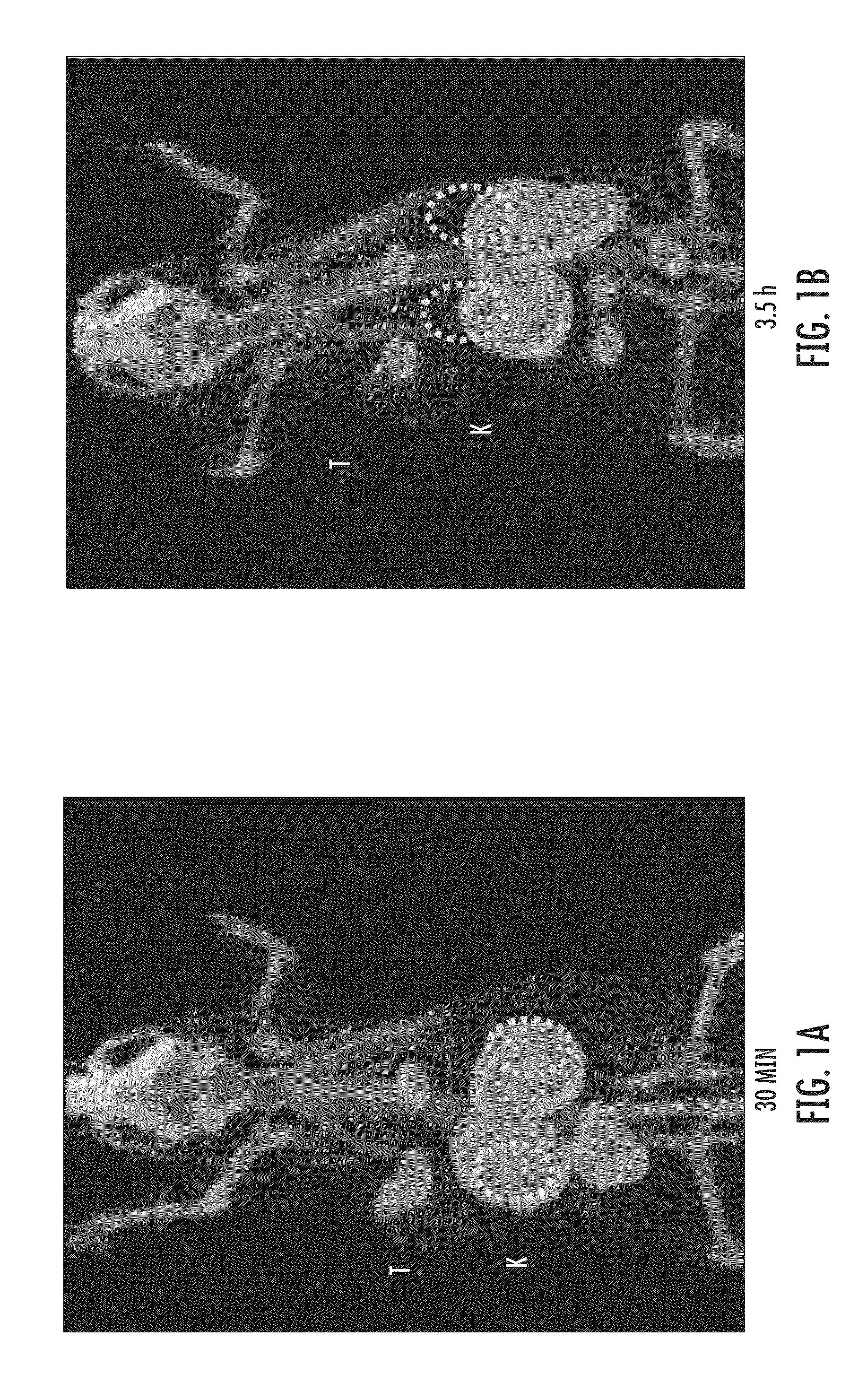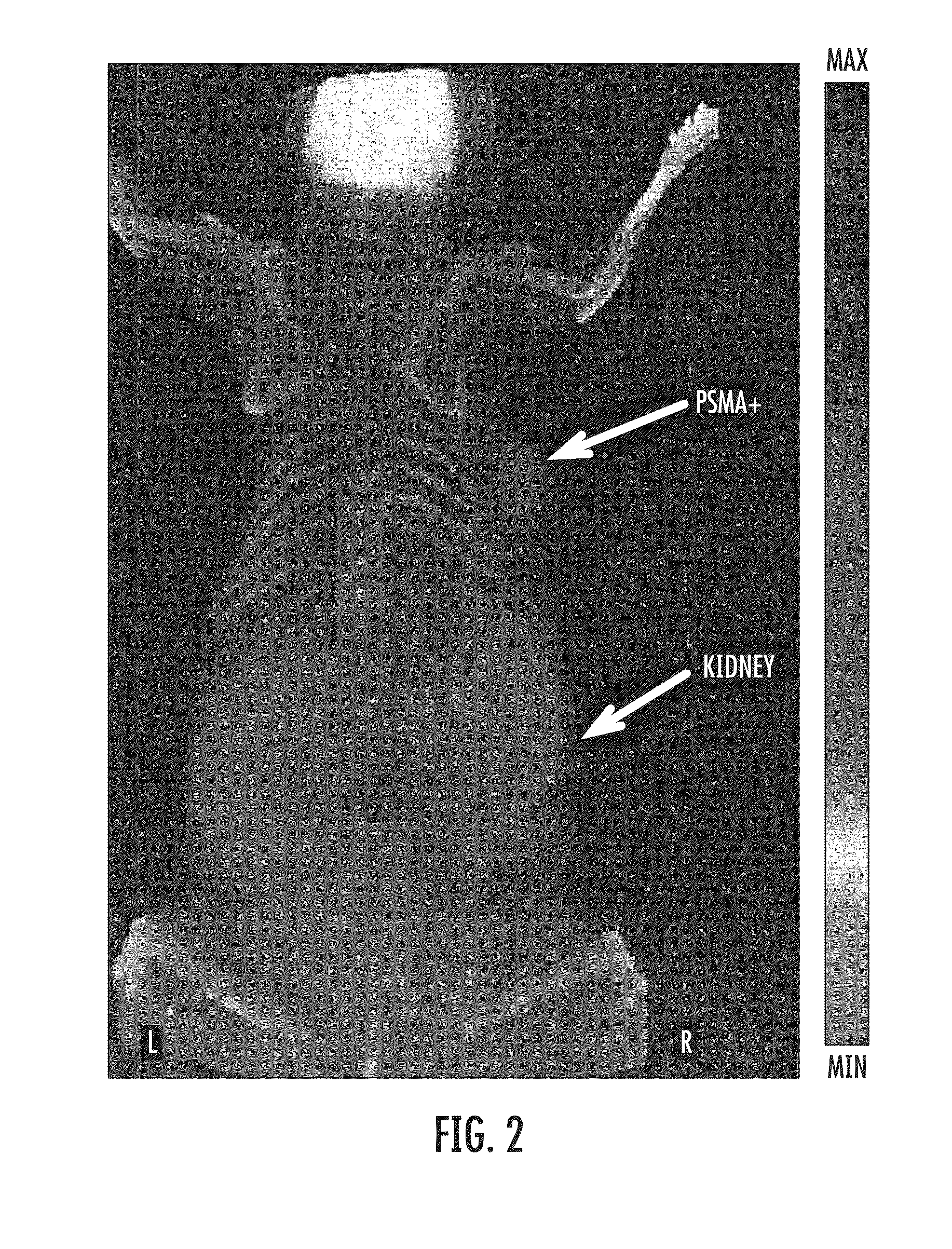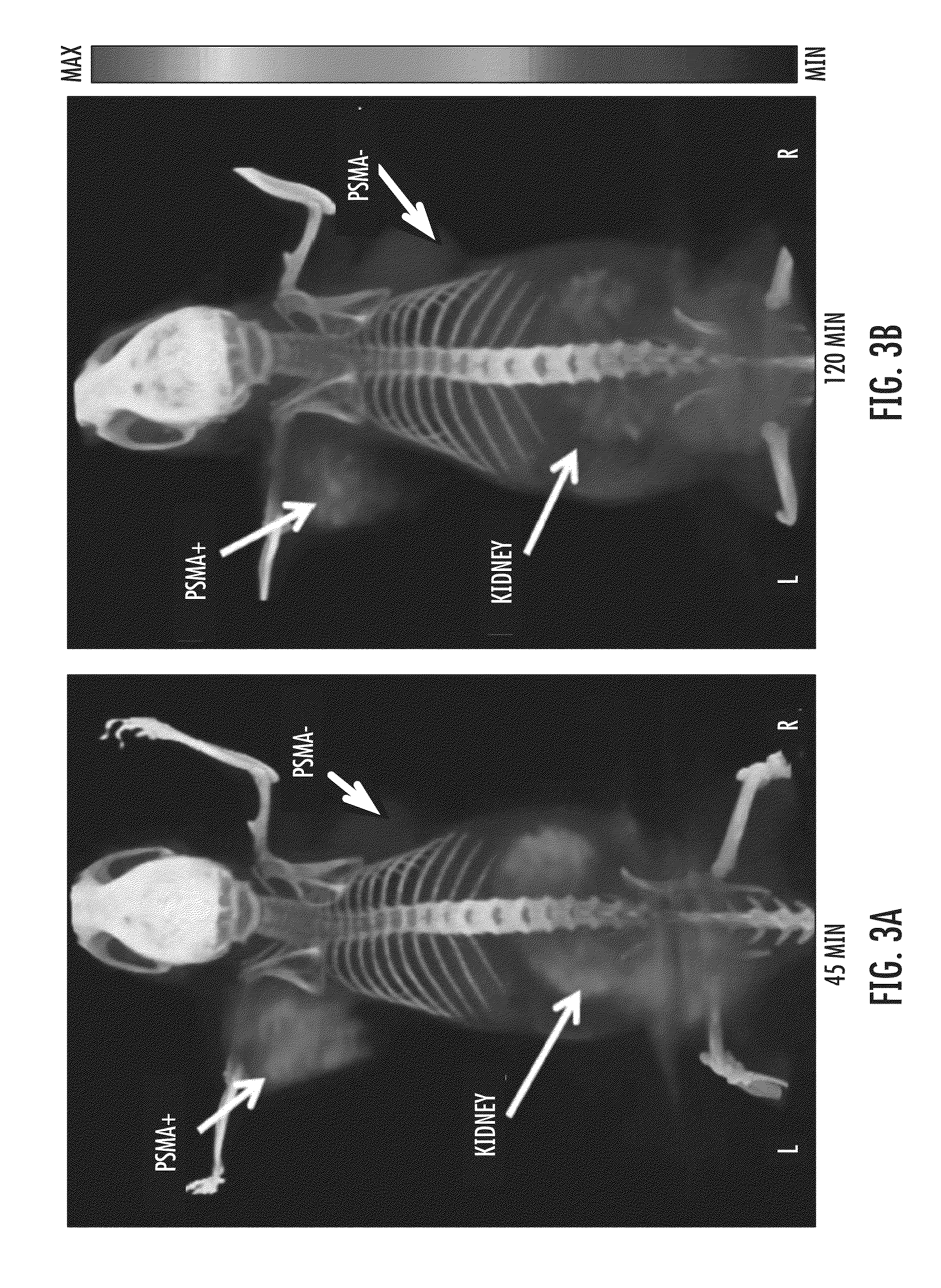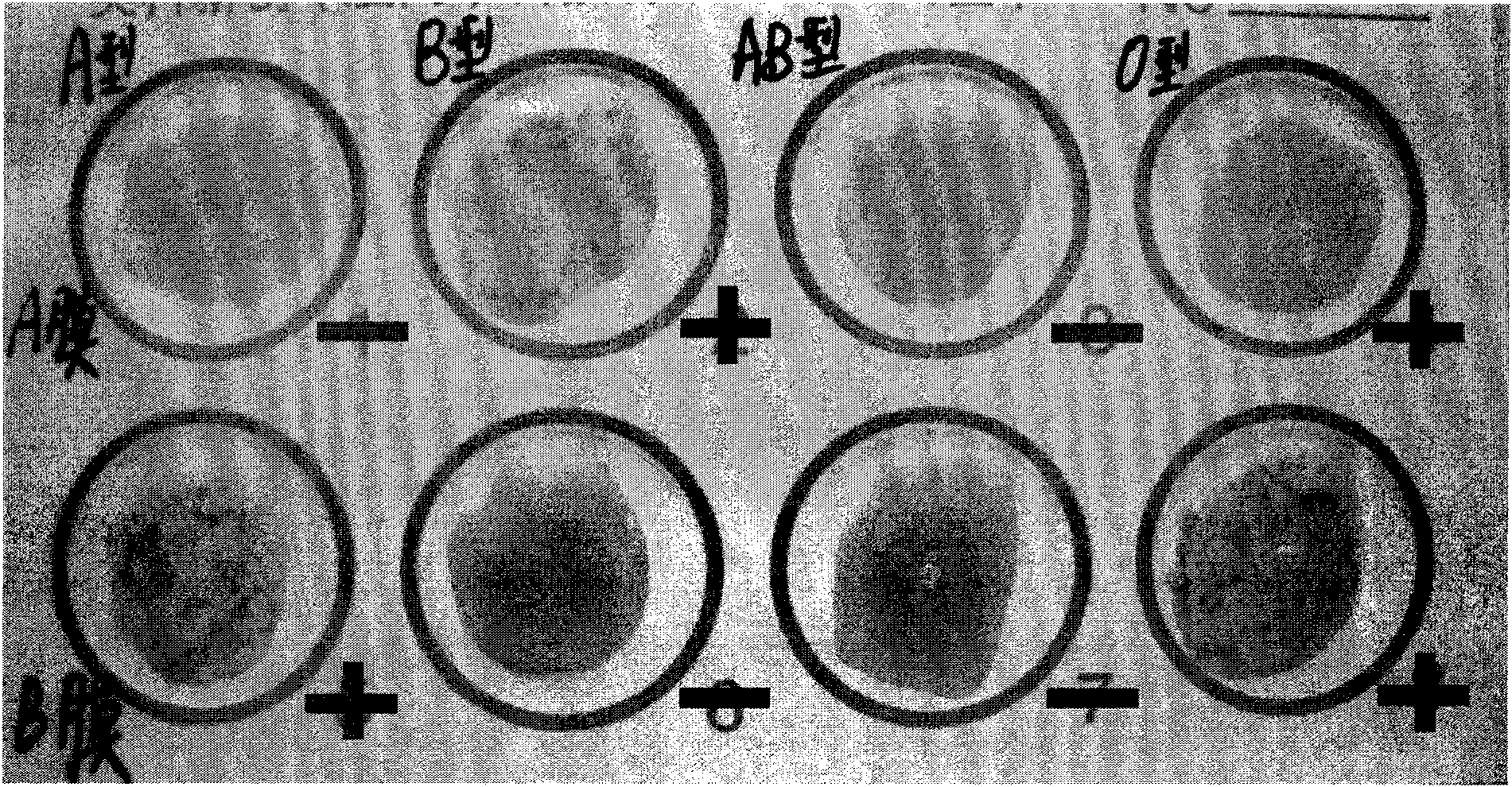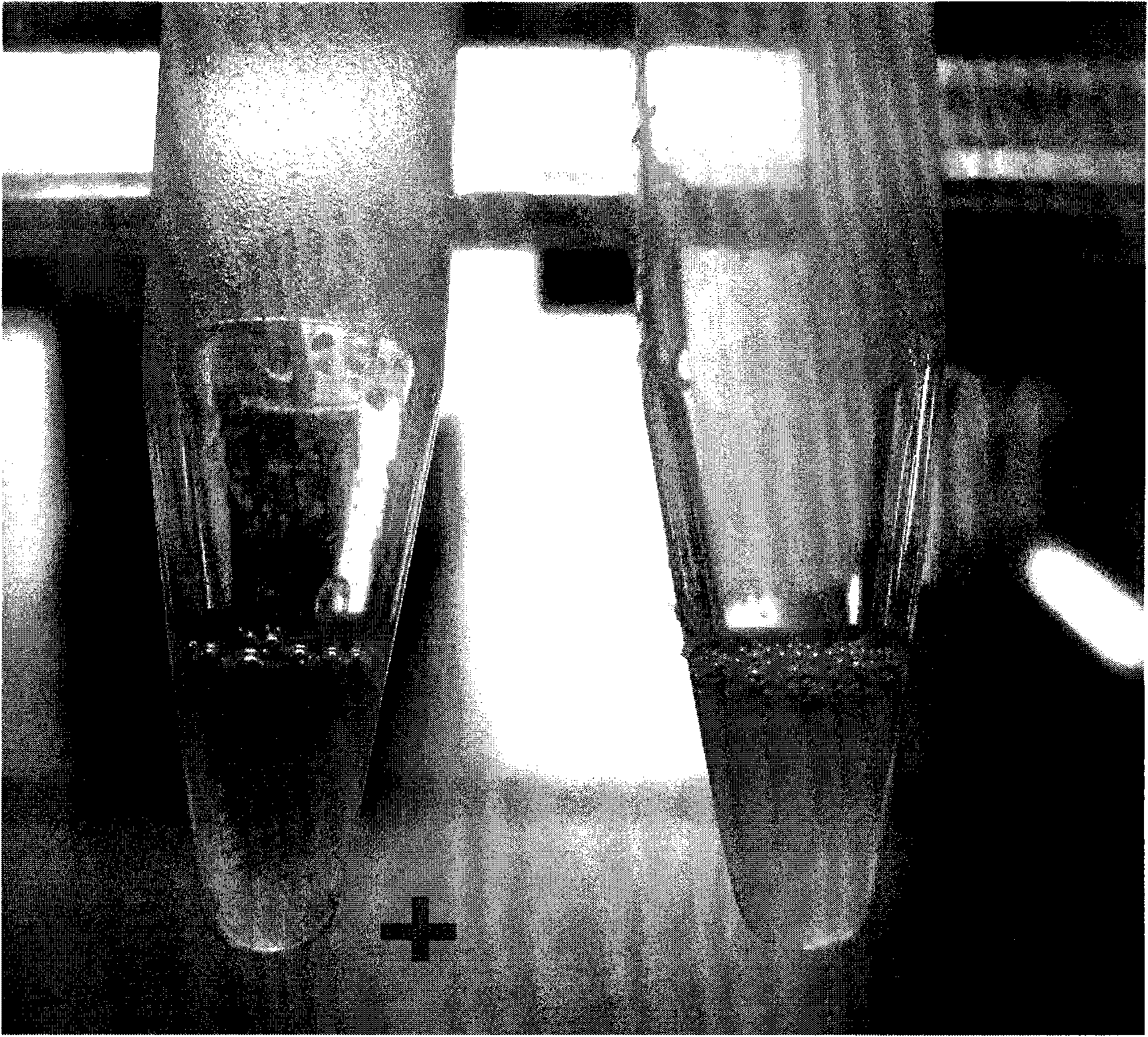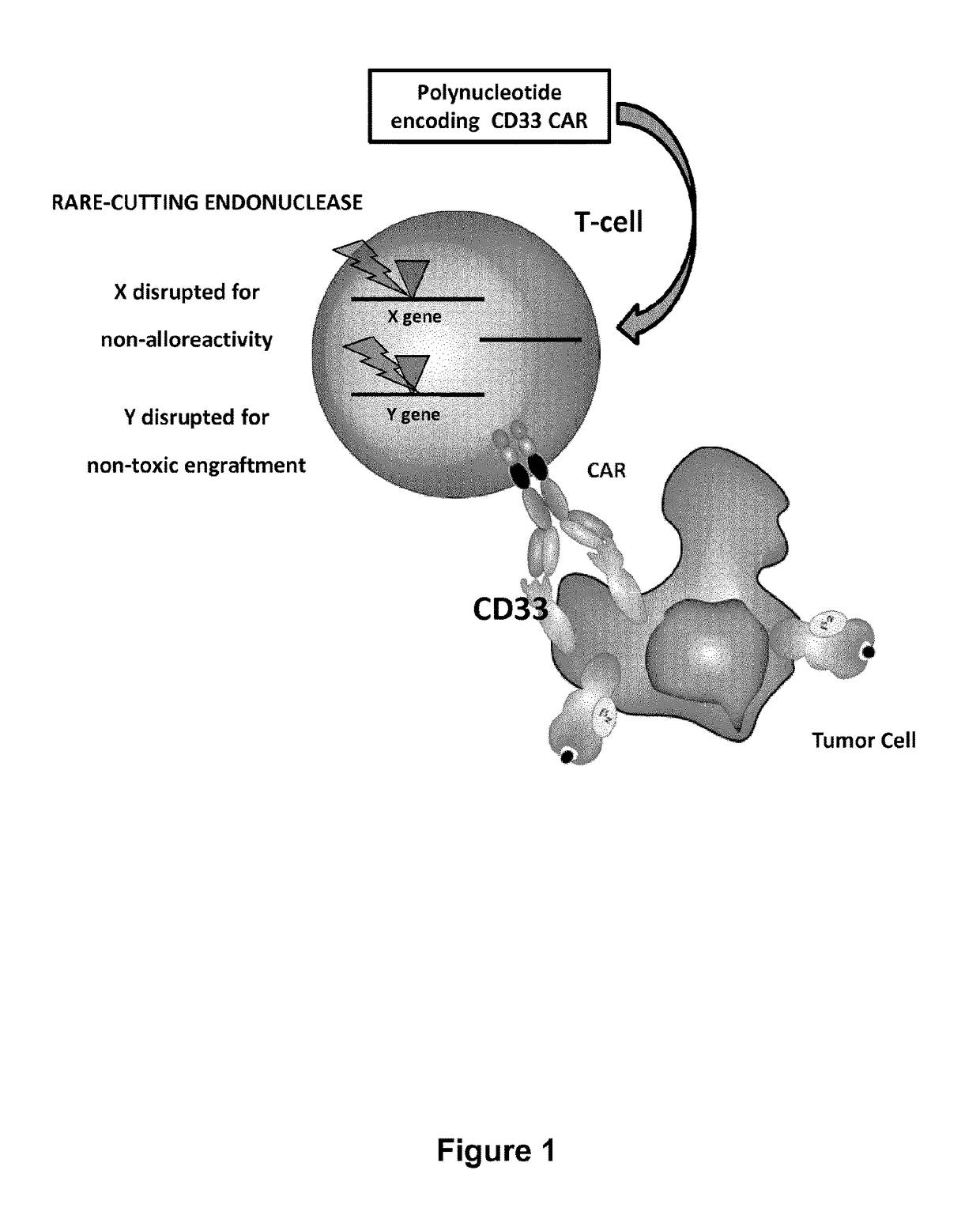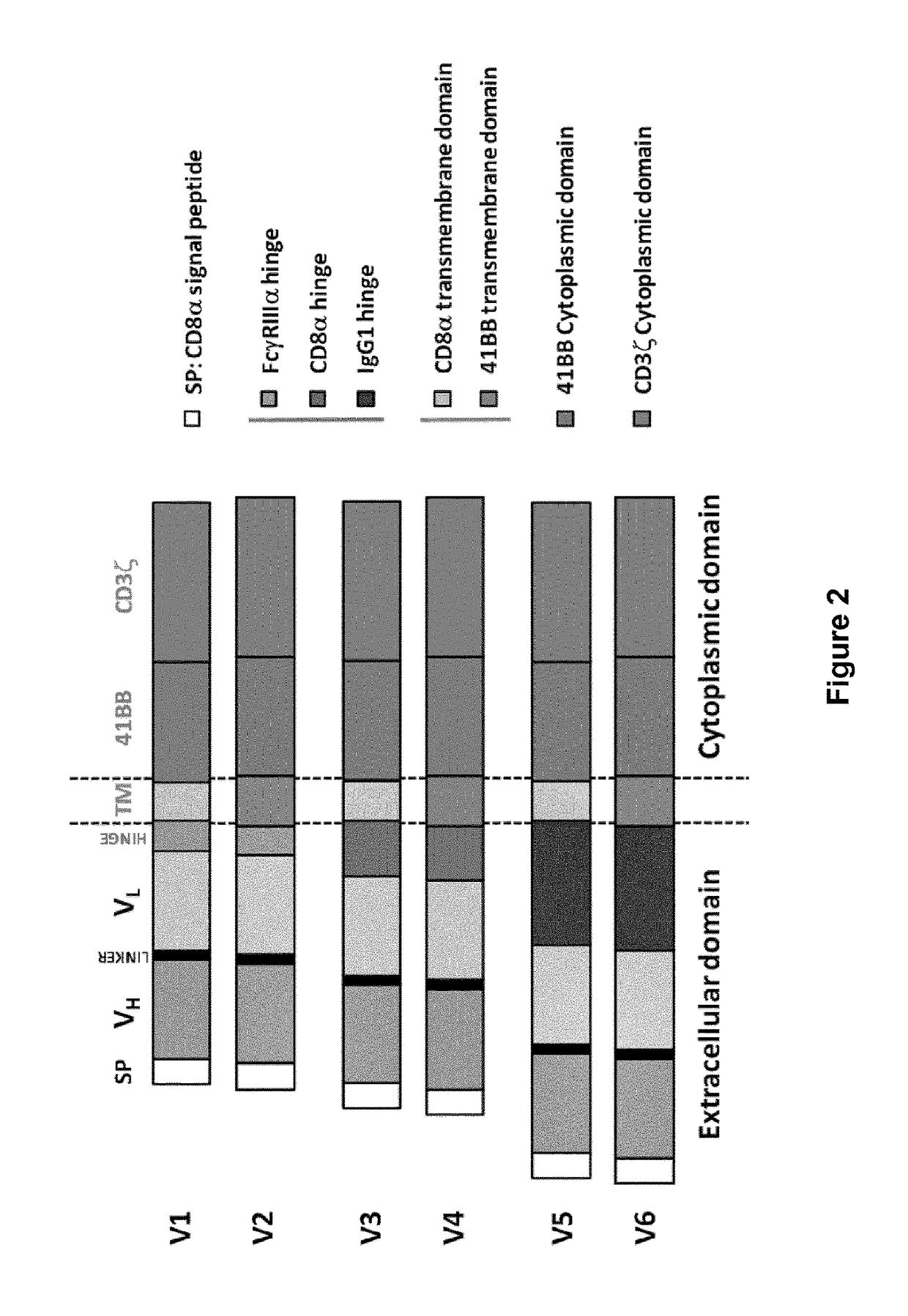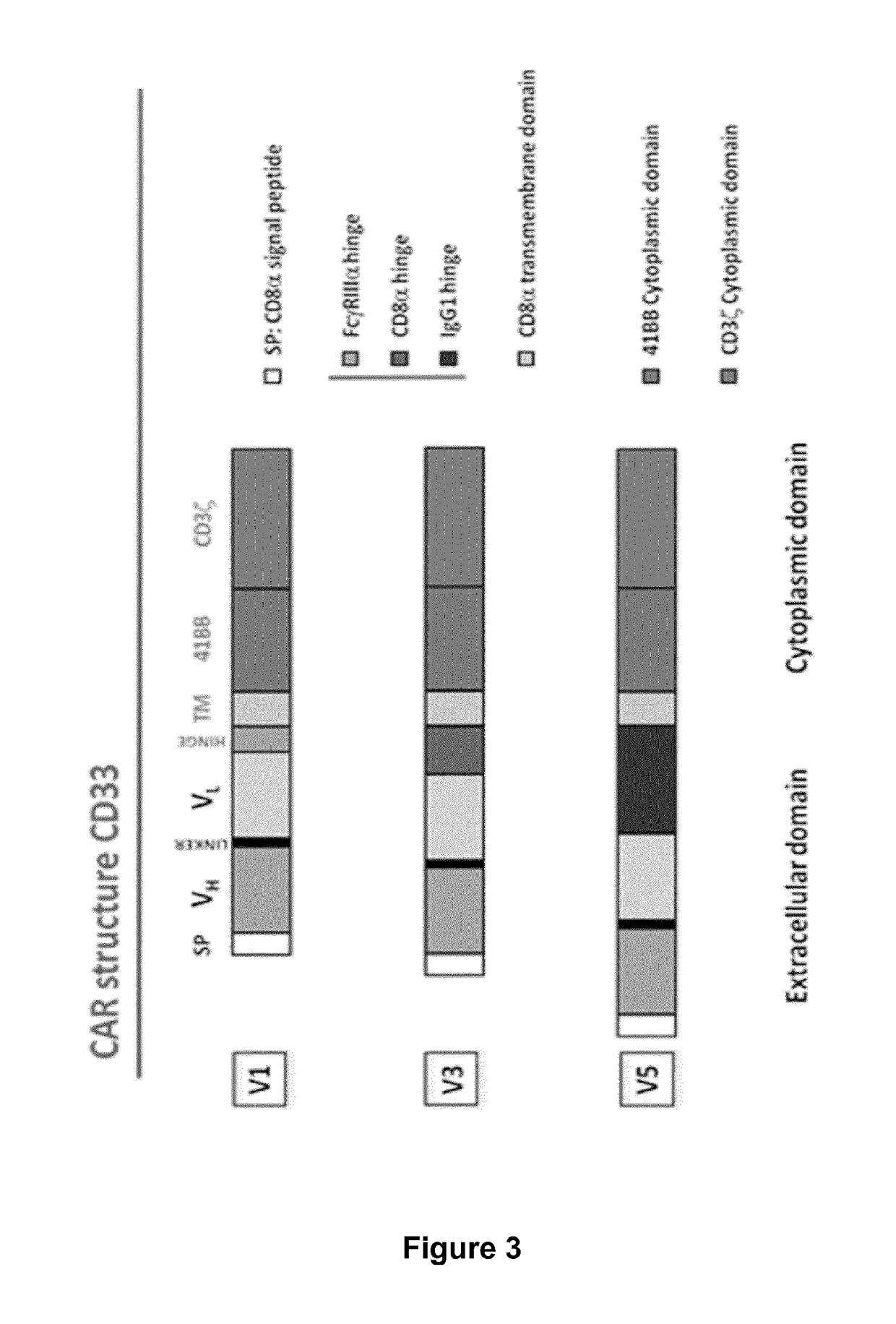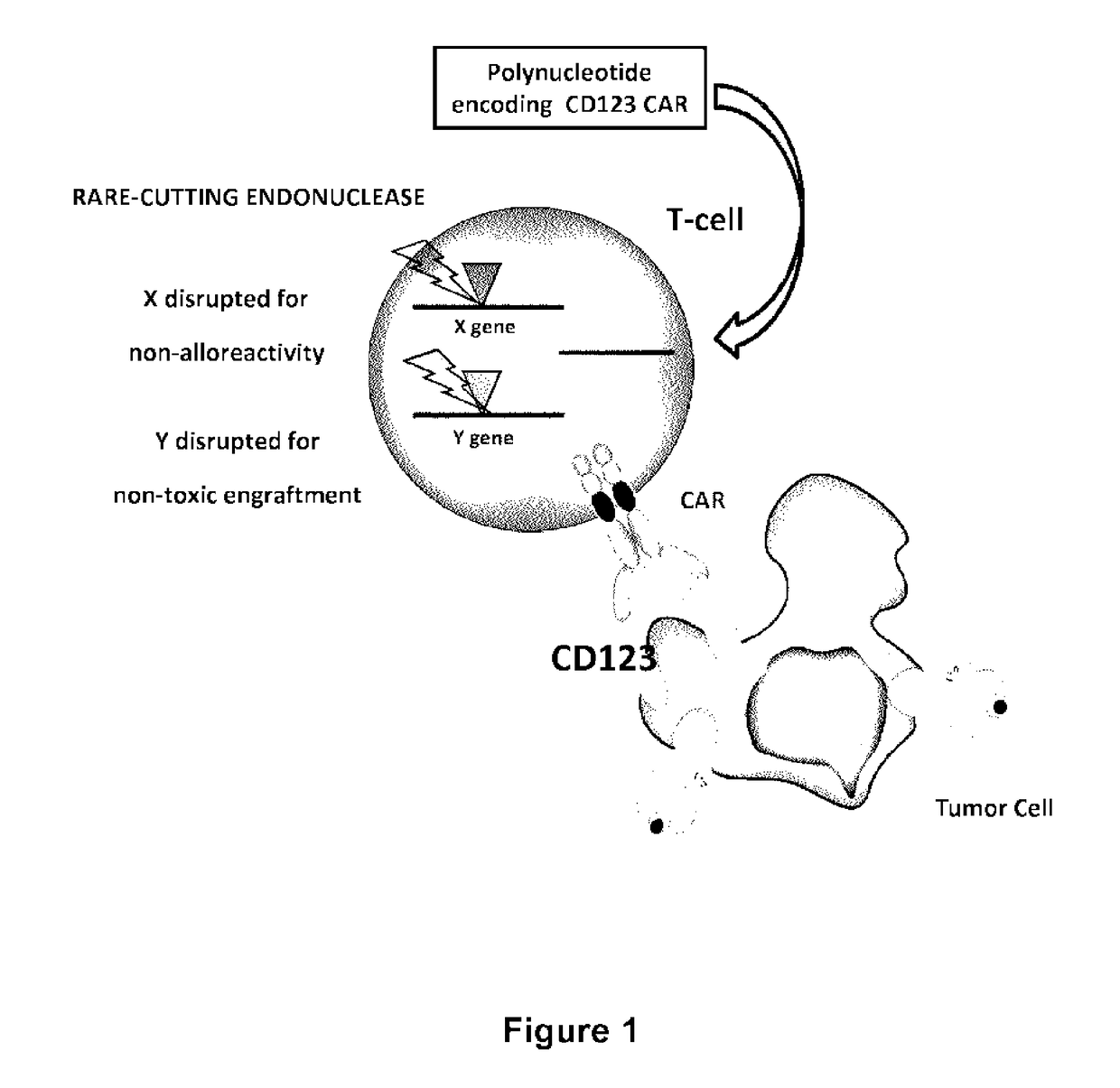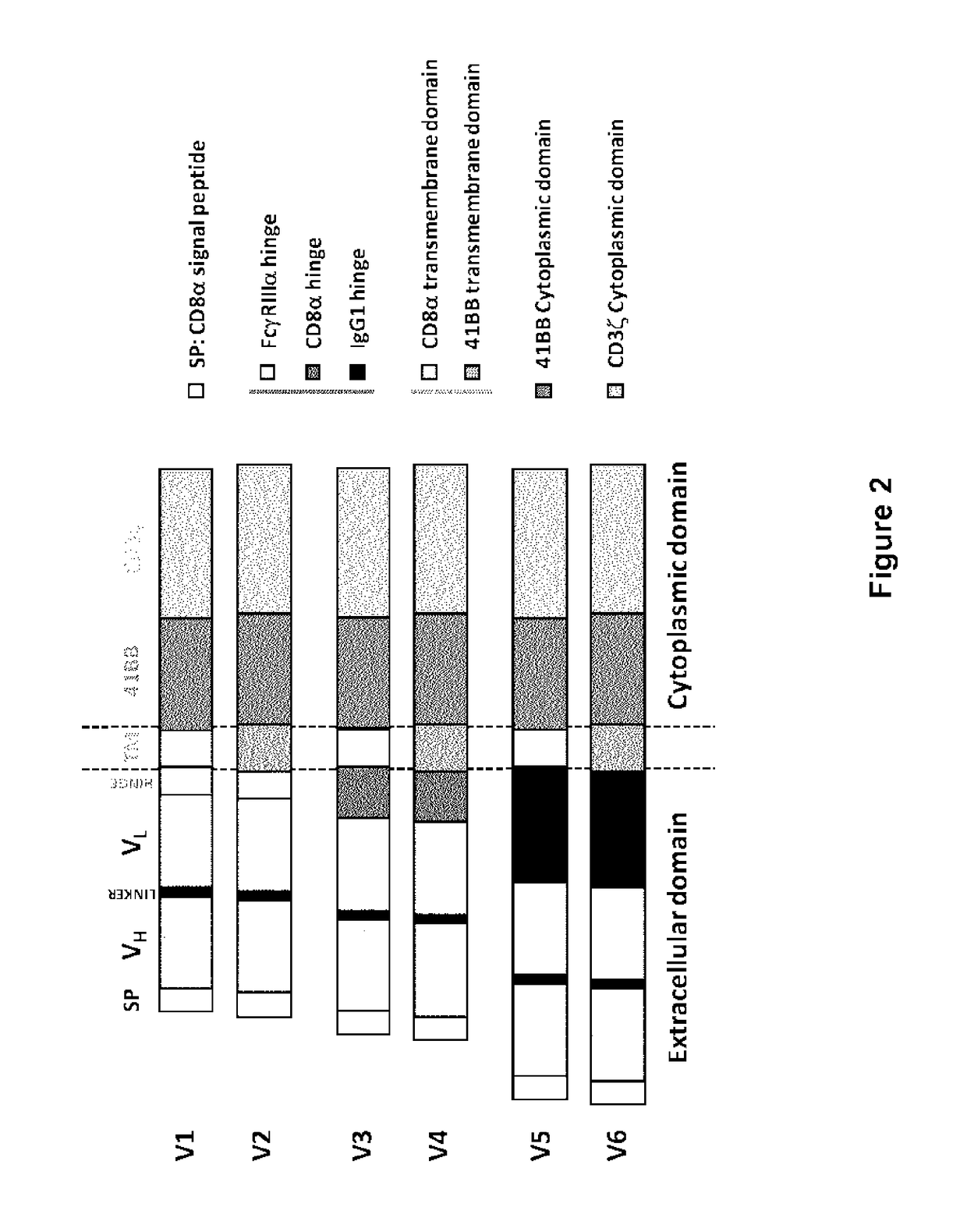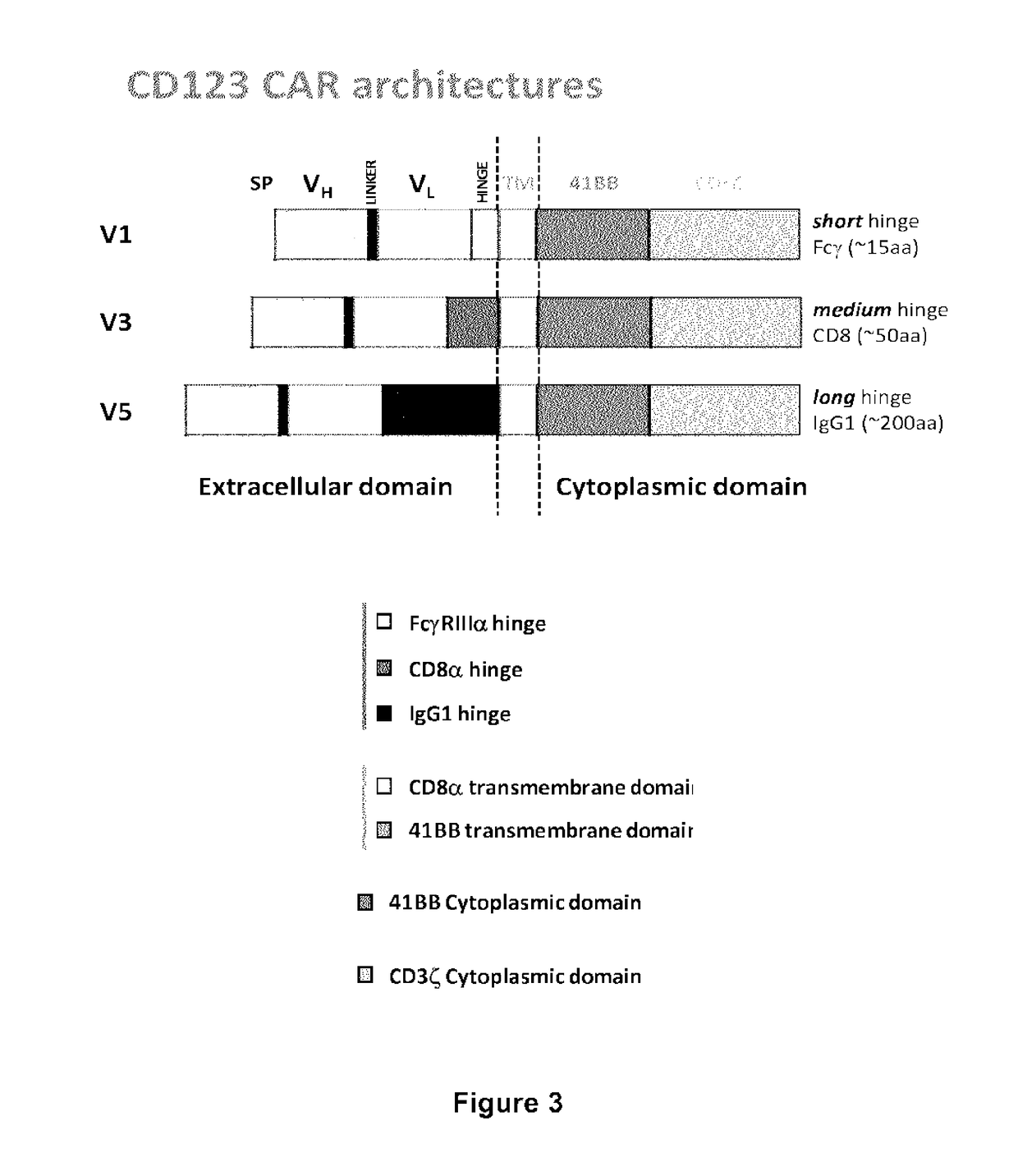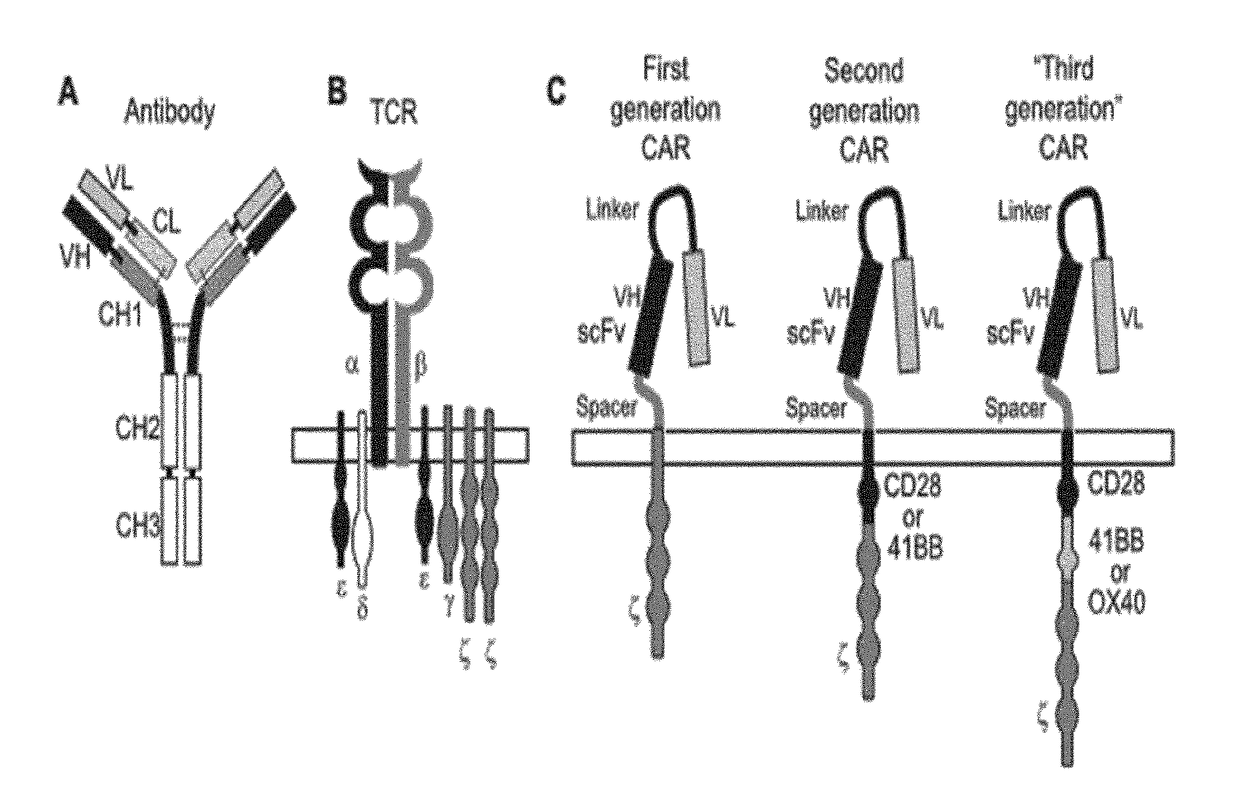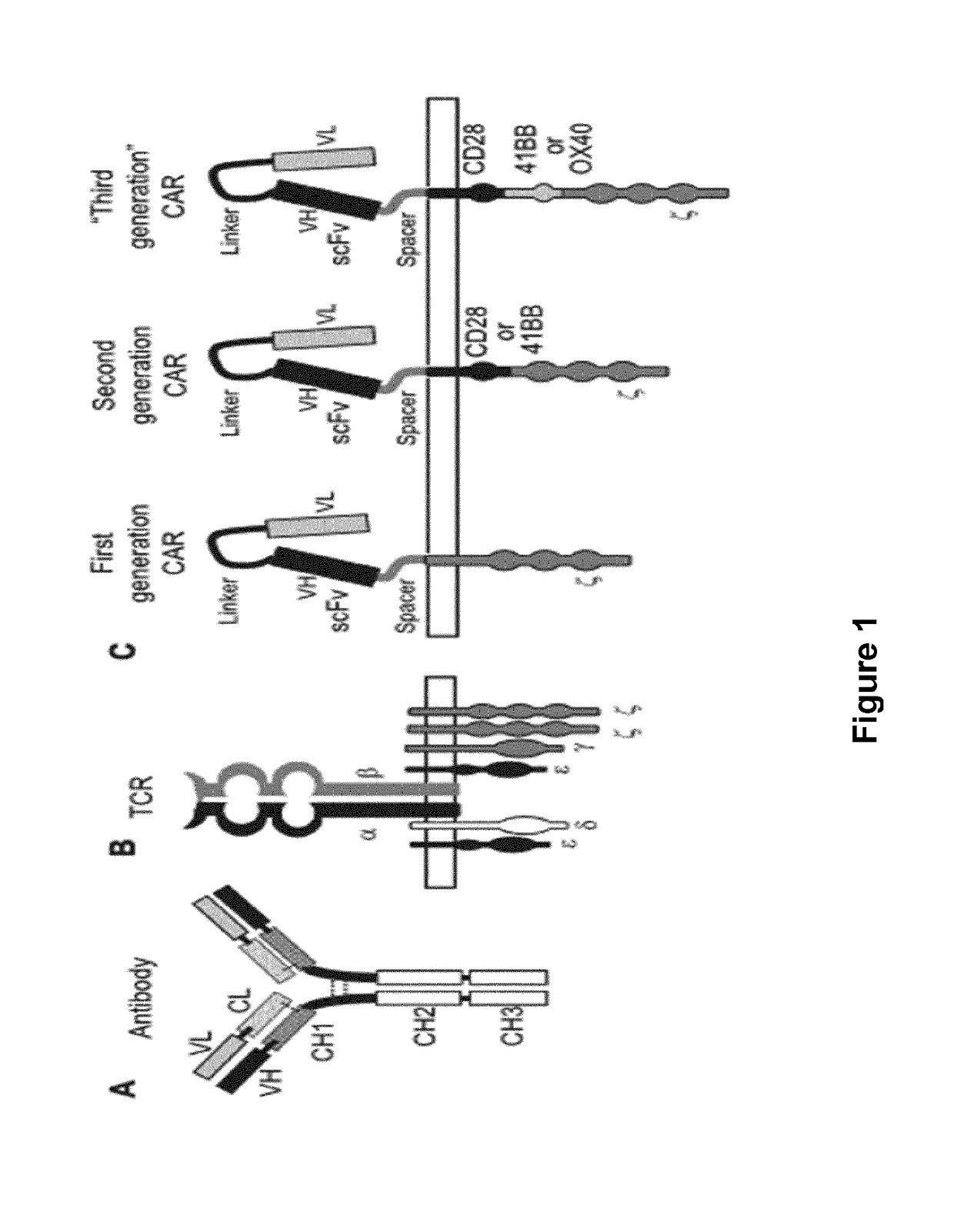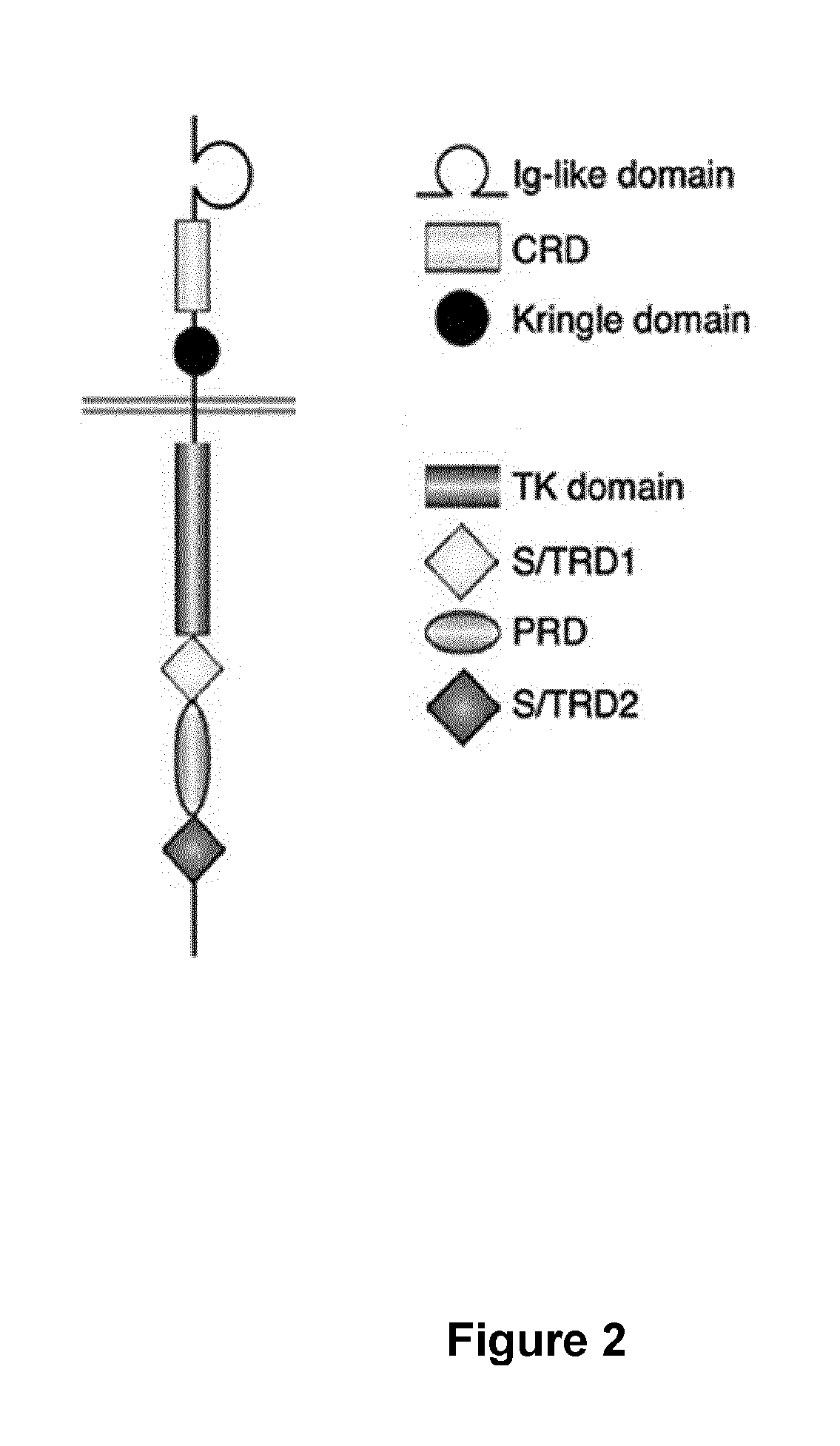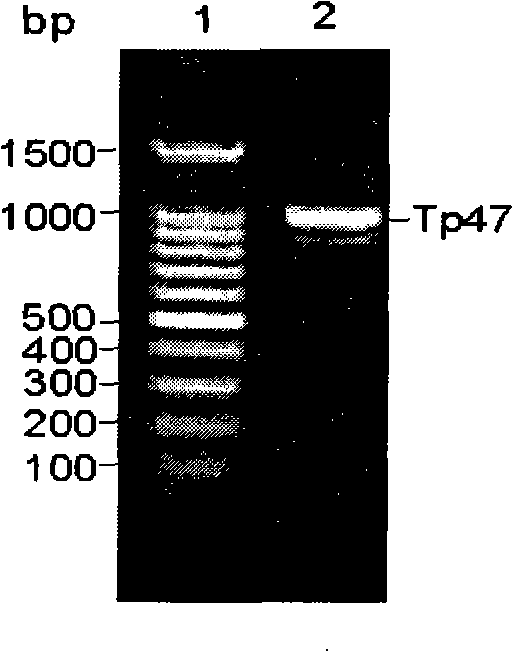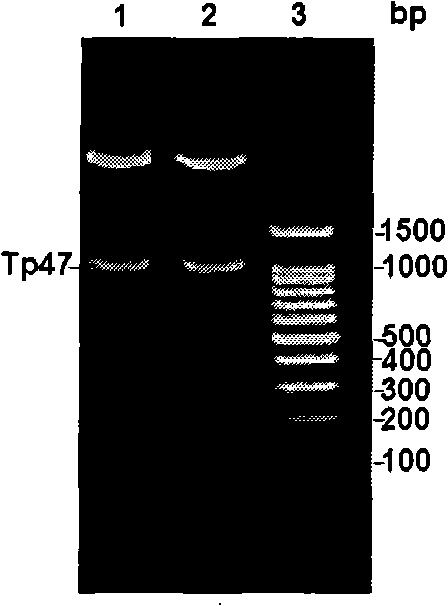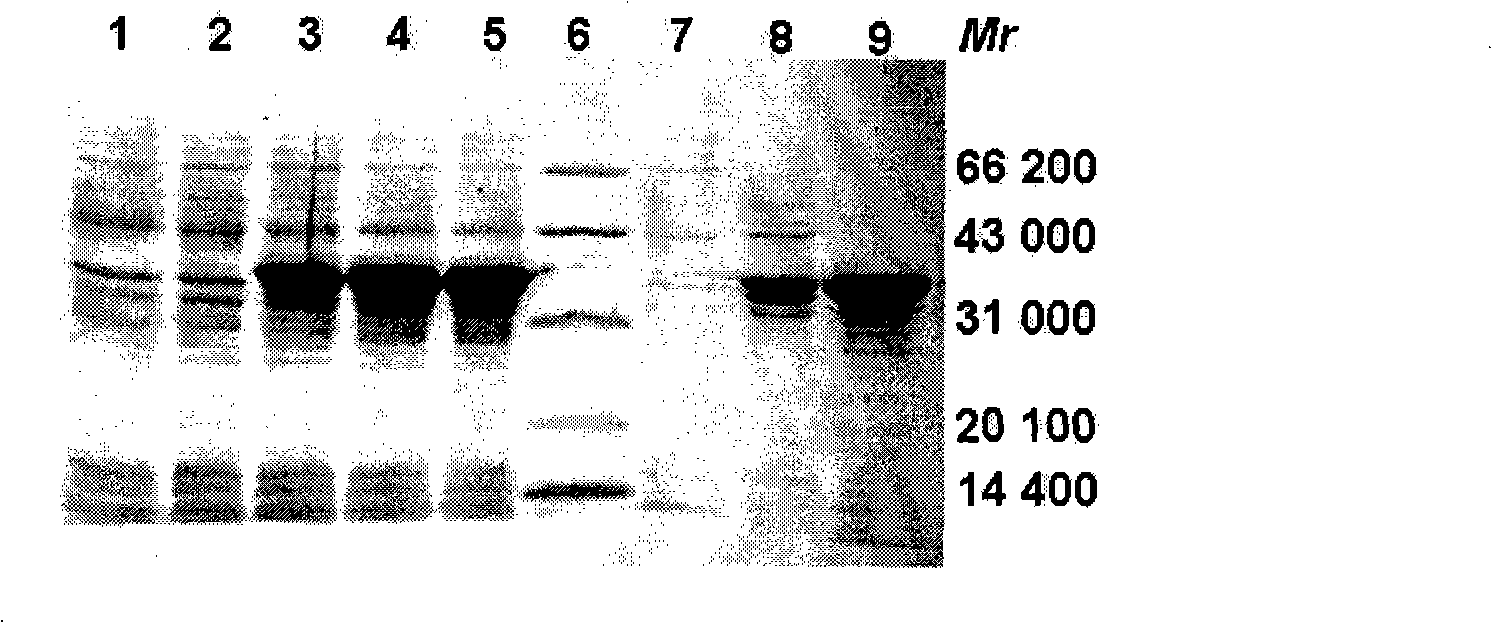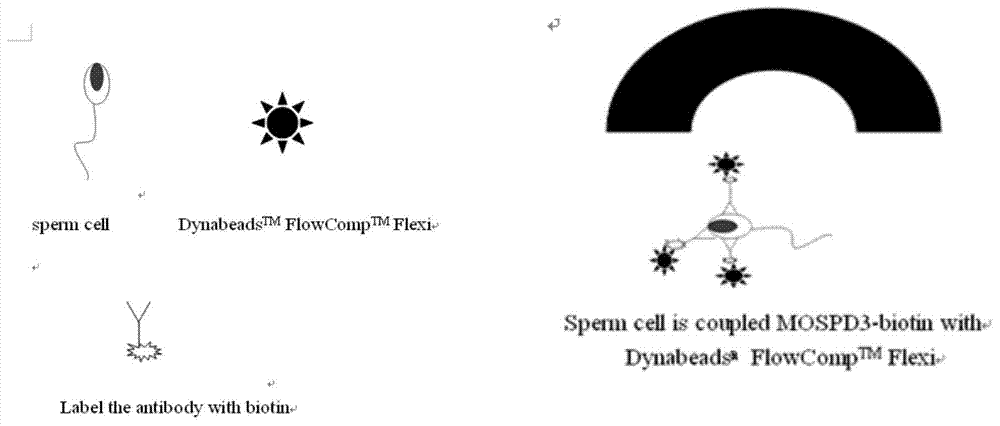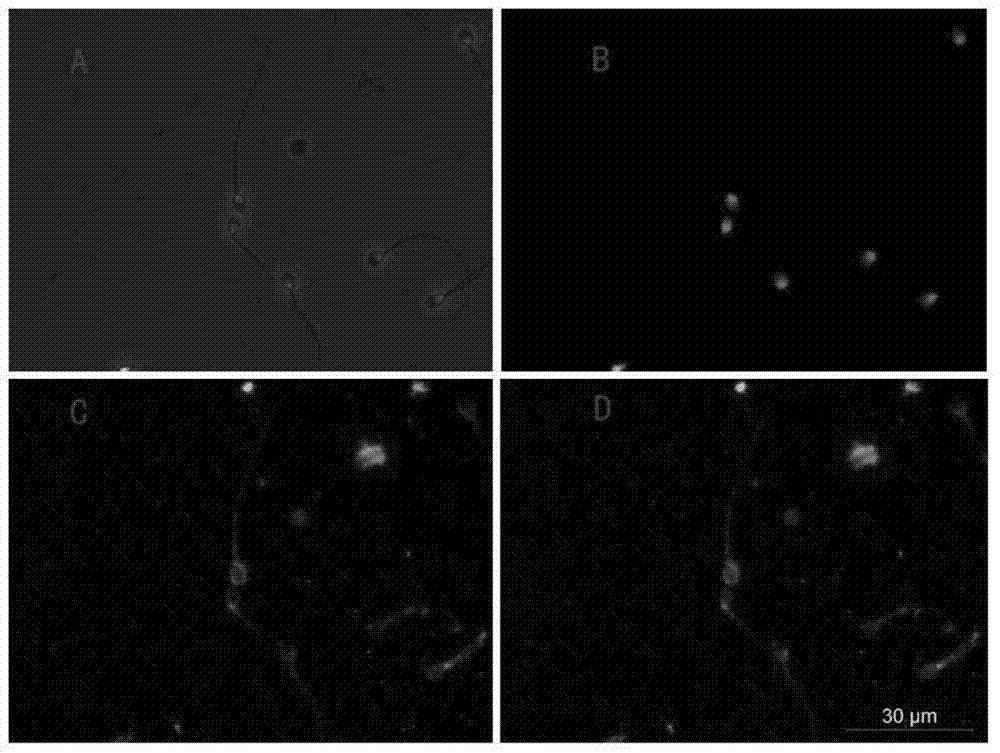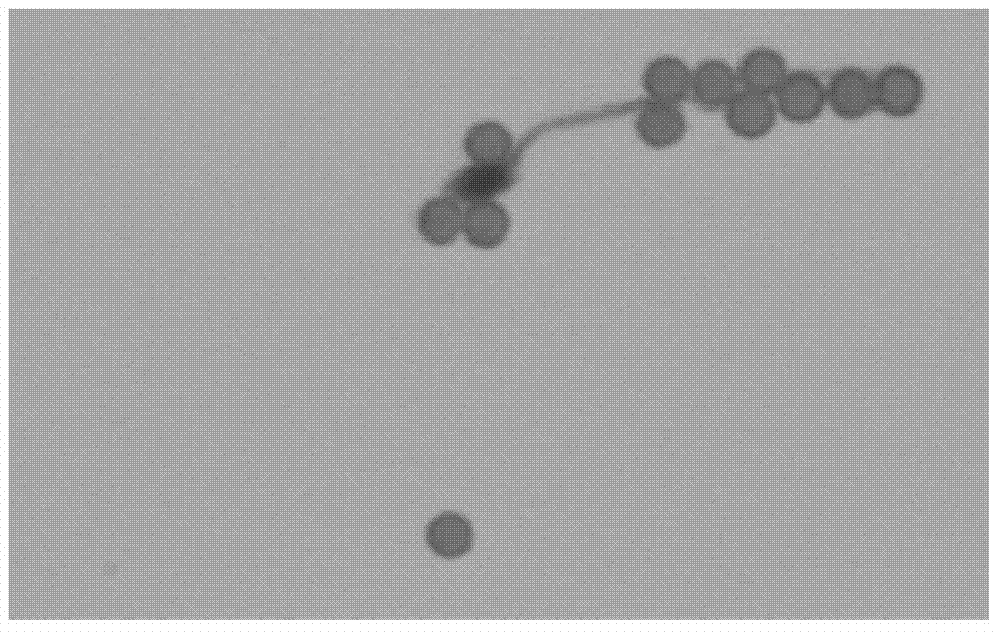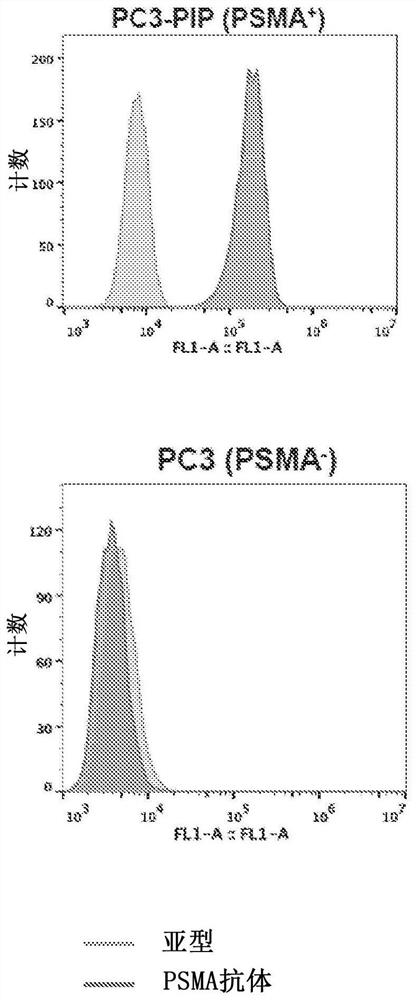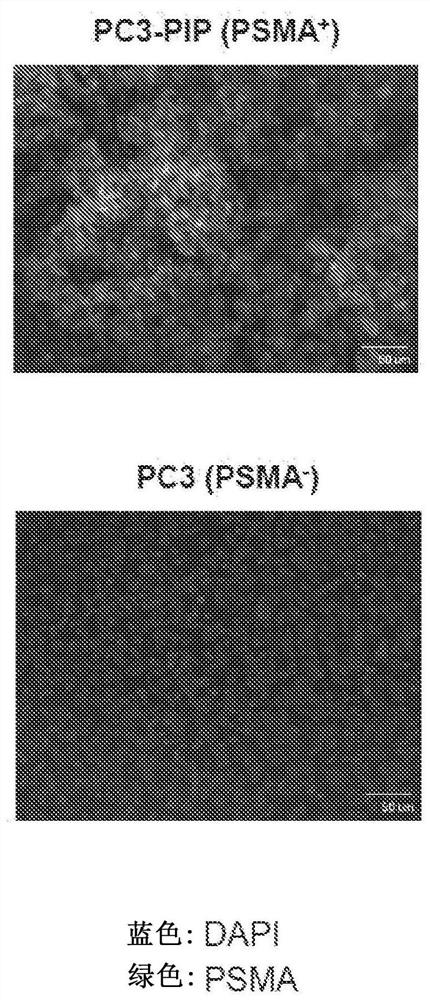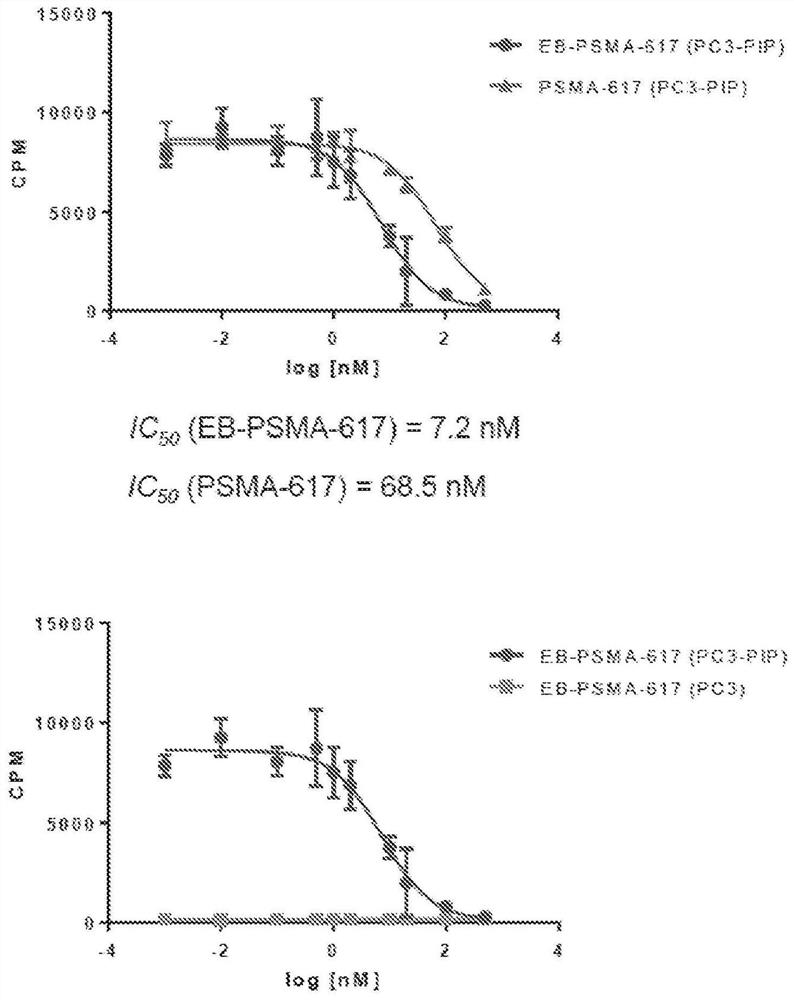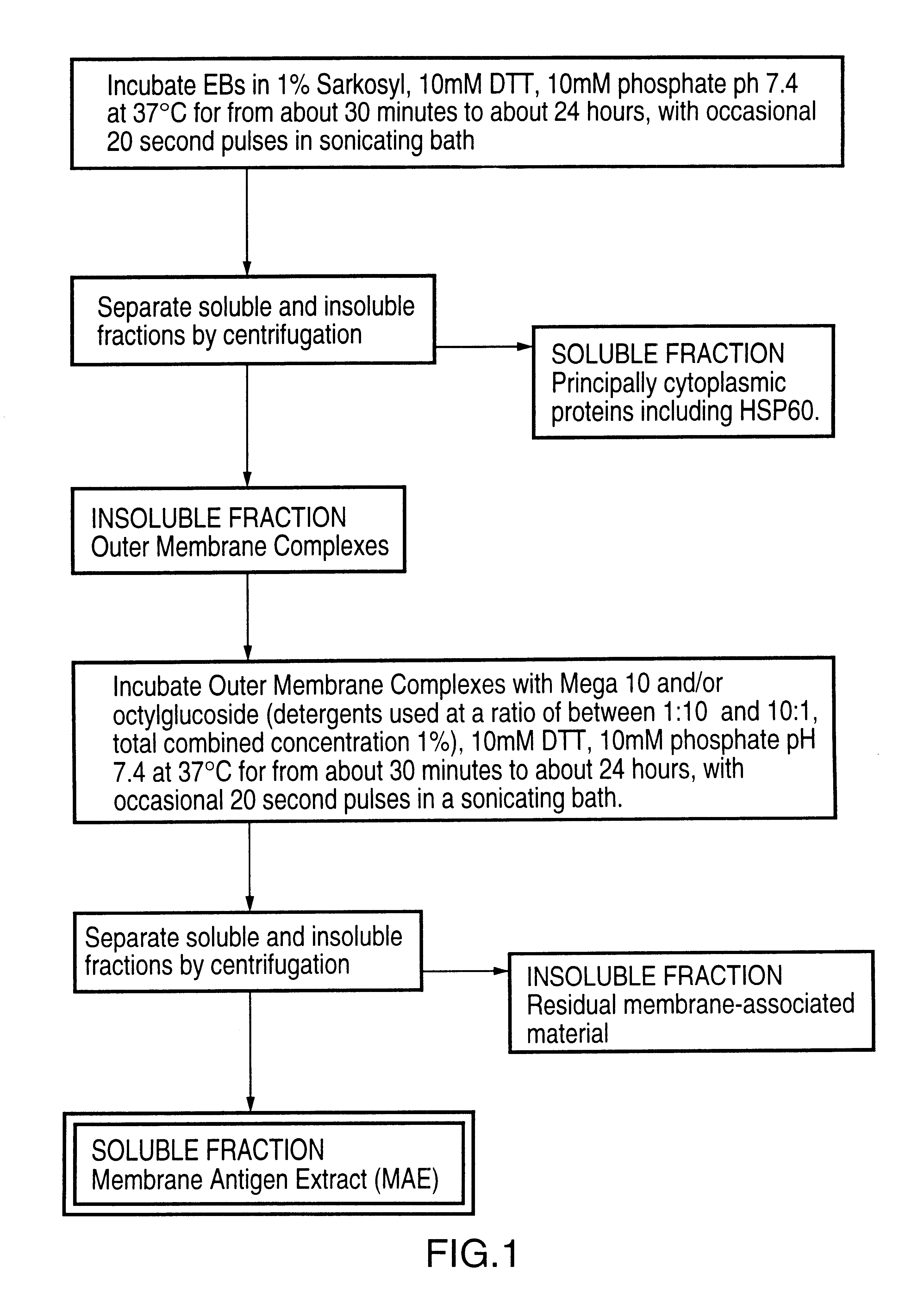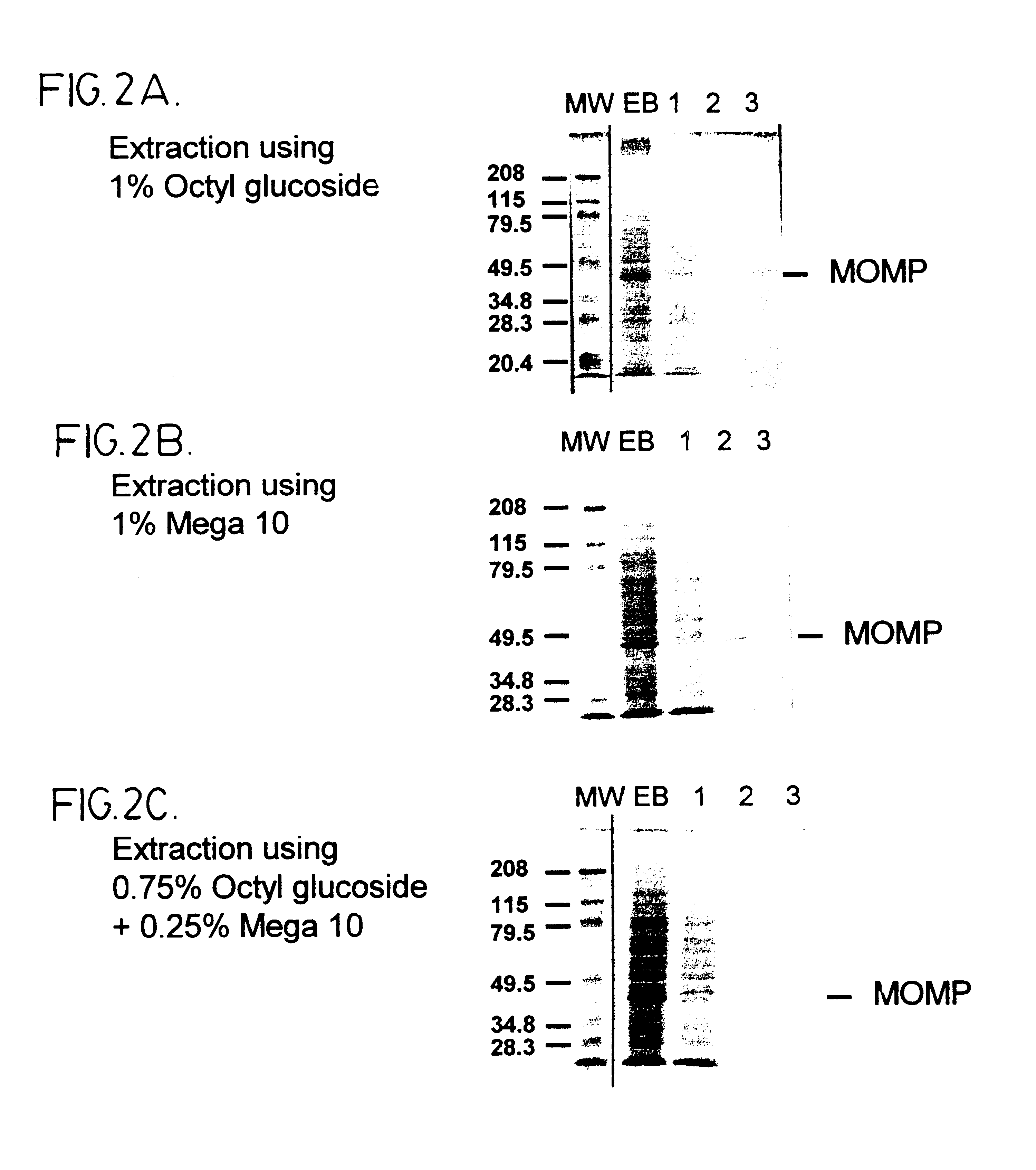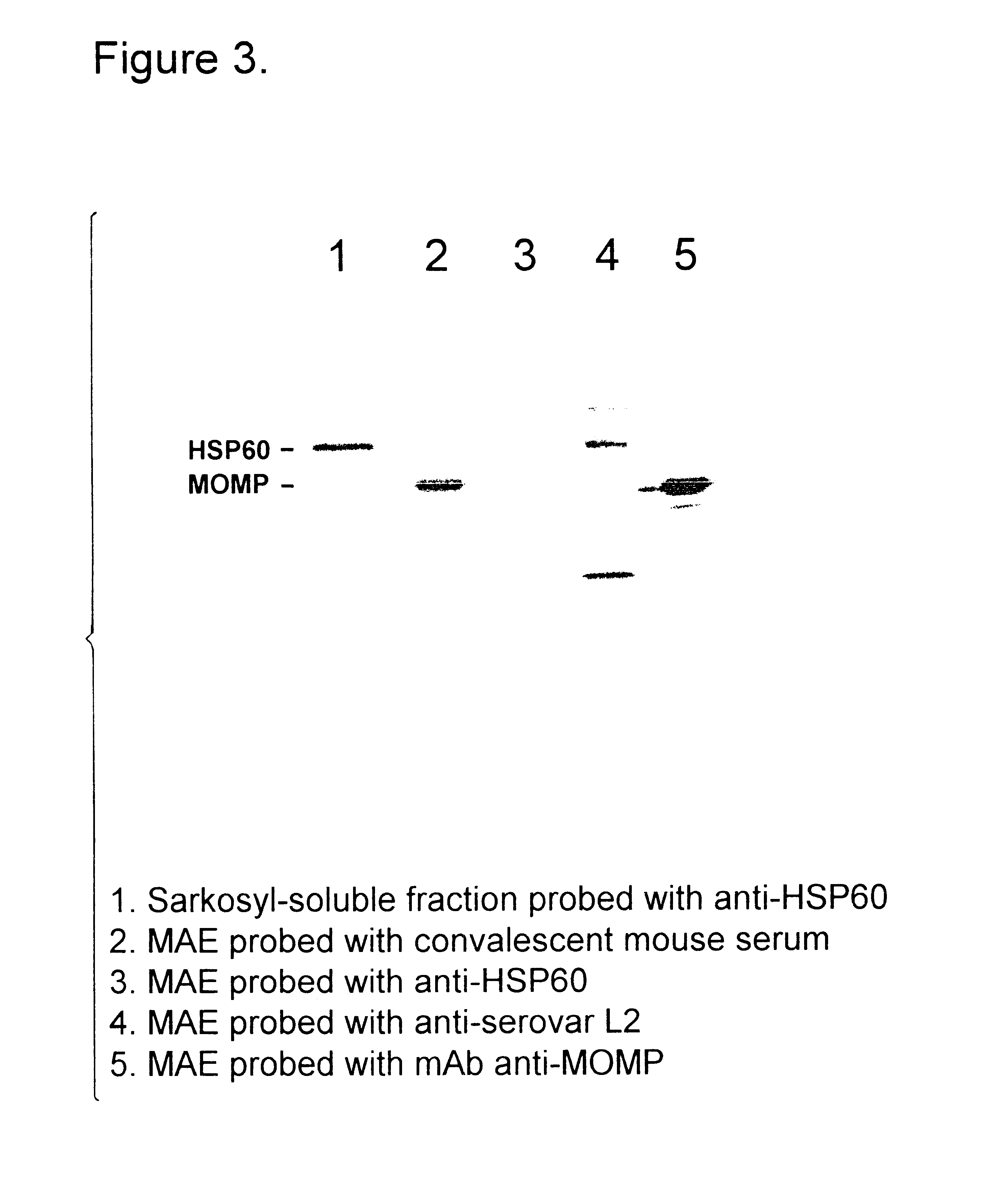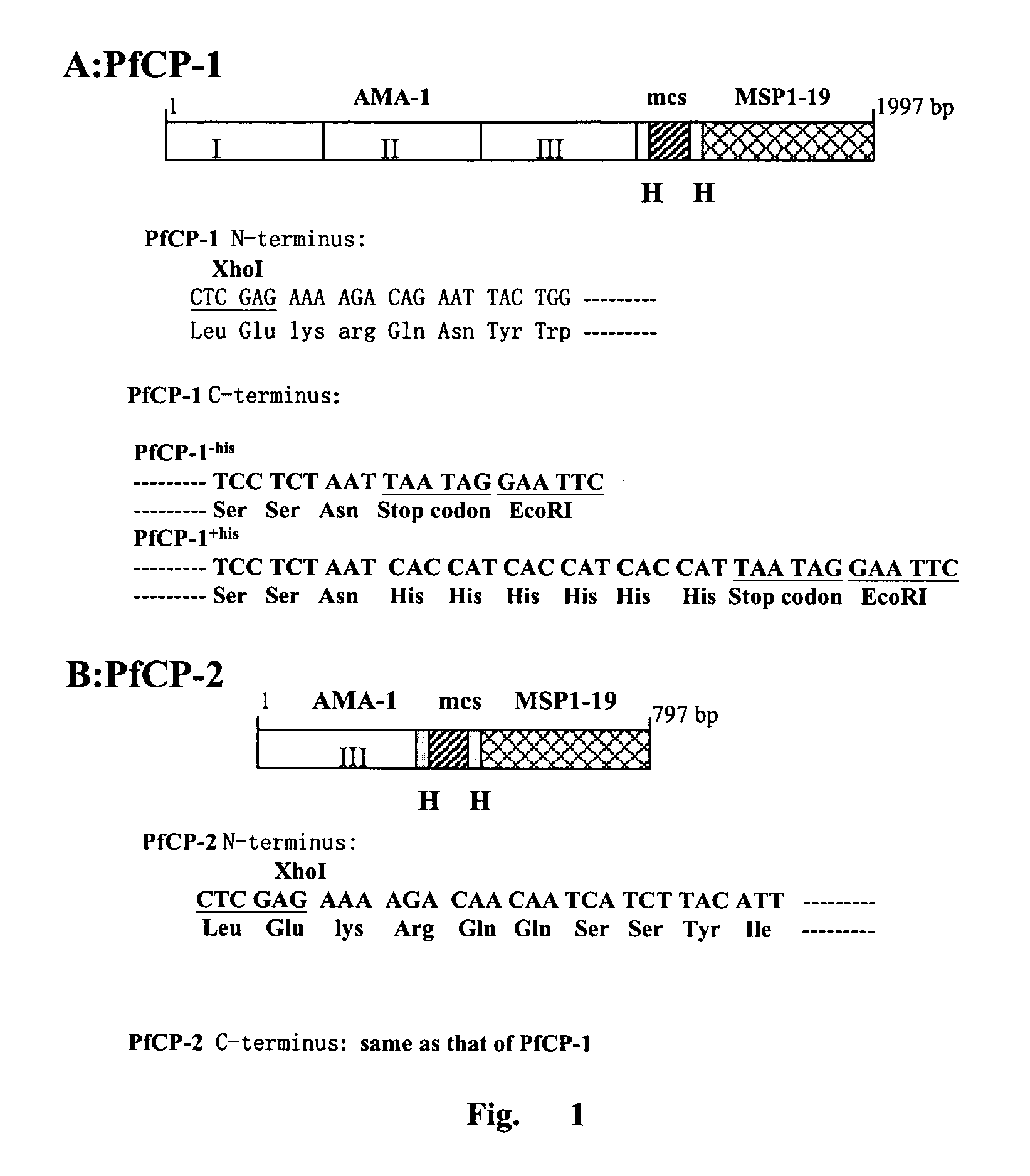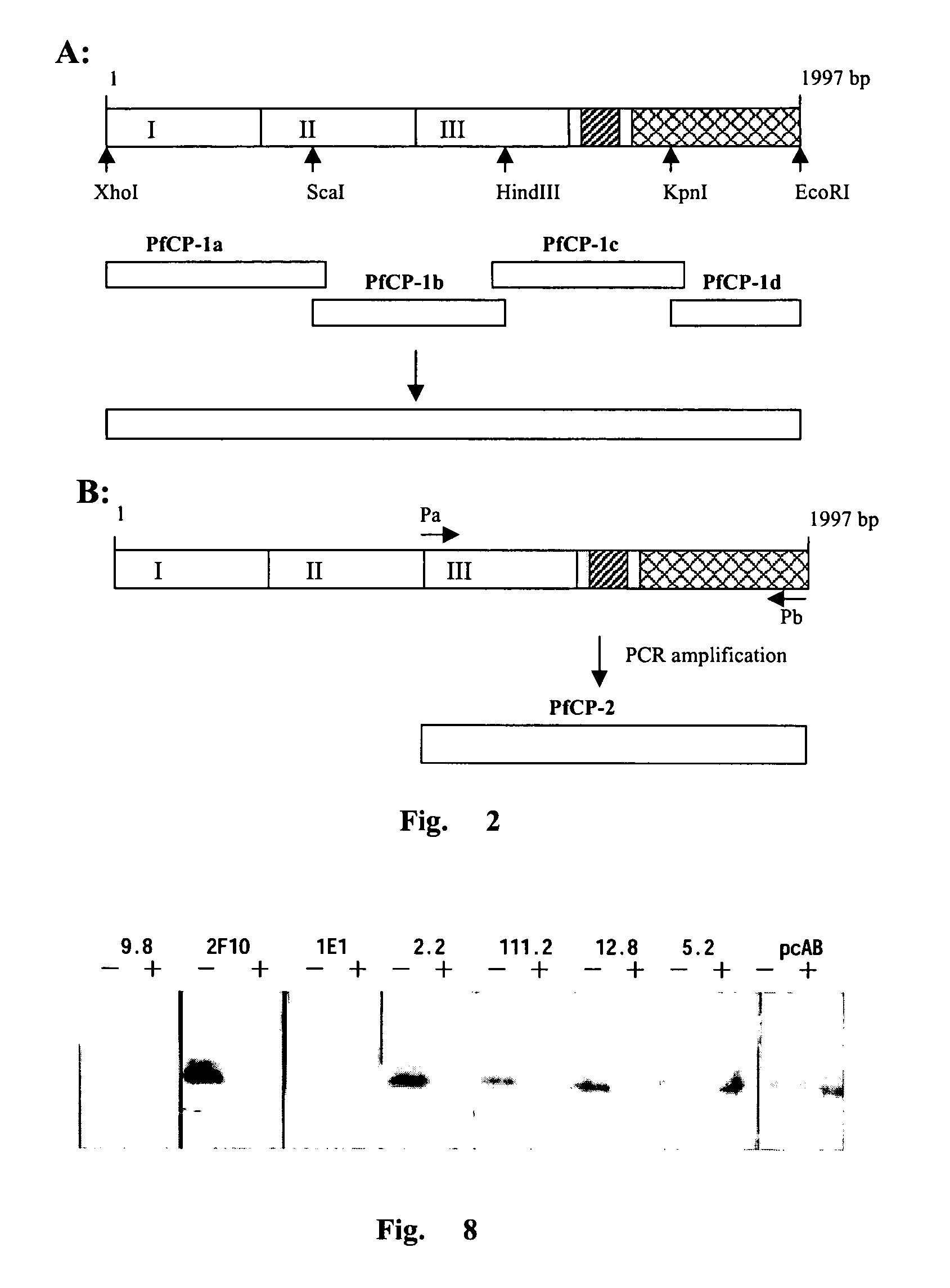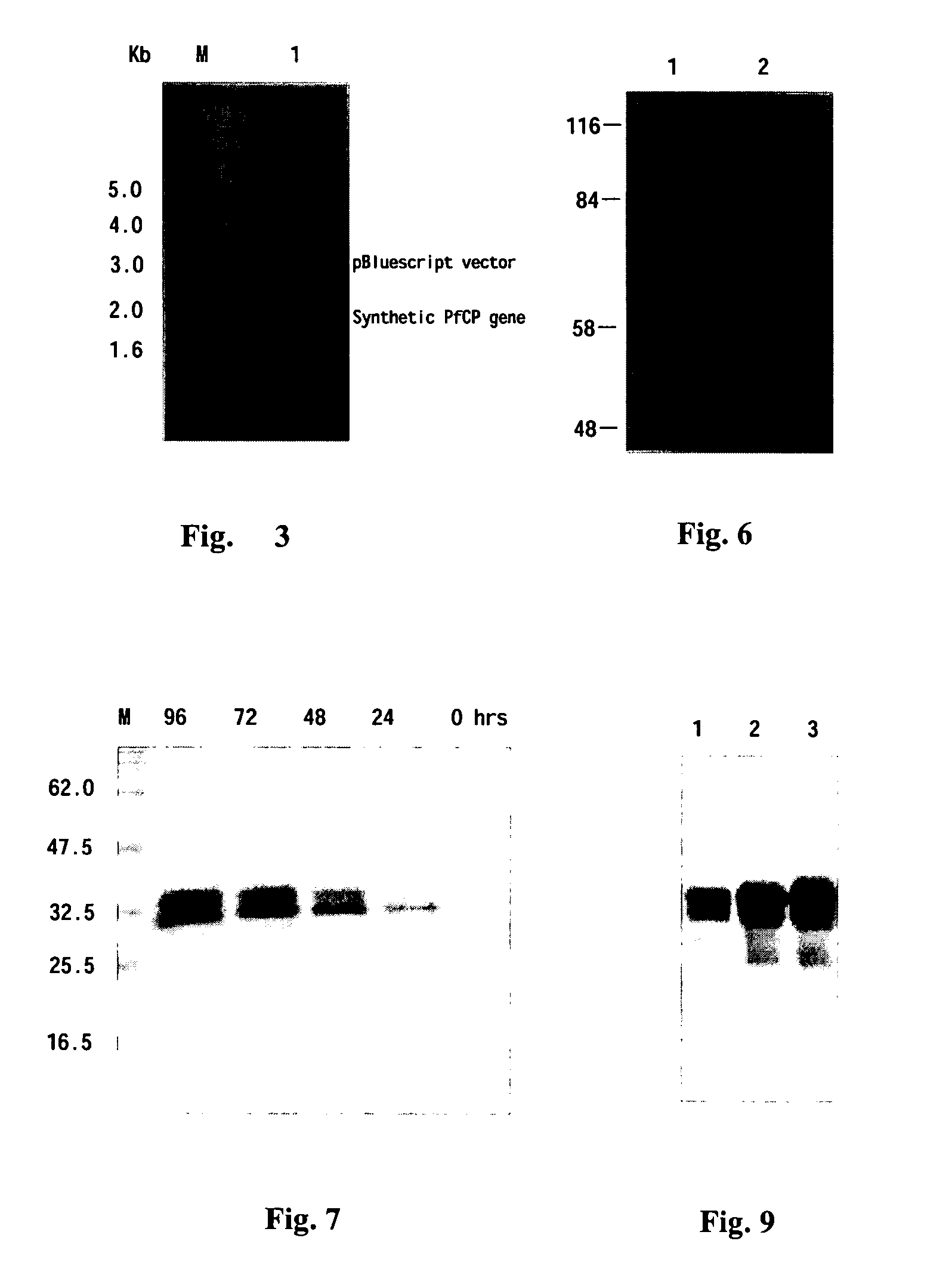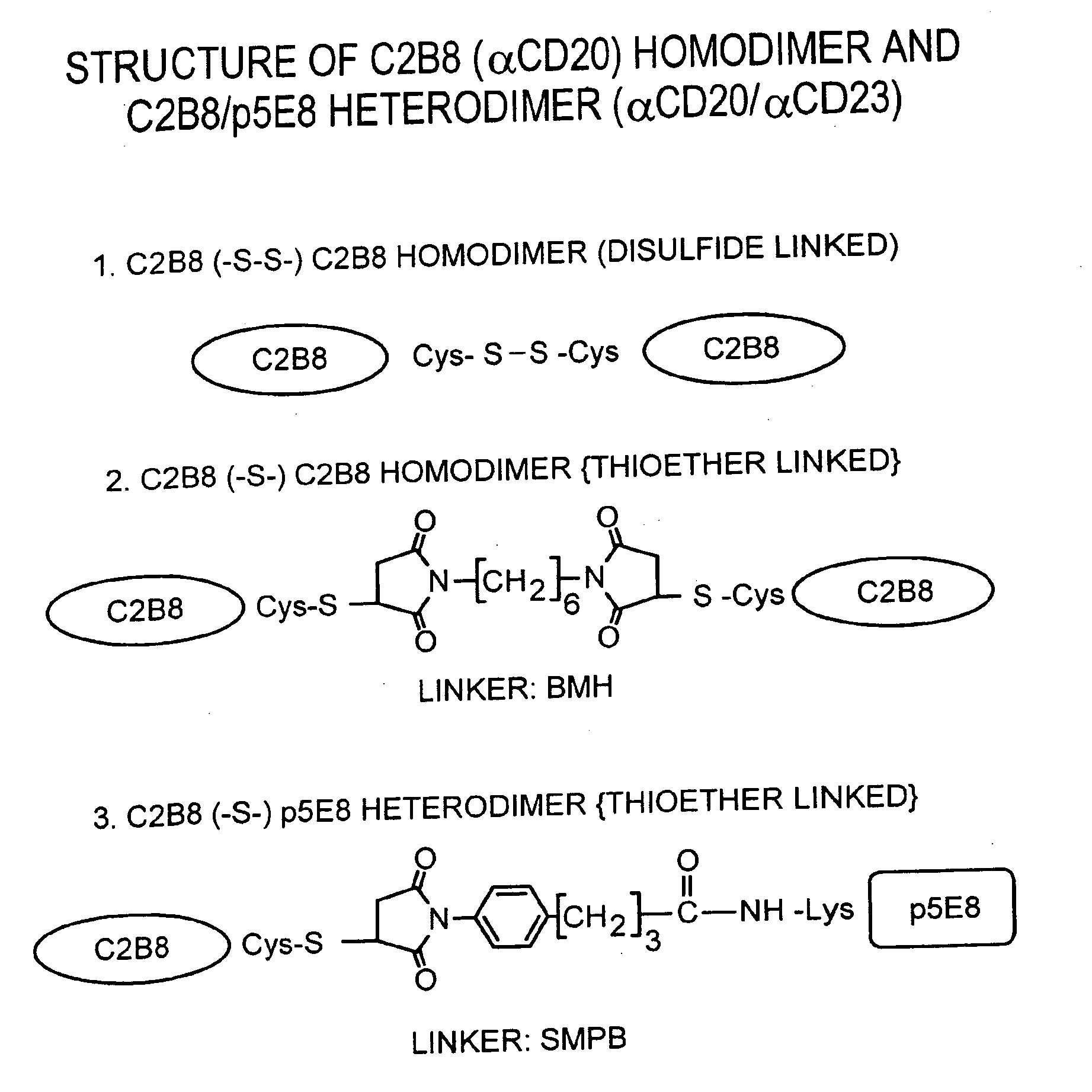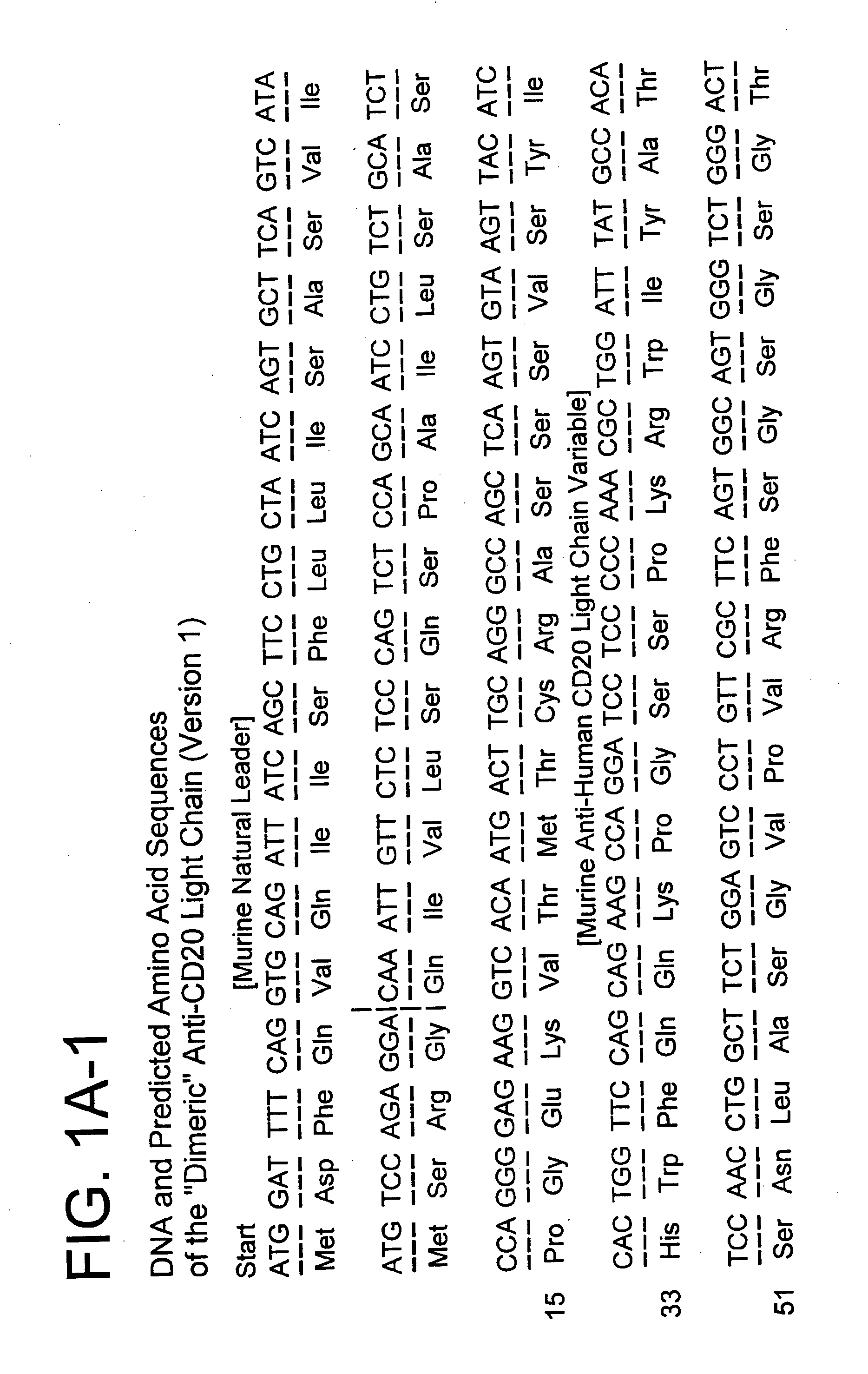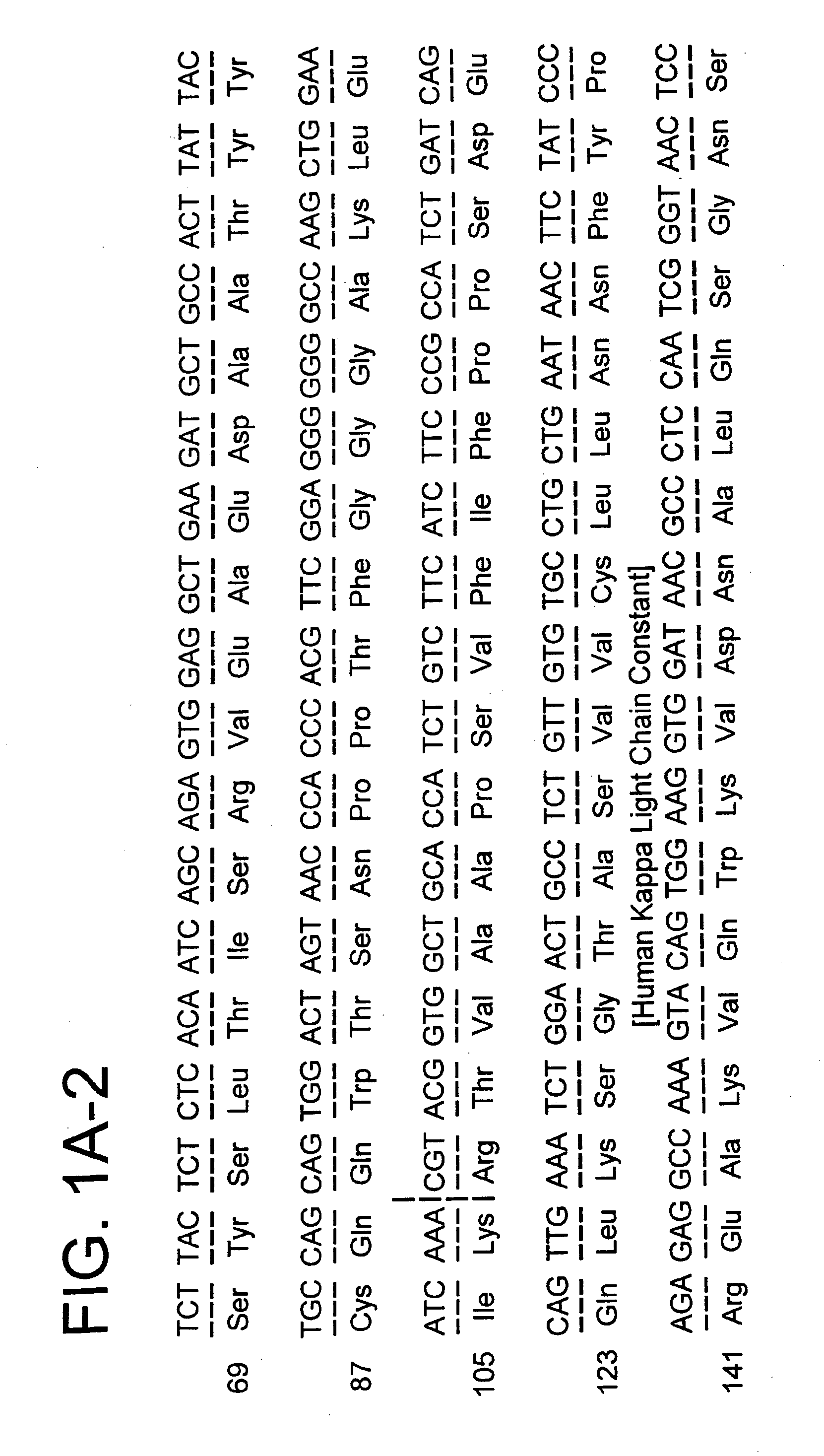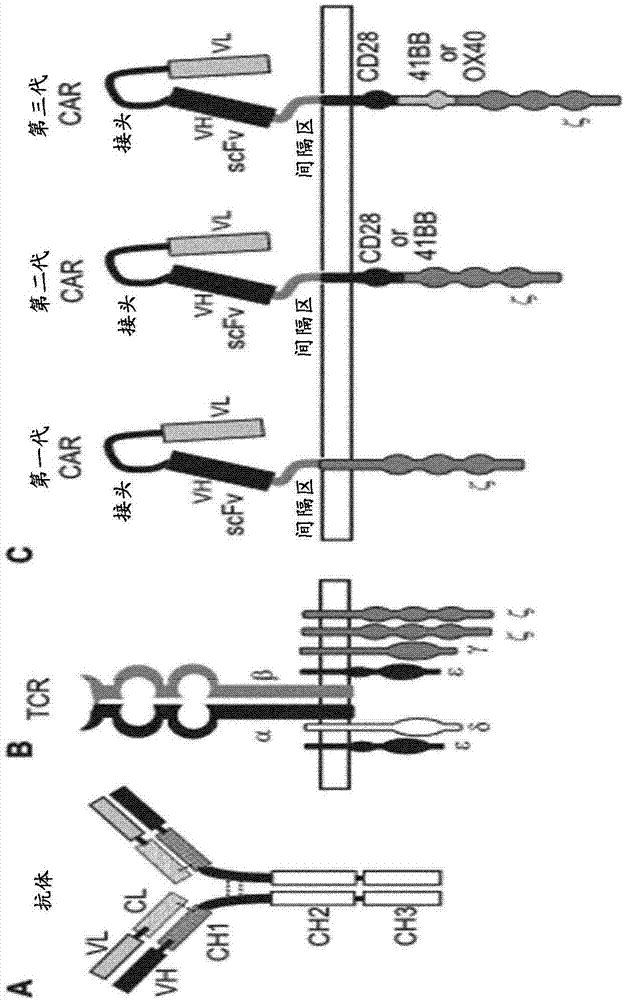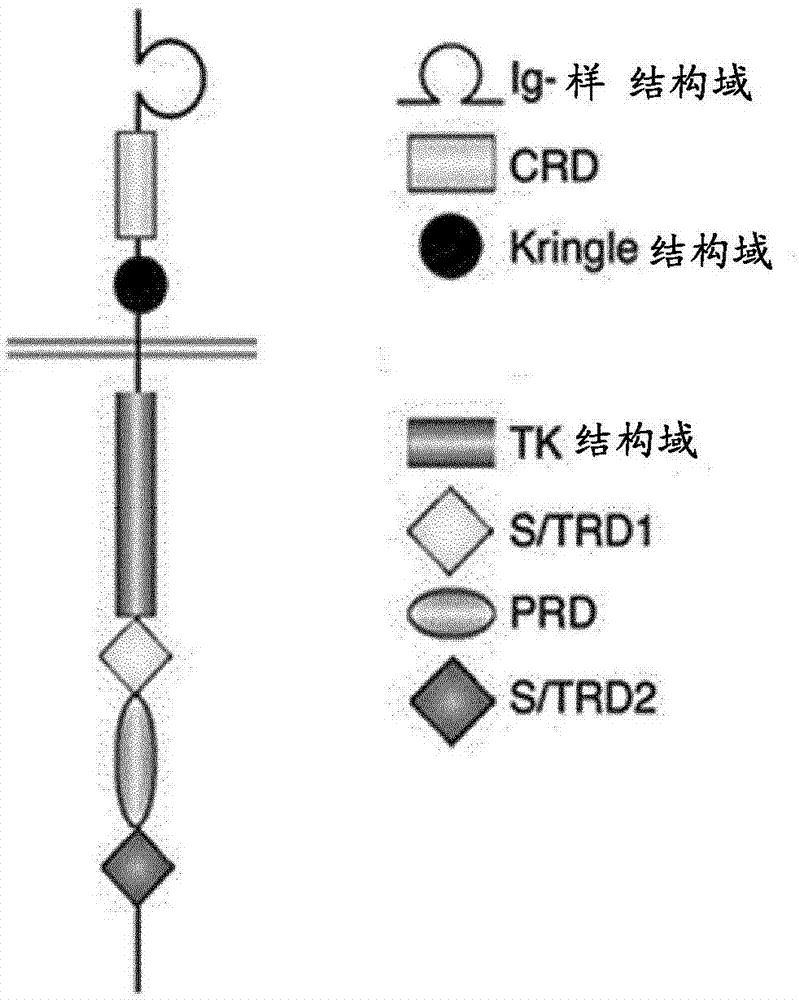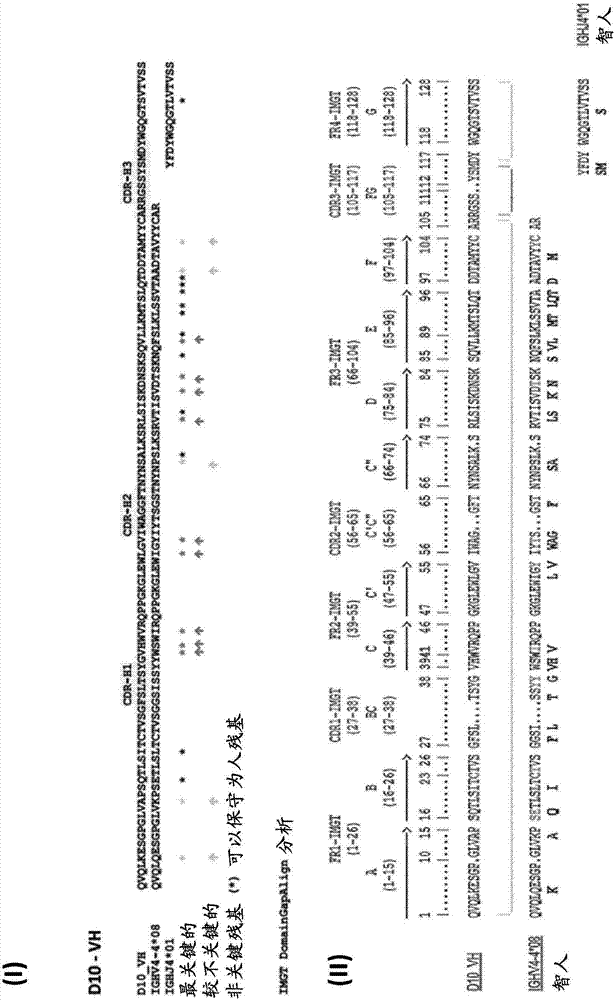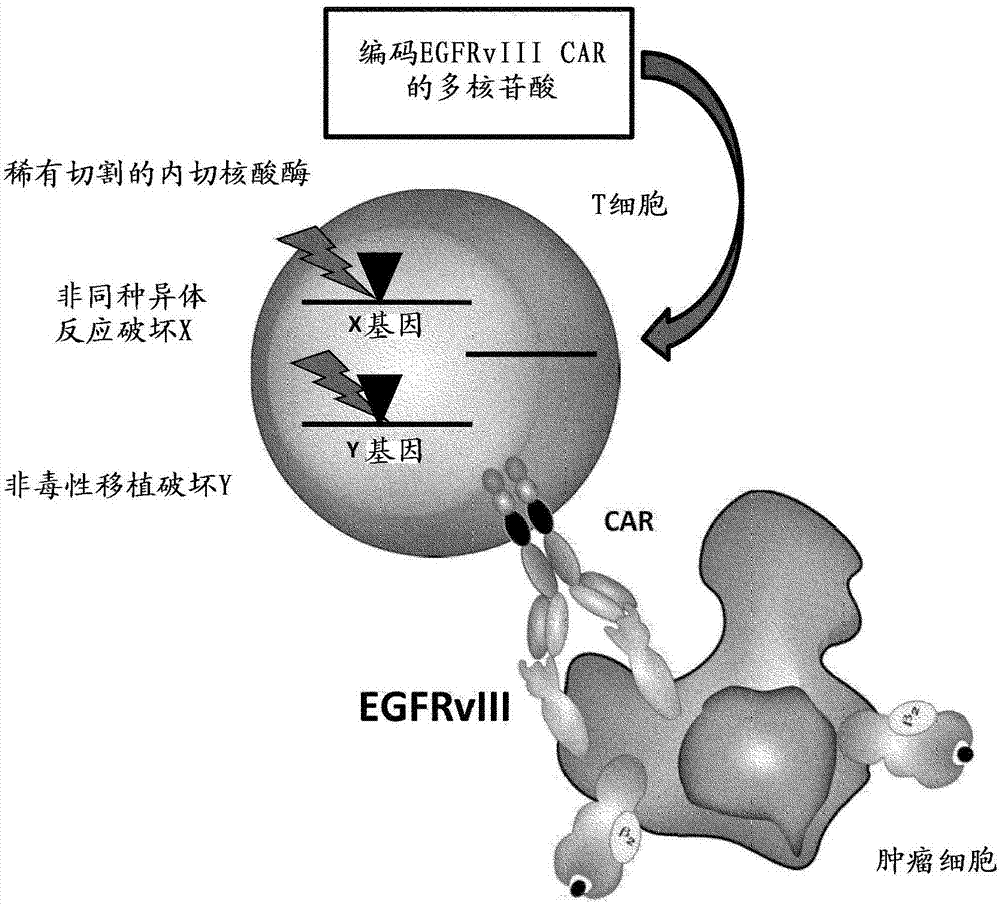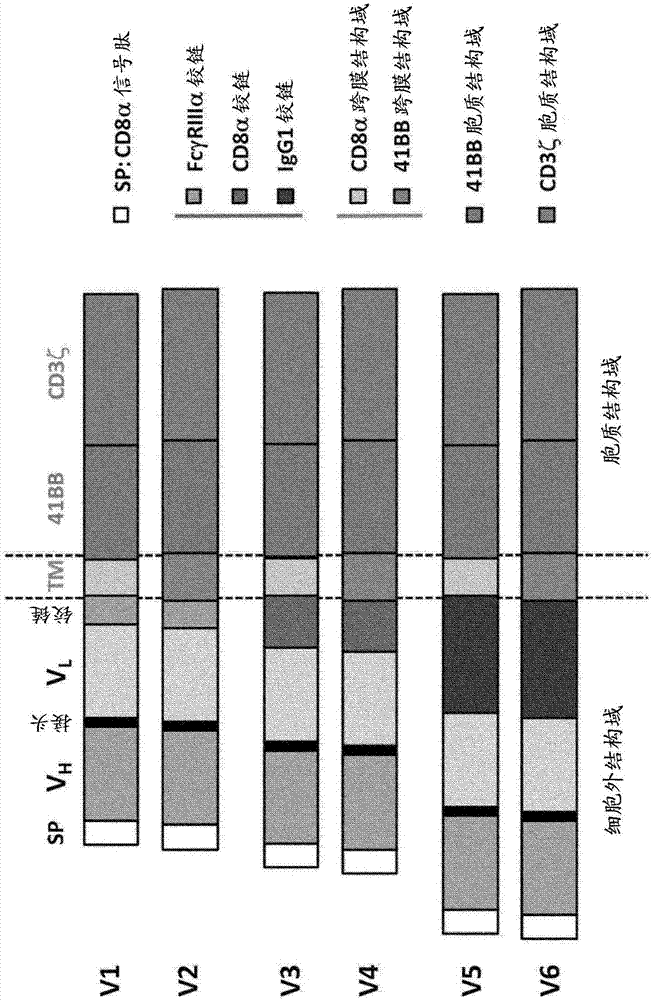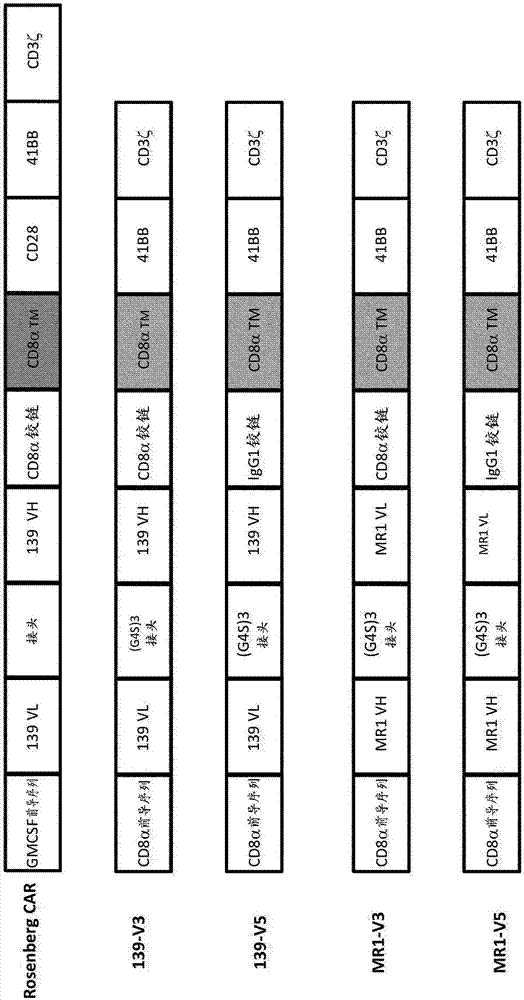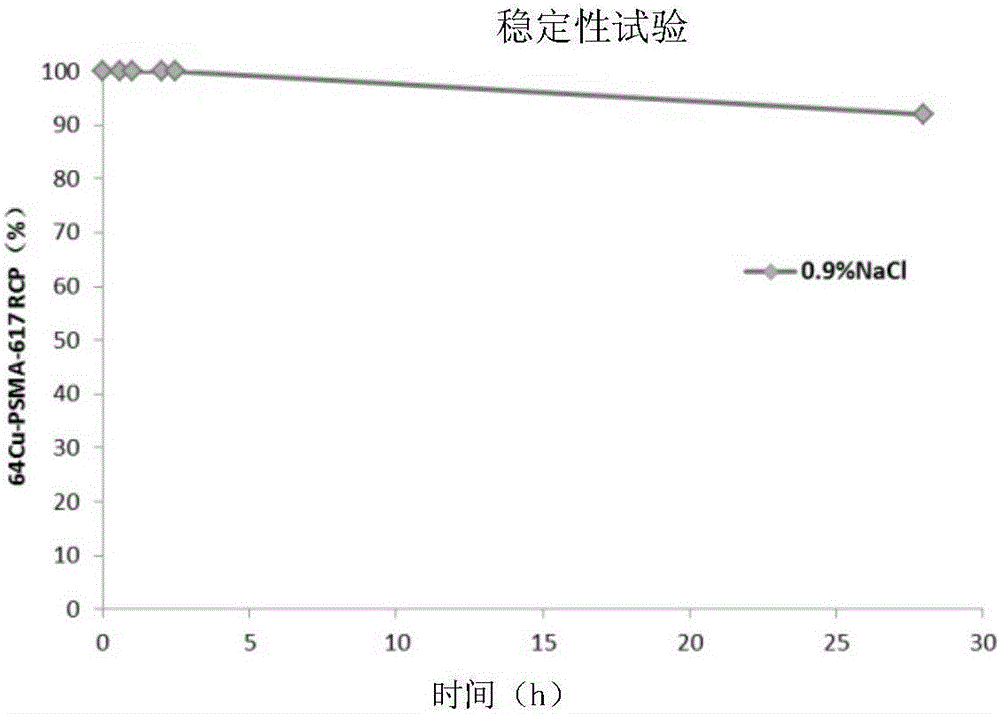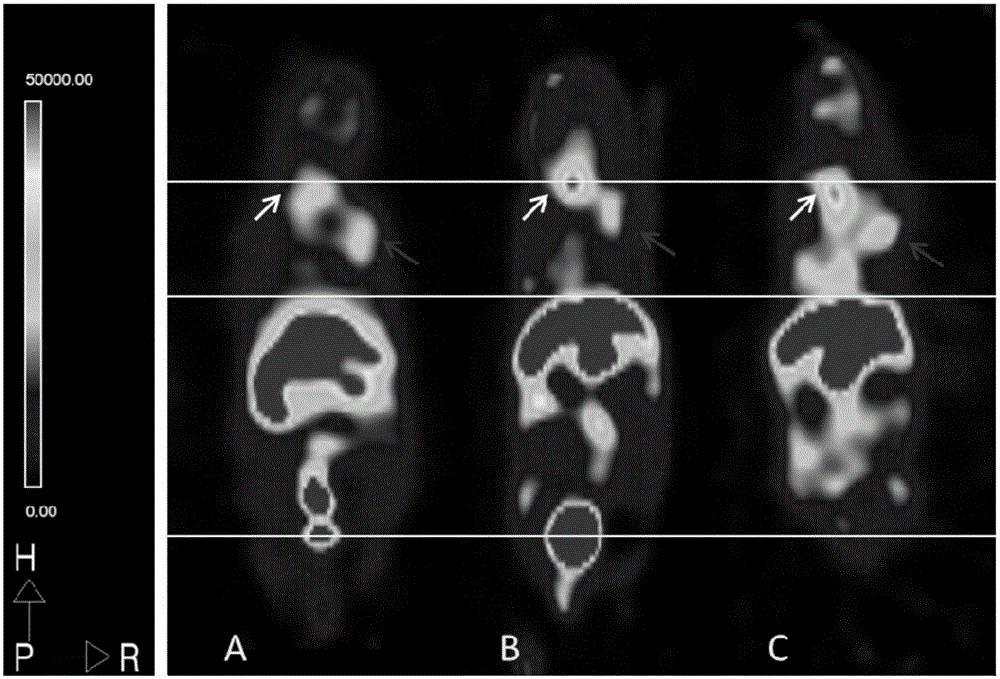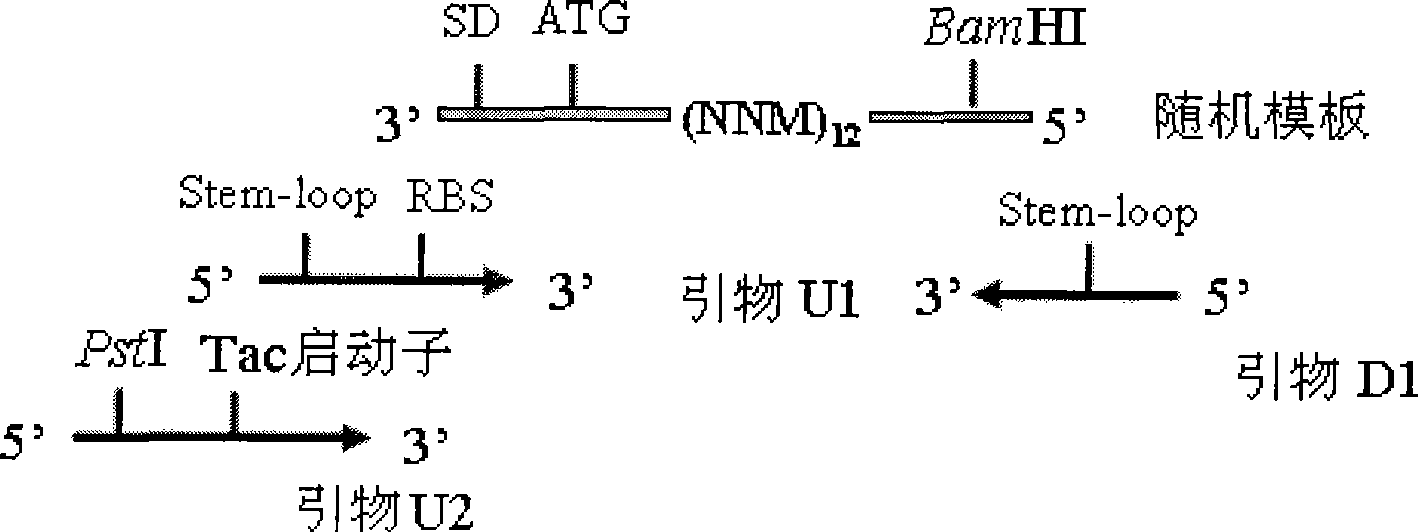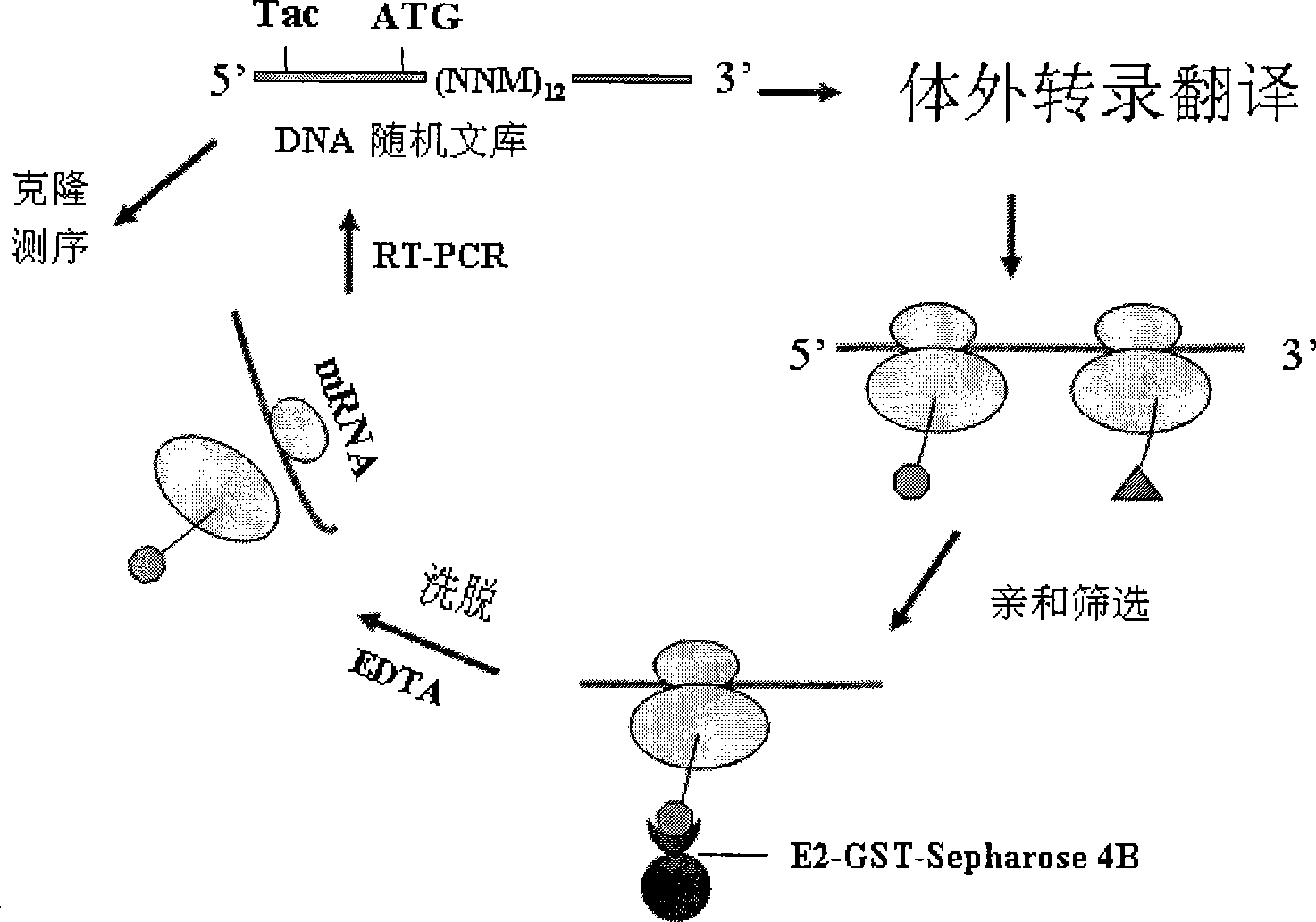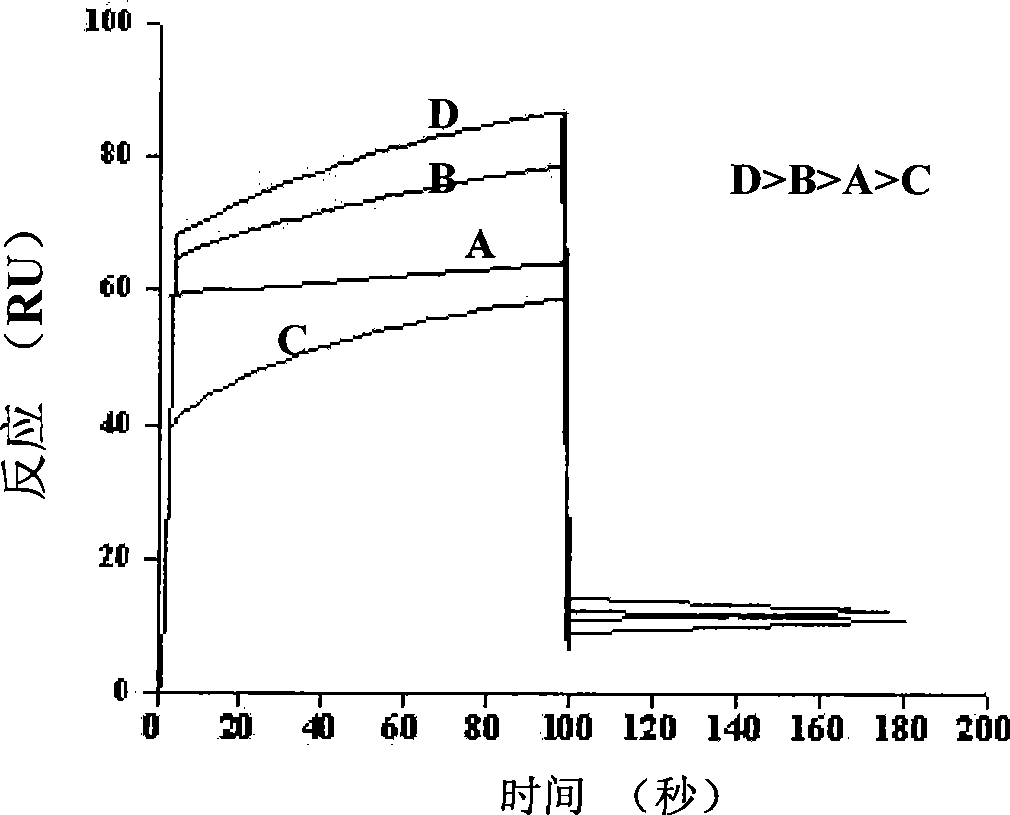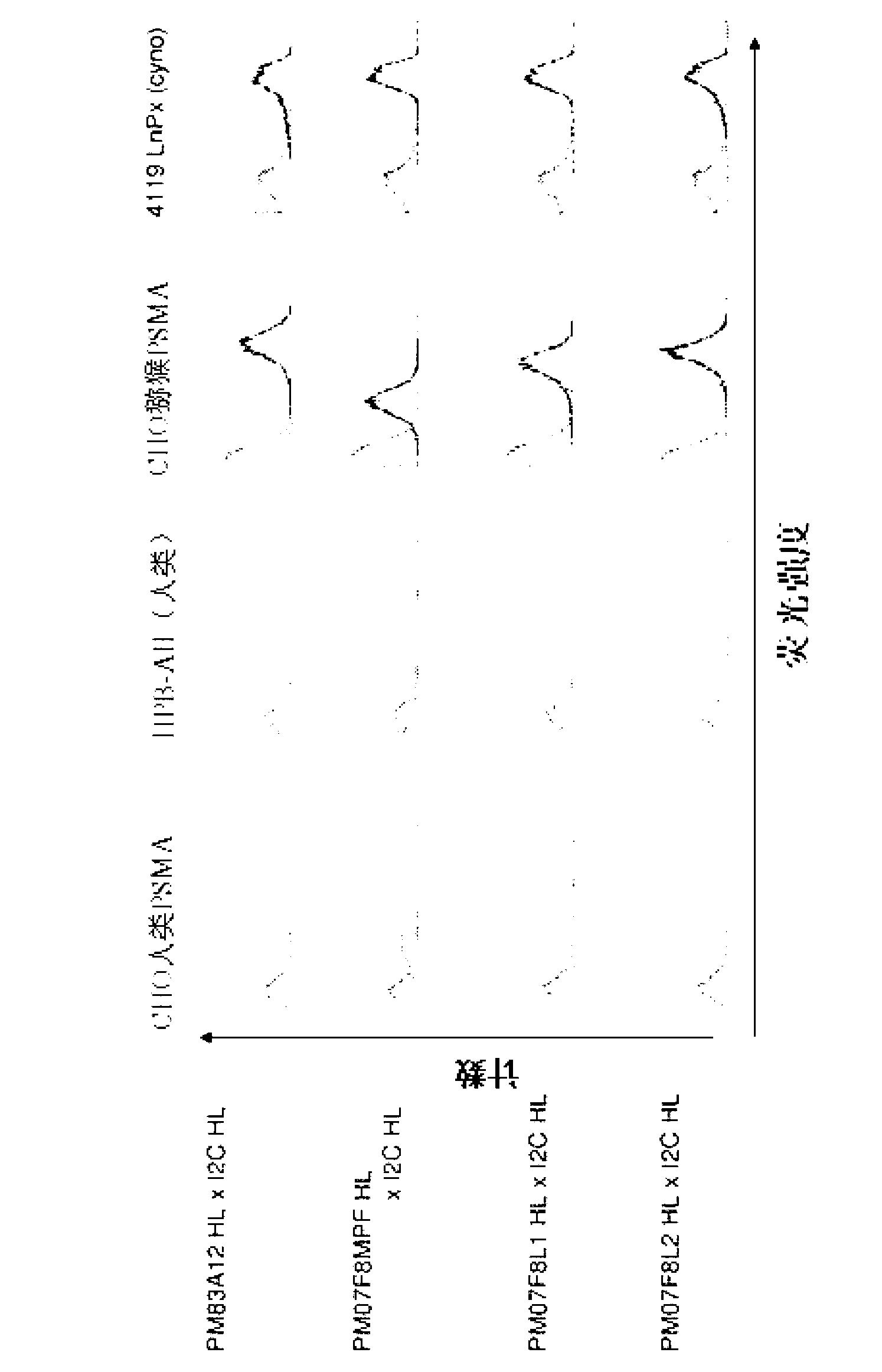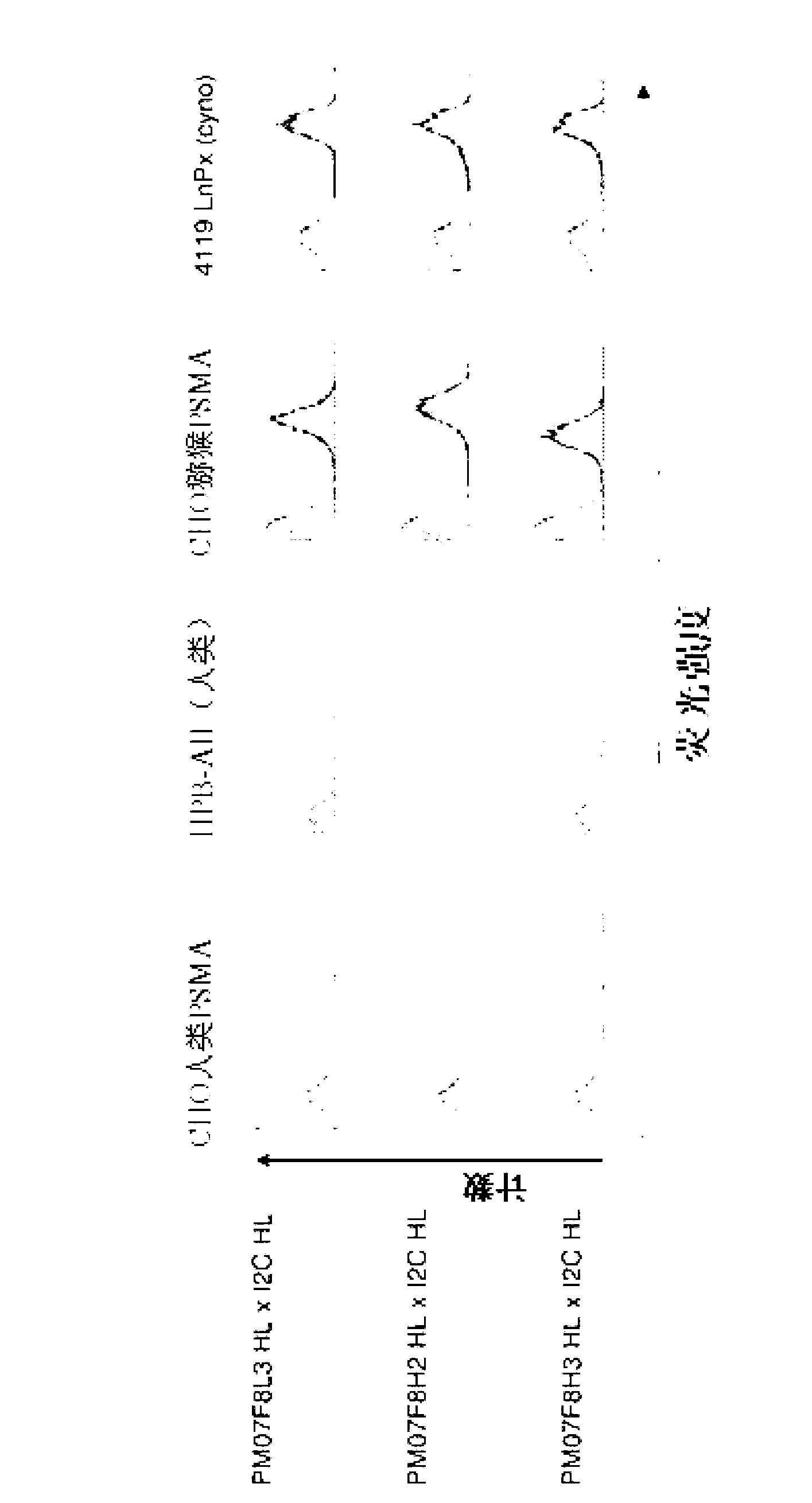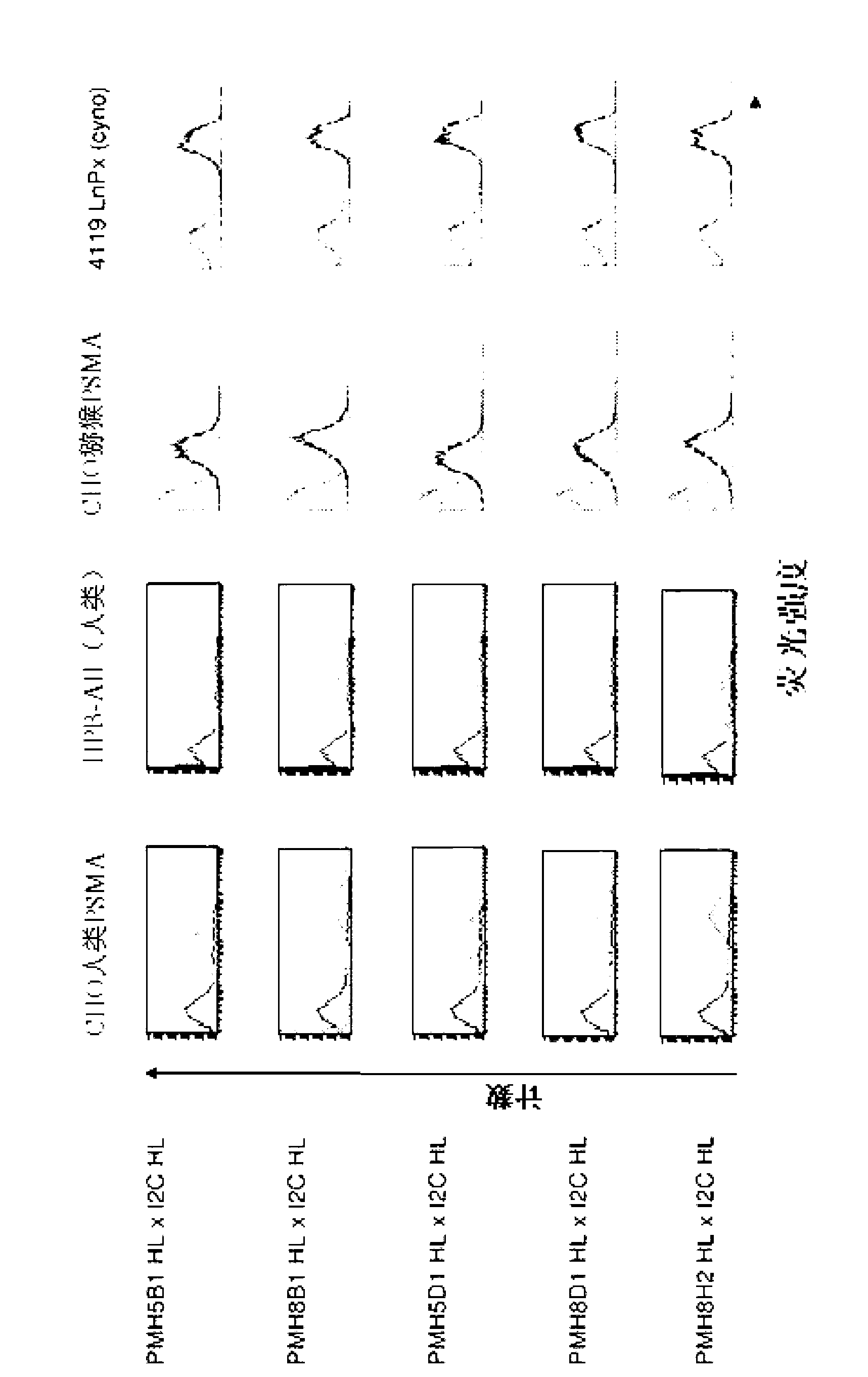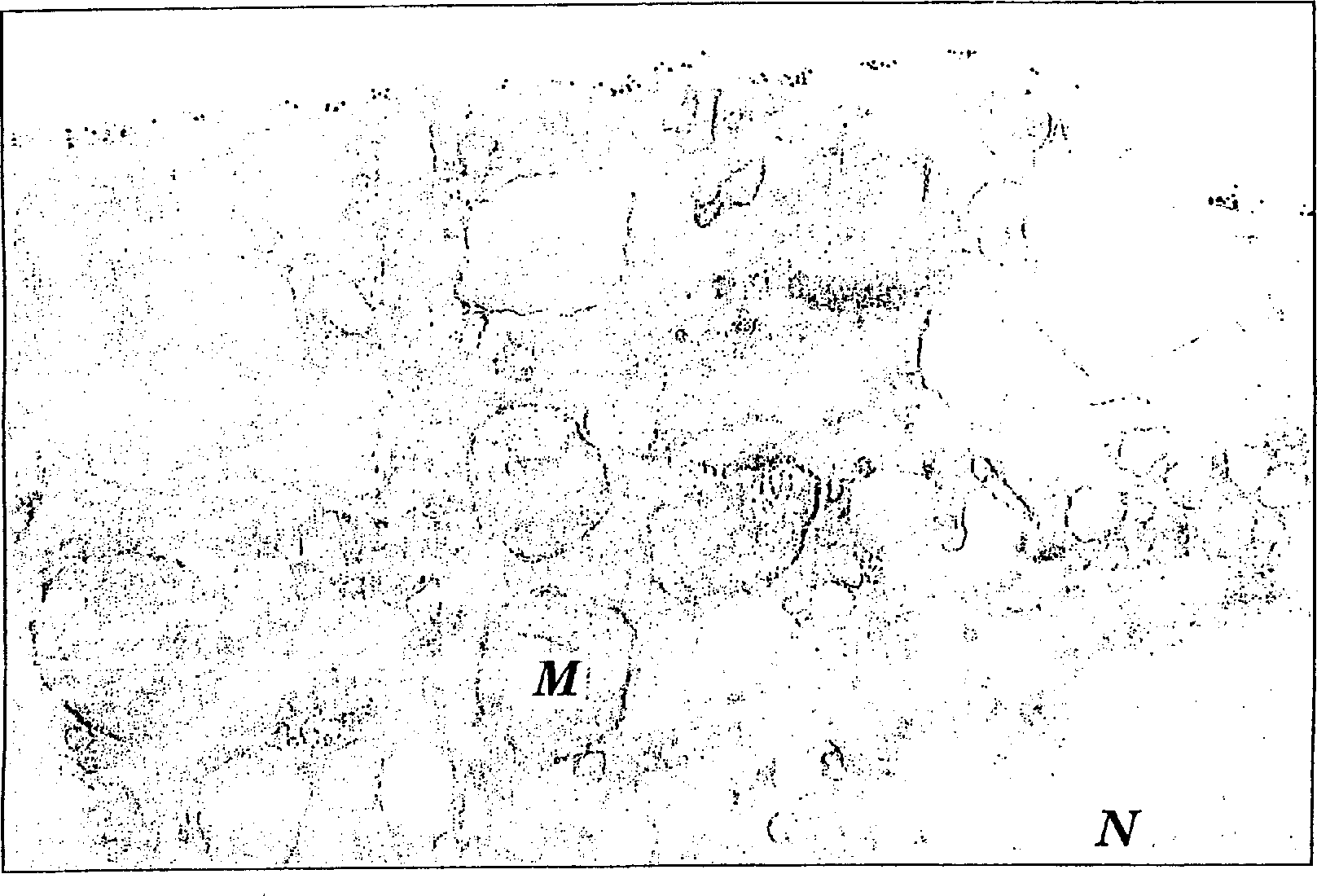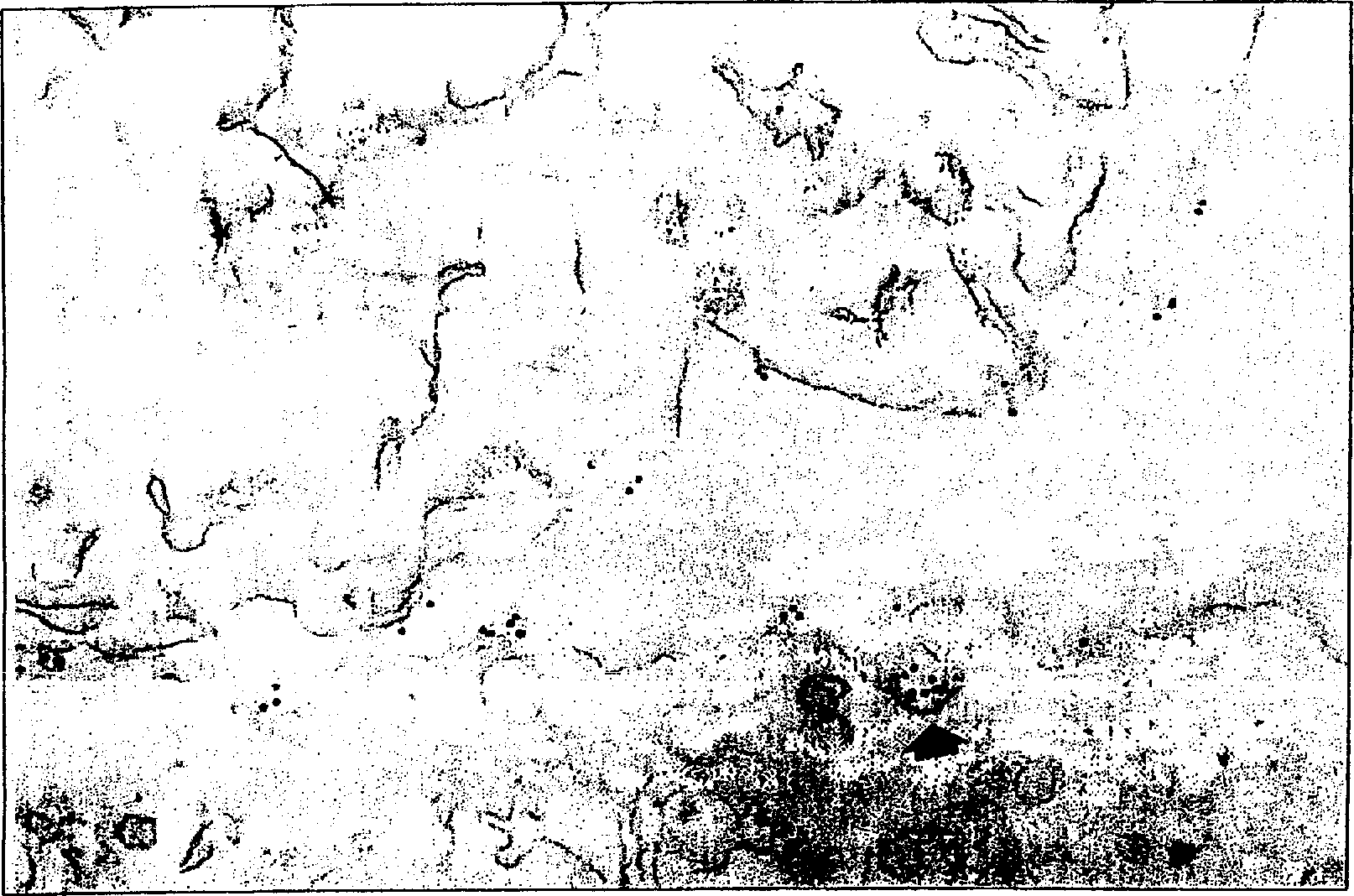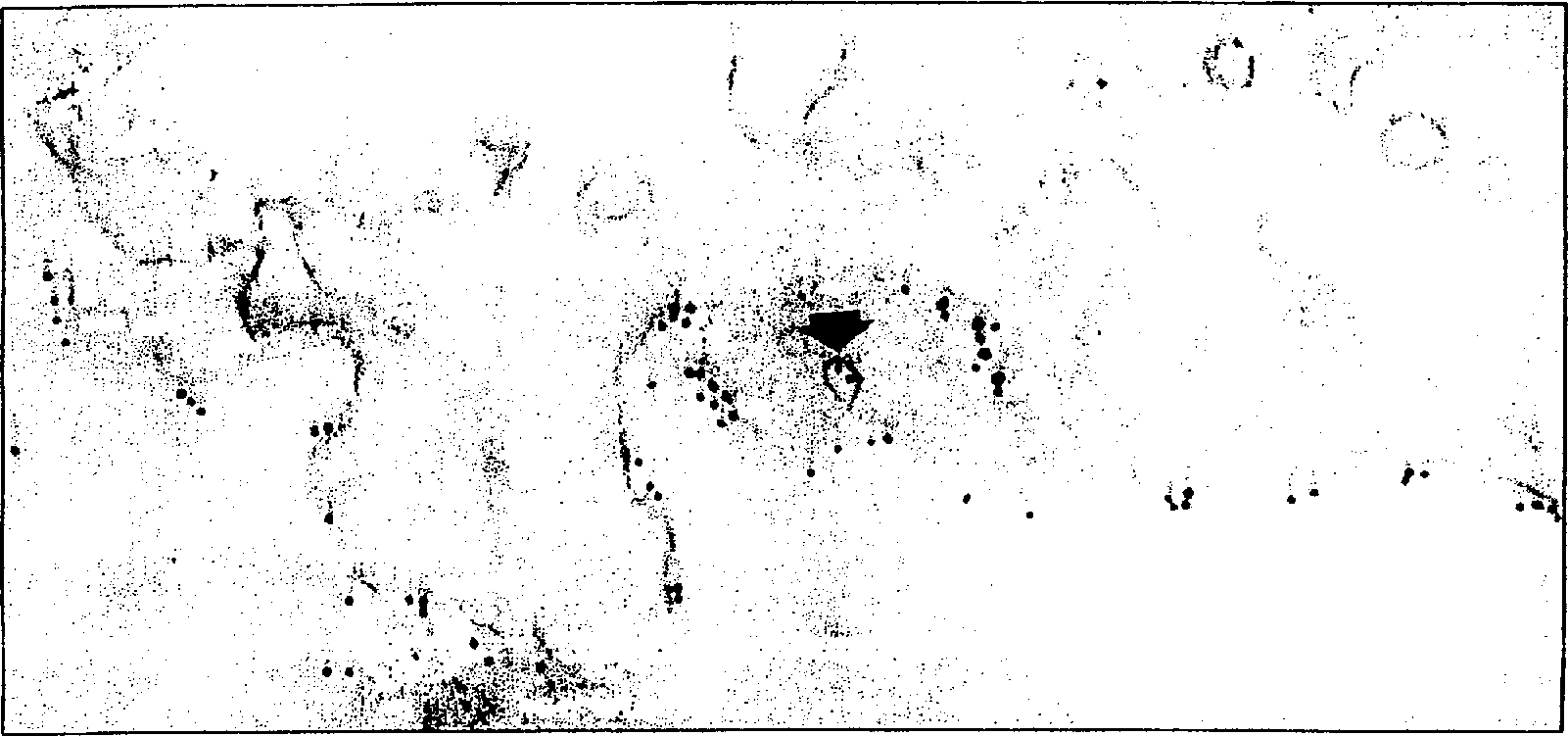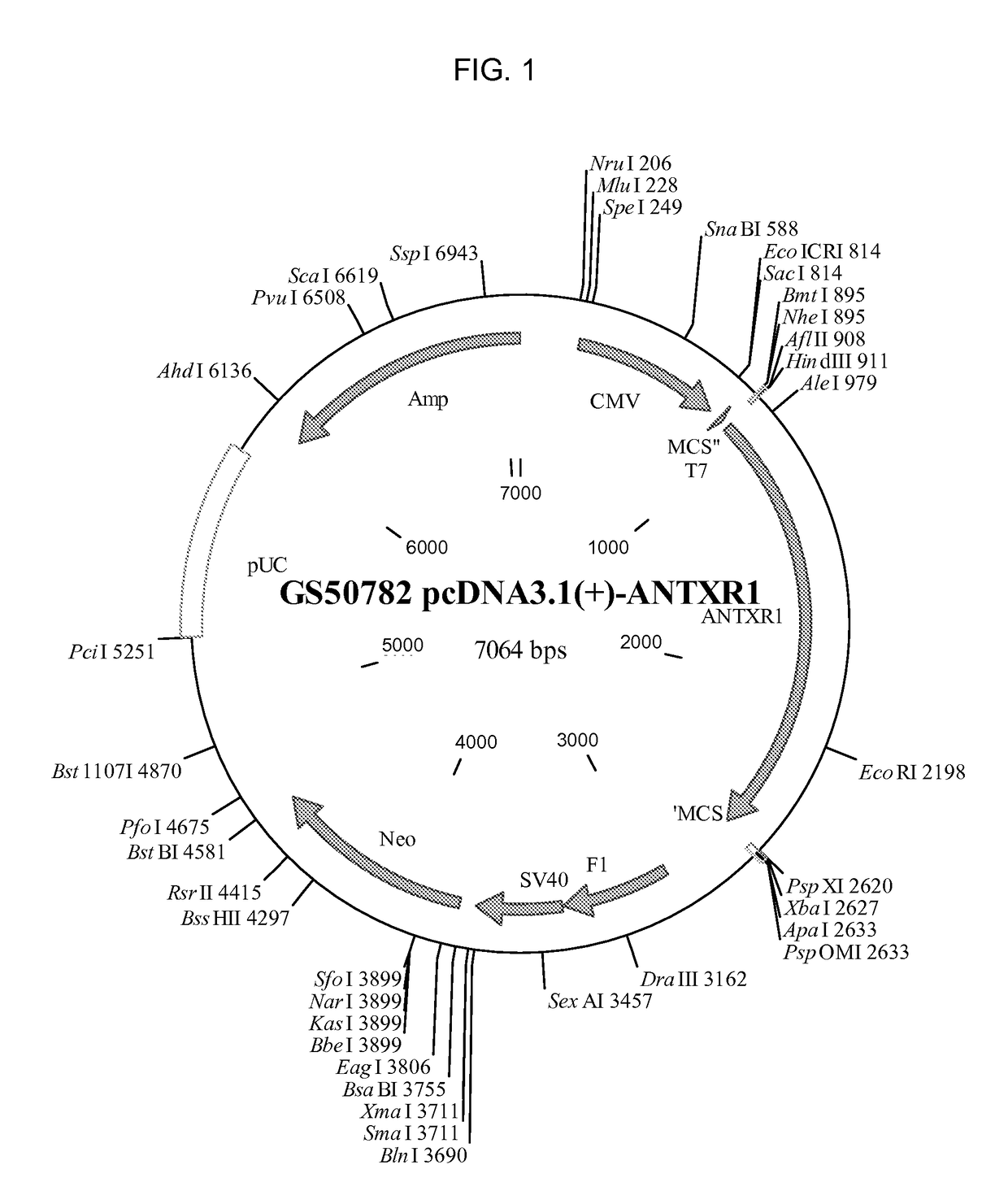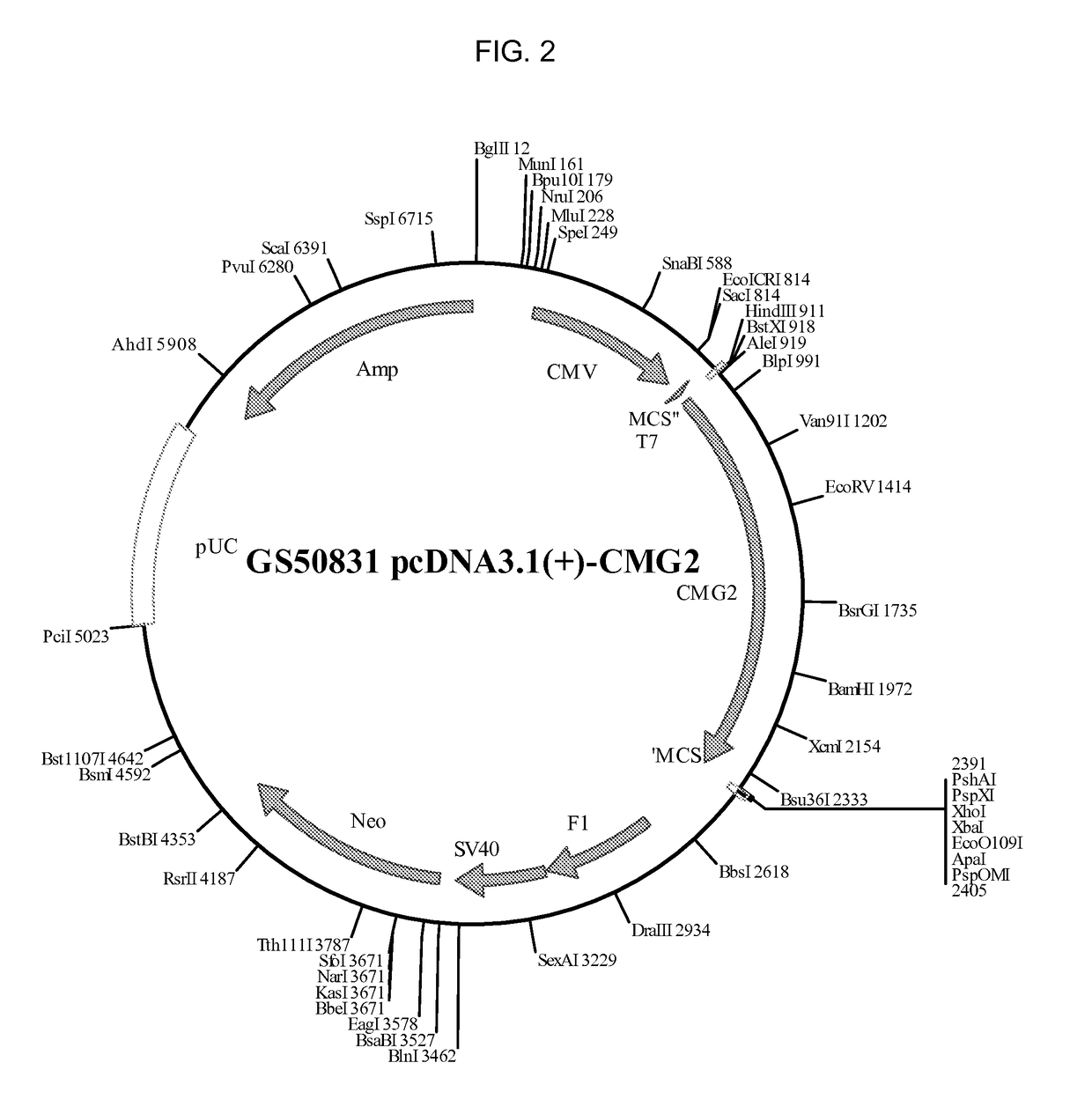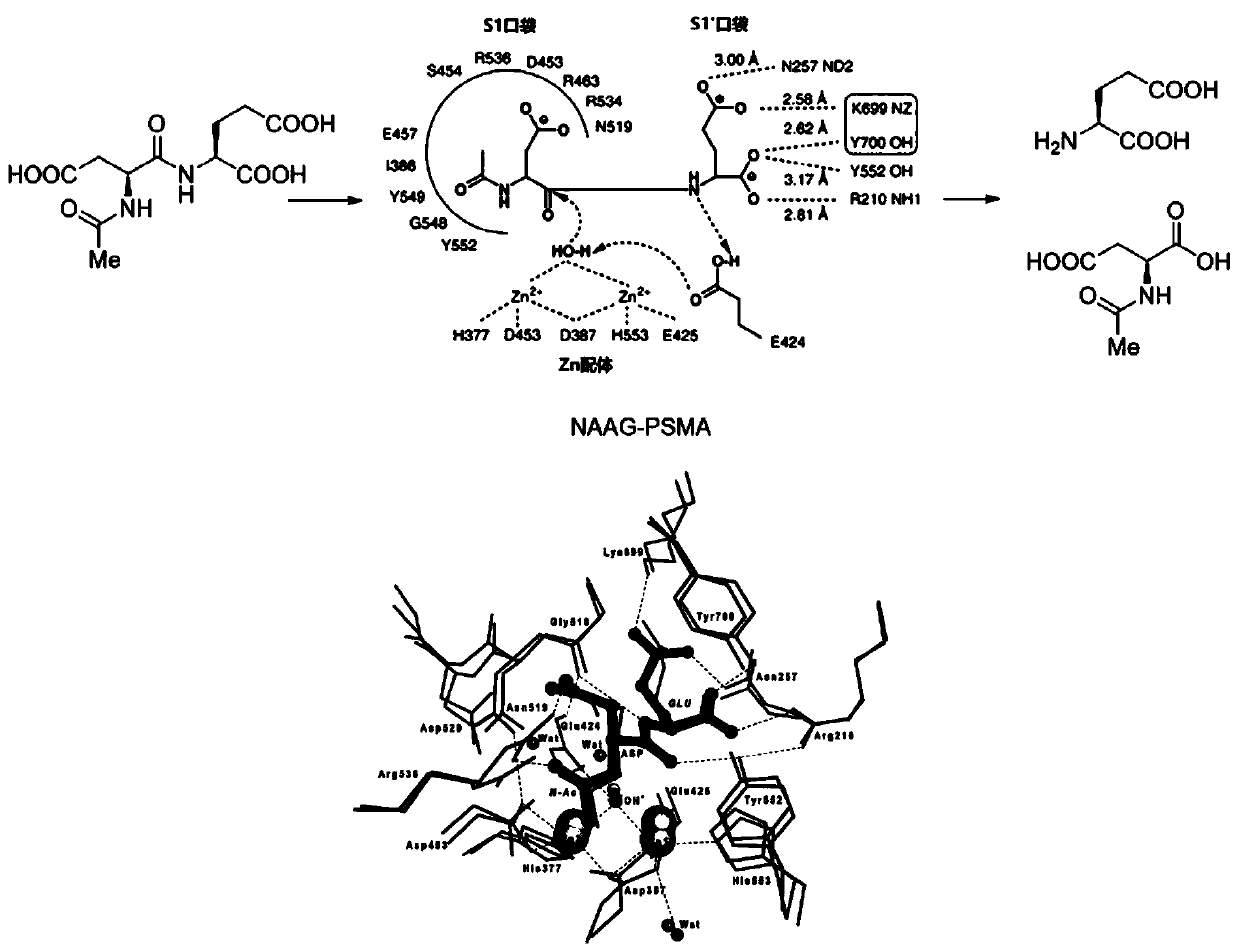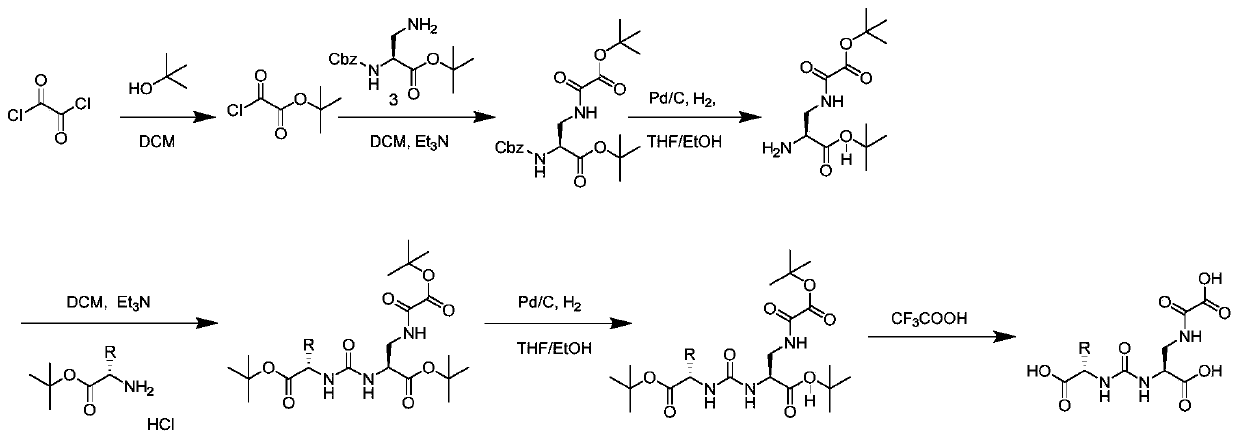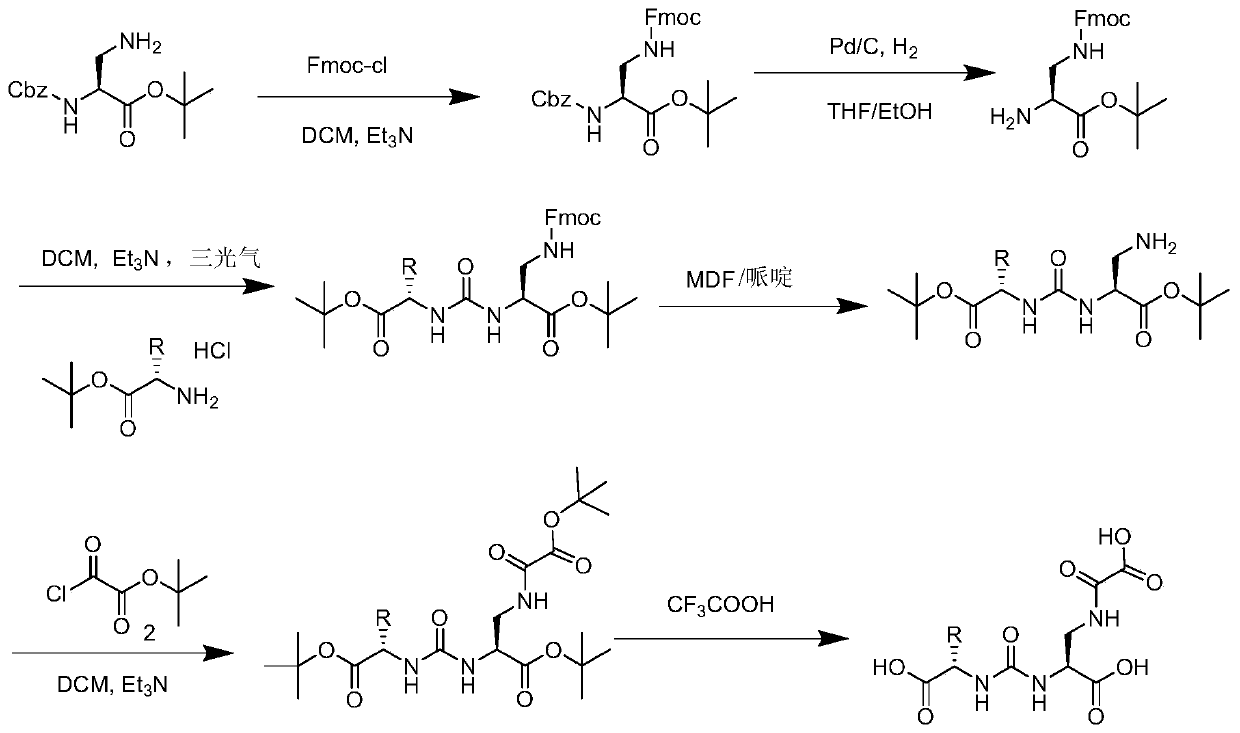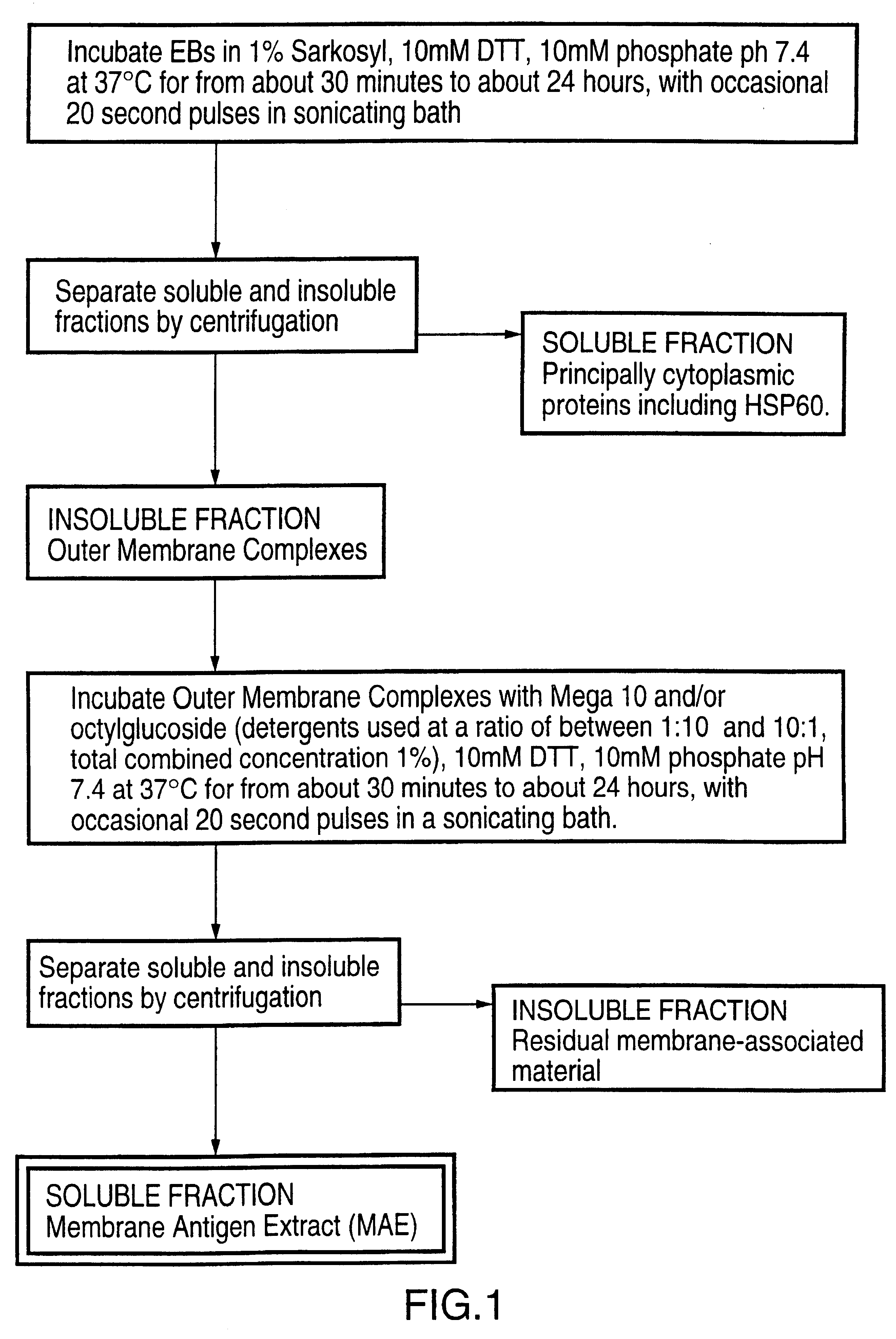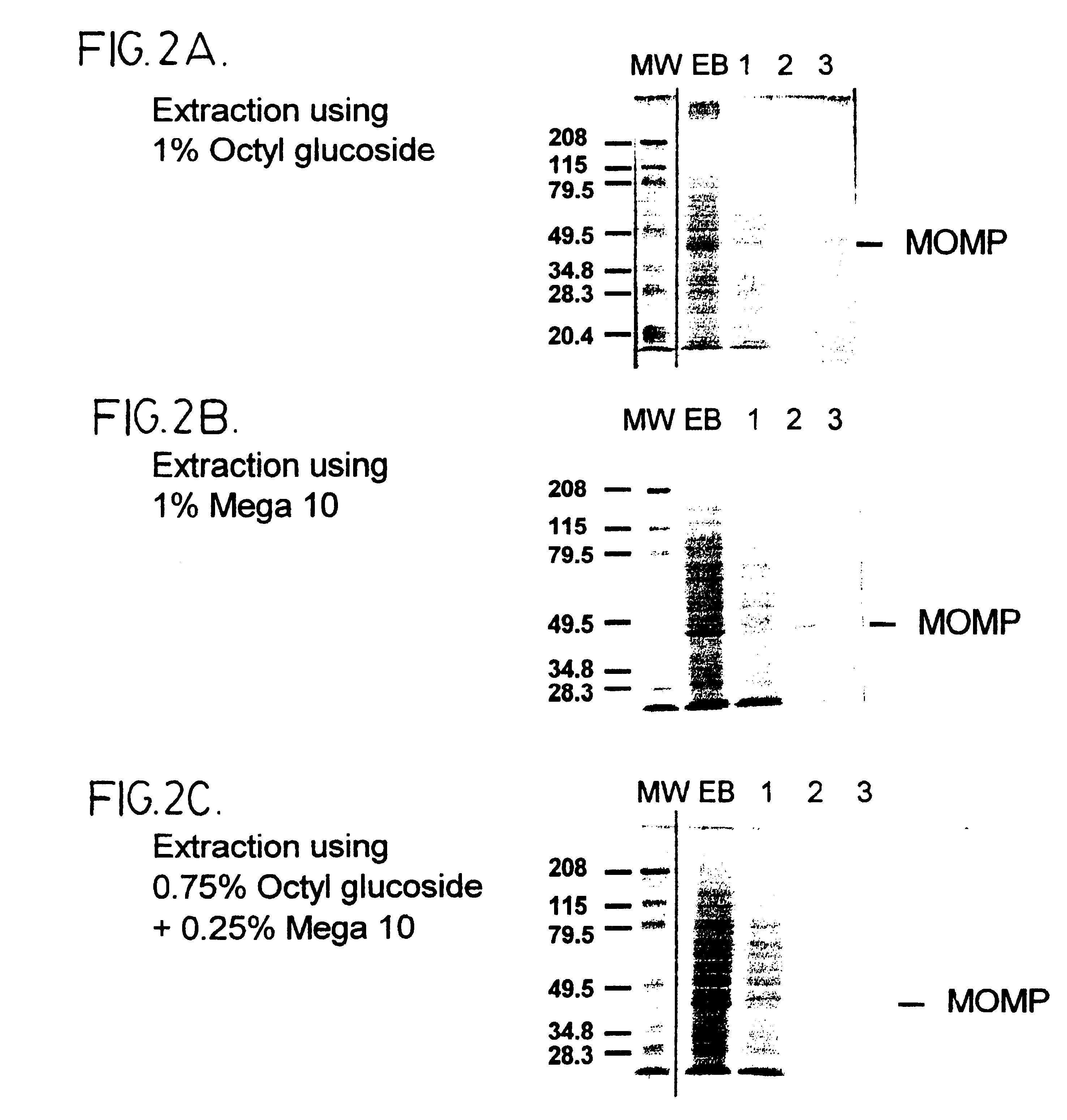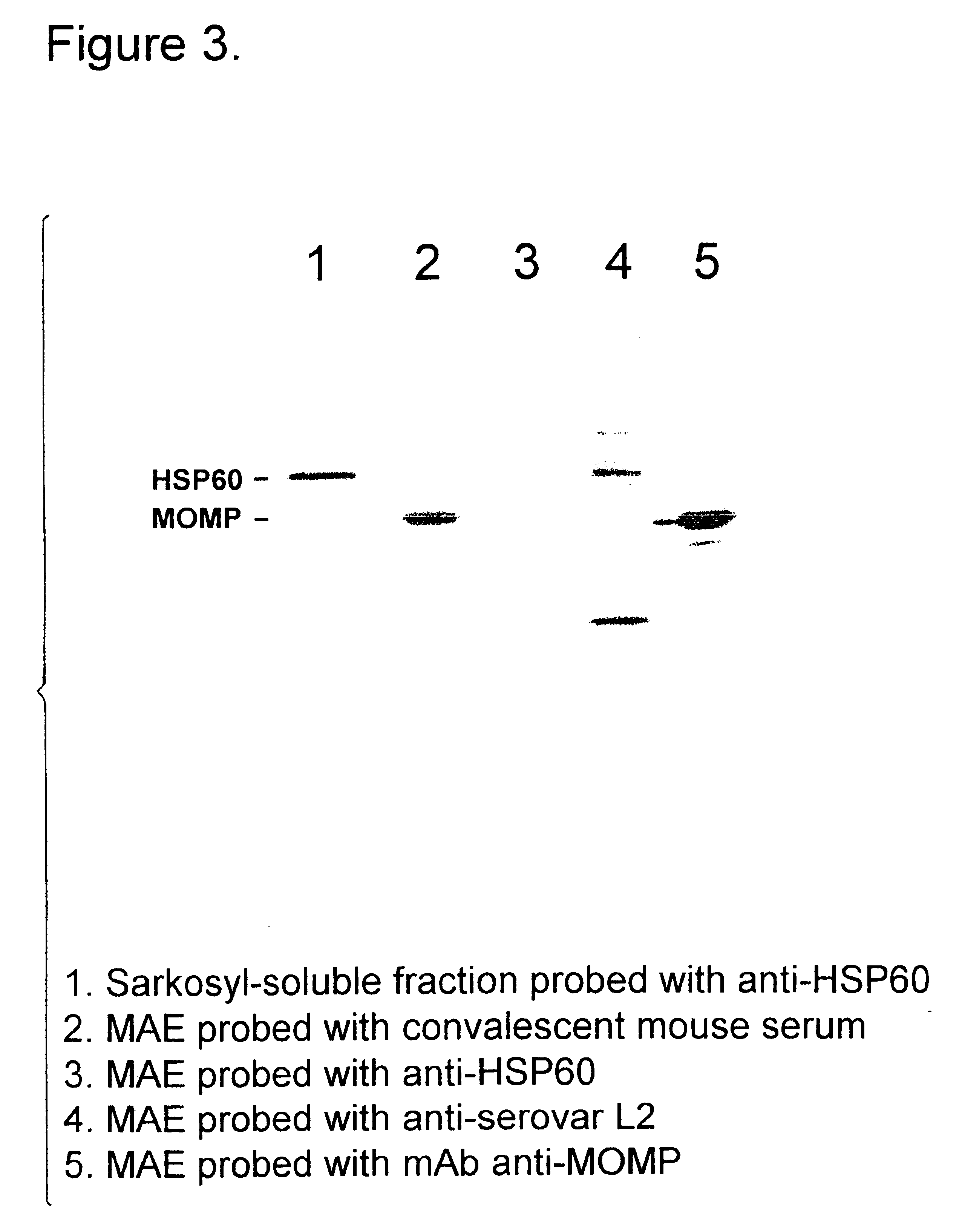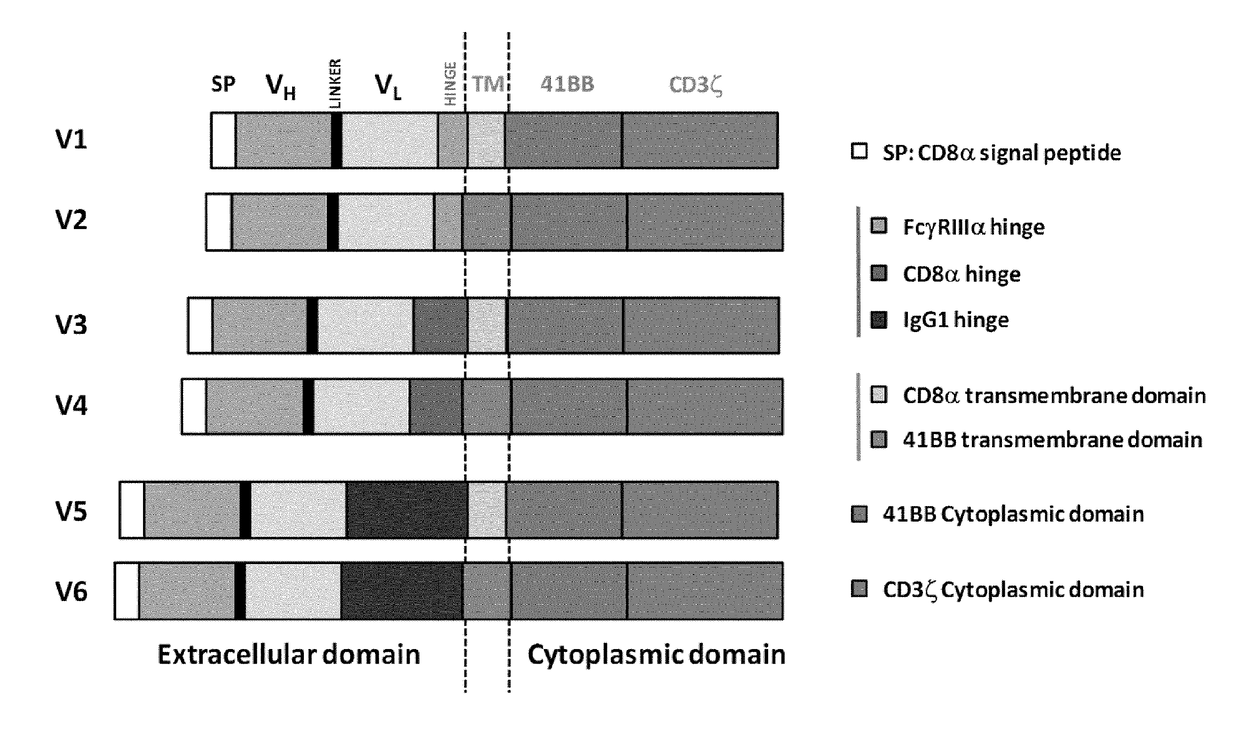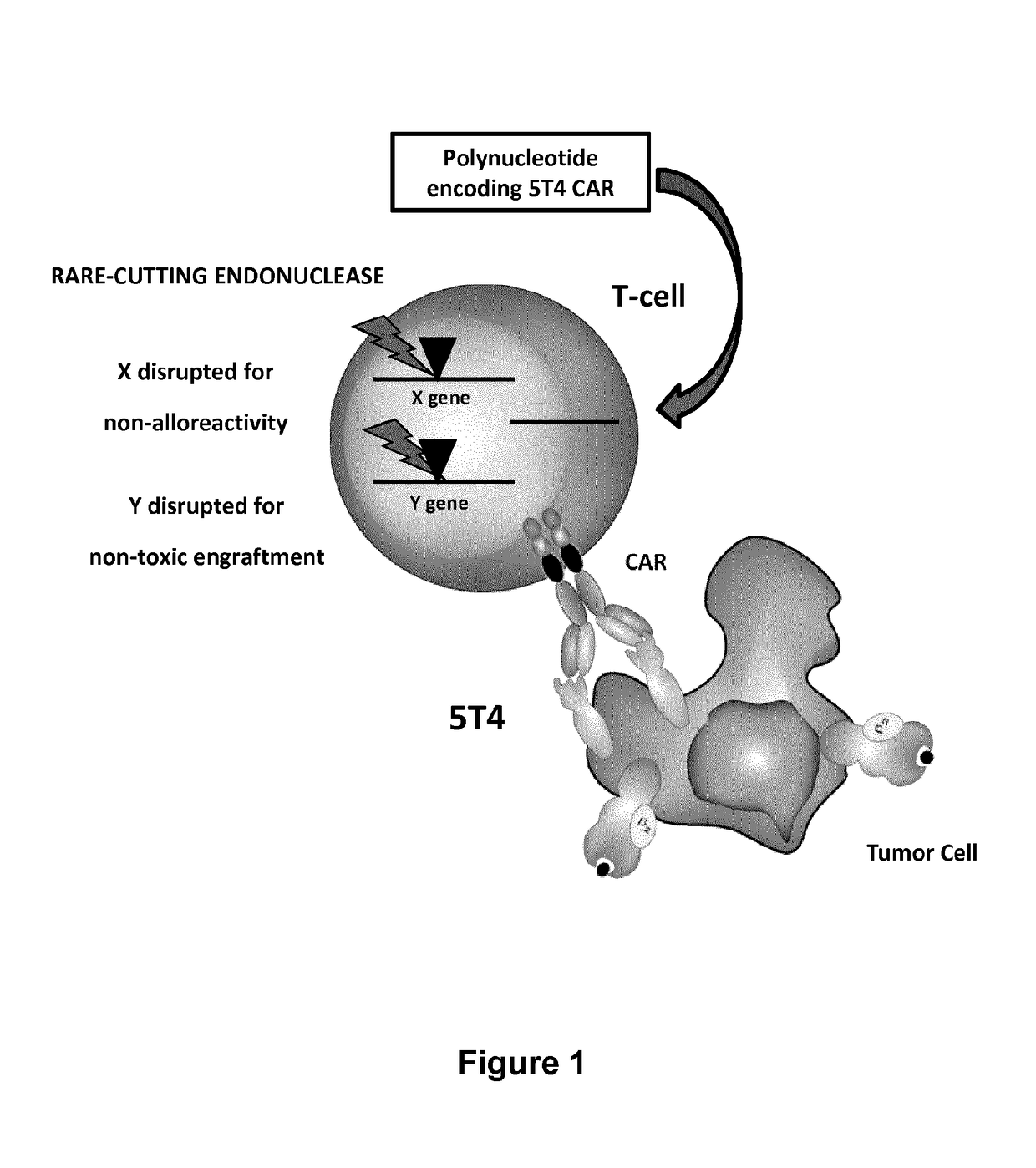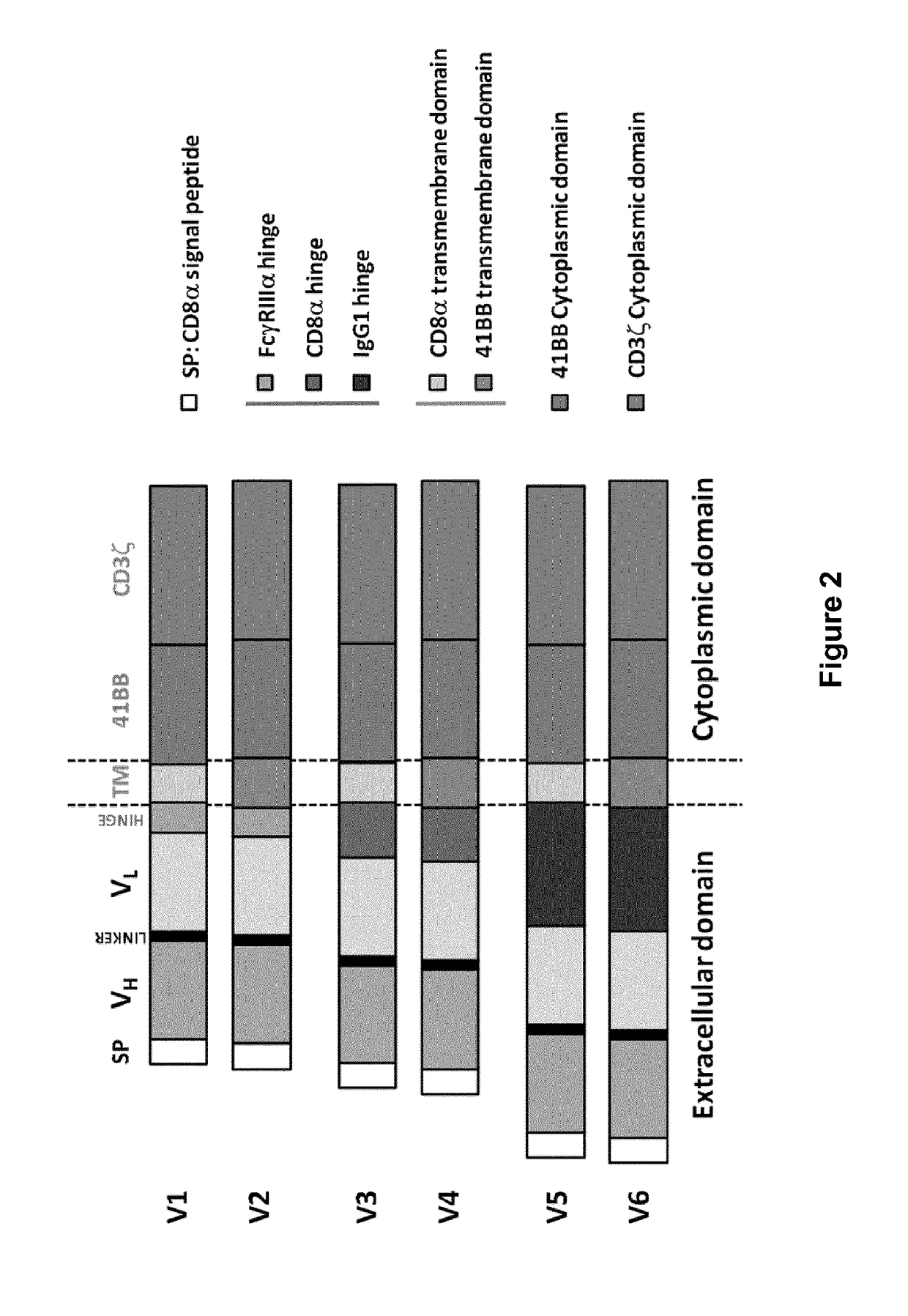Patents
Literature
111 results about "Membrane antigen" patented technology
Efficacy Topic
Property
Owner
Technical Advancement
Application Domain
Technology Topic
Technology Field Word
Patent Country/Region
Patent Type
Patent Status
Application Year
Inventor
Monoclonal antibodies specific for the extracellular domain of prostate-specific membrane antigen
The present invention relates to monoclonal antibodies that bind to the extracellular domain of prostate-specific membrane antigen (PSMA), hybridoma cell lines producing the antibodies, and methods of using such antibodies for diagnosis and treatment of cancer. In particular, thirty-five monoclonal antibodies reactive with PSMA expressed on the cell surface are exemplified. Additionally, the present invention relates to a novel protein variant (PSM') of PSMA detected by a number of the antibodies of the invention. The hydrolase activity of PSMA and PSM' allows the use of an immunoenzymatic assay for their detection.
Owner:ER SQUIBB & SONS INC
Production of tetravalent antibodies
The present invention relates to a novel process for the preparation of biologically active antibody dimers in a pharmaceutically acceptable composition. The dimers can be composed of two antibody molecules having the same antigen binding specificity and linked through reducible, disulfide, or a non-reducible thioether, bond (homodimer). Alternatively, the dimers can be composed of two different antibody molecules having binding specificity for two distinct antigens (heterodimer). These dimers are useful for inducing hyper-cross-linking of membrane antigens. The present invention further relates to the use of biologically active antibody dimers for the preferential killing or inhibition of selected cell populations in the treatment of diseases such as cancer and autoimmune disorders.
Owner:BIOGEN INC
Psma-targeting compounds and uses thereof
ActiveUS20120009121A1Satisfies long standing and unmetSharp contrastIn-vivo radioactive preparationsOrganic compound preparationAntigenProstate specific membrane
Prostate-specific membrane antigen (PSMA) targeting compounds are described. Uses of the compounds for imaging, therapy, cell sorting, and tumor mapping are also described.
Owner:THE JOHN HOPKINS UNIV SCHOOL OF MEDICINE
Novel antibody therapies
Antibody capable of mediating effector function which specifically binds to a multiple membrane spanning antigen or to an antigen which forms dimers or multimers (i) for use in combination with a cholesterol-increasing agent in the treatment of a disease or disorder associated with said antigen, wherein antibody-induced effector function has a beneficial effect on said disease or disorder or (ii) for use in the treatment of such disease or disorder, wherein the antibody is to be administered to a subject undergoing therapy with a cholesterol-lowering agent, such as a statin, and wherein the subject is withdrawn from treatment with the cholesterol-lowering agent prior to the administration of the antibody. Furthermore, a kit of parts comprising such antibody as well as a cholesterol-increasing agent.
Owner:GENMAB AS
Bcma (CD269) specific chimeric antigen receptors for cancer immunotherapy
ActiveUS20170183418A1Useful for immunotherapyHigh selectivityAntibody mimetics/scaffoldsNGF/TNF-superfamilyAntigenSpecific immunity
The present invention relates to Chimeric Antigen Receptors (CAR) that are recombinant chimeric proteins able to redirect immune cell specificity and reactivity toward selected membrane antigens, and more particularly in which extracellular ligand binding is a scFV derived from a BCMA monoclonal antibody, conferring specific immunity against BCMA positive cells. The engineered immune cells endowed with such CARs are particularly suited for treating lymphomas, multiple myeloma and leukemia.
Owner:CELLECTIS SA
Tumor precision T cell containing efficient killing starting mechanism and application of tumor precision T cell
ActiveCN105331586AActivate proliferationActivate growthImmunoglobulins against cell receptors/antigens/surface-determinantsMammal material medical ingredientsAntigen receptorsT lymphocyte
The invention belongs to the fields of immunology and cell biology, and relates to a tumor precision T cell containing an efficient killing starting mechanism and an application of the tumor precision T cell, in particular to a CAR (chimeric antigen receptor) having moderate-affinity binding characteristic with a broad-spectrum expression membrane antigen on the tumor cell surface as well as a new-generation tumor precision T cell, namely, Baize T. T cell activation is started rapidly under the action of the CAR having the moderate-affinity binding characteristic, an activation signal of the CAR is superposed with a TCR (T cell receptor) signal with tumor antigen natural recognition capacity in a CTL (tumor-specific cytotoxic T lymphocyte), the CTL is activated to proliferate and grow in a tumor microenvironment, and a tumor cell is killed preciously by the tumor-antigen-specific TCR. The tumor precision T cell has broad anti-tumor application prospect.
Owner:SHANGHAI CELL THERAPY RES INST +2
Peptidomimetic Inhibitors Of PSMA, Compounds Comprising Them, And Methods of Use
ActiveUS20070219165A1More cost-effectivelyBiocidePhosphorous compound active ingredientsAntigenProstate cancer cell
Compounds of the formula, A-L-B, wherein A is glutamate or a glutamate analog; L is a phosphoramidate or a phosphoramidate analog; and B is serine or a serine analog are described which are potent inhibitors of prostate-specific membrane antigen (PMSA). Such compounds are useful in treatment of prostate cancer; and when chemically attached to a fluorescent dye, can efficiently and selectively label prostate cancer cells for fluorescent imaging.
Owner:CANCER TARGETED TECH
Cd33 specific chimeric antigen receptors for cancer immunotherapy
ActiveUS20170145094A1Useful for immunotherapyPolypeptide with localisation/targeting motifImmunoglobulin superfamilyAntigenCD33
The present invention relates to Chimeric Antigen Receptors (CAR) that are recombinant chimeric proteins able to redirect immune cell specificity and reactivity toward selected membrane antigens, and more particularly in which extracellular ligand binding is a scFV derived from a CD33 monoclonal antibody, conferring specific immunity against CD33 positive cells. The engineered immune cells endowed with such CARs are particularly suited for treating lymphomas and leukemia.
Owner:CELLECTIS SA
Psma-targeting compounds and uses thereof
ActiveUS20150104387A1Satisfies long standing and unmetSharp contrastUltrasonic/sonic/infrasonic diagnosticsOrganic active ingredientsAntigenProstate specific membrane
Prostate-specific membrane antigen (PSMA) targeting compounds are described. Uses of the compounds for imaging, therapy, cell sorting, and tumor mapping are also described.
Owner:THE JOHN HOPKINS UNIV SCHOOL OF MEDICINE
Human erythrocyte membrane antigen coated microsphere and application thereof
InactiveCN101957366AMaintain and preserve antigenic activityLong validity periodBiological testingAntiendomysial antibodiesMicrosphere
The invention provides a method for preserving the activity of a human cell membrane blood group antigen, which comprises the steps of: preparing an erythrocyte membrane blood group antigen extract, and then coating the prepared erythrocyte membrane blood group antigen on a solid microsphere so as to replace a fresh erythrocyte to be used for detecting a blood group antibody in a sample.
Owner:INTEC PROD INC
CD33 specific chimeric antigen receptors for cancer immunotherapy
ActiveUS9944702B2Useful for immunotherapyPolypeptide with localisation/targeting motifImmunoglobulin superfamilyAntigenCD33
The present invention relates to Chimeric Antigen Receptors (CAR) that are recombinant chimeric proteins able to redirect immune cell specificity and reactivity toward selected membrane antigens, and more particularly in which extracellular ligand binding is a scFV derived from a CD33 monoclonal antibody, conferring specific immunity against CD33 positive cells. The engineered immune cells endowed with such CARs are particularly suited for treating lymphomas and leukemia.
Owner:CELLECTIS SA
Preparation method of autologous platelet-factor-rich plasma (PFRP) preparation
The invention discloses a preparation method of an autologous platelet-factor-rich plasma (PFRP) preparation. The preparation method is characterized by comprising the steps of: A, preparation of autologous PFRP, to be specific, collecting autologous whole blood, and preparing the autologous PFRP in a centrifuging and freeze-thawing manner; and B, preparation of the PFRP preparation, to be specific, mixing the obtained PFRP with a biological scaffold / autologous somatic cells according to a volume ratio of (3:1)-(1:1) to obtain the PFRP preparation. By means of specially processing the autologous whole blood to obtain the autologous PFRP, pollution risks caused by adding an activating agent are reduced, and the immune risks of a membrane antigen during heterogenous usage are avoided. The autologous PFRP preparation prepared according to the method not only has a good effect of repairing damaged tissues such as meniscus, but also has very good anti-wrinkle, filling and lifting effects.
Owner:CHENGDU QINGKE BIOTECH
CD123 specific chimeric antigen receptors for cancer immunotherapy
ActiveUS9944709B2Useful for immunotherapyReduce in quantityPolypeptide with localisation/targeting motifImmunoglobulin superfamilyAntigenAntigen receptor
The present invention relates to Chimeric Antigen Receptors (CAR) that are recombinant chimeric proteins able to redirect immune cell specificity and reactivity toward selected membrane antigens, and more particularly in which extracellular ligand binding is a scFV derived from a CD123 monoclonal antibody, conferring specific immunity against CD123 positive cells. The engineered immune cells endowed with such CARs are particularly suited for treating lymphomas and leukemia.
Owner:CELLECTIS SA
Ror1 (ntrkr1) specific chimeric antigen receptors for cancer immunotherapy
ActiveUS20170283497A1Good effectUseful for immunotherapyGenetic material ingredientsImmunoglobulins against cell receptors/antigens/surface-determinantsAntigenSpecific immunity
The present invention relates to Chimeric Antigen Receptors (CAR) that are recombinant chimeric proteins able to redirect immune cell specificity and reactivity toward selected membrane antigens, and more particularly in which extracellular ligand binding is a scFV derived from a ROR1 monoclonal antibody, conferring specific immunity against ROR1 positive cells. The engineered immune cells endowed with such CARs are particularly suited for treating lymphomas and leukemia, and for solid tumors such as breast, colon, lung, and kidney tumors
Owner:CELLECTIS SA
Syphilis spirochete membrane antigen with shorten expression and uses thereof
InactiveCN101293919ASignificant antigen reactivityAntigen reactivity verificationBacteriaDepsipeptidesAntigenSpiroplasma
The invention discloses a DNA sequence expressing a truncated treponema pallidum membrane antigen and an amino acid sequence The membrane antigen is removed of the part having high homology with human fibronectin, so as to avoid false positive and improve the specificity of the serological test for diagnosis of treponema pallidum infection. The invention also discloses the application of the membrane antigen in preparing diagnostic reagents for detecting treponema pallidum infection.
Owner:ARMY MEDICAL UNIV
Method for separating sperm in sperm and epithelial cell mixed stain by using immunological magnetic beads
InactiveCN103592432AImprove energy efficiencyAvoiding Mixed Typing ProblemsBiological testingGerm cellsAntigenMagnetic bead
The invention discloses a method for separating sperm in a sperm and epithelial cell mixed stain by using immunological magnetic beads, which comprises the following steps: 1) labeling an anti-sperm membrane protein antibody with biotin; 2) combining sperm and the antibody; 3) combining magnetic beads and the antibody-sperm complex; 4) separating the sperm and an epithelial cell; and 5) separating the sperm and the magnetic beads. According to the method, the anti-sperm membrane protein antibody is labeled with the biotin, and coupling to the biotin is realized through avidin (coated on the magnetic beads), thus successfully constructing the magnetic bead-avidin-biotin-antibody-membrane antigen (sperm) complex; and a related reagent system is optimized, and a corresponding operation procedure is established, thus improving energy efficiency of mixed stain examination. The method has the advantages of fewer procedures, simple operation, convenient popularization and the like, and can provide theoretical and practical foundations for automatic examination.
Owner:CHONGQING MUNICIPAL PUBLIC SECURITY BUREAU
Chemical conjugates of evans blue derivatives and their use as radiotherapy and imaging agents for targeting prostate cancer
PendingCN111741751AEasy to addAdjustment quantityOrganic active ingredientsMonoazo dyesAntigenImaging agent
A compound of Formula (I) or a pharmaceutically acceptable ester, amide, solvate, or salt thereof, or a salt of such an ester or amide or a solvate of such an ester amide or salt. Definitions of R1-R13 and L1-L4 are provided in the disclosure, and R14 is a group capable of binding to prostate-specific membrane antigen (PSMA).
Owner:UNITED STATES OF AMERICA
Chlamydial vaccines and methods of preparation thereof
InactiveUS6464979B1Strong immune responseImproving immunogenicityBacterial antigen ingredientsPeptide/protein ingredientsDiseaseImmunostimulating Complexes
Immunogenic compositions including vaccines are described that comprise an outer membrane antigen extract of a strain of Chlamydia and are effective in protection against disease caused by Chlamydia infection. The immunogenic compositions may comprise the major outer membrane protein (MOMP) of Chlamydia which may be in a homooligomeric form or complexed with at least one other antigen of Chlamydia. The immunogenic composition may include an immunostimulating complex (ISCOM) and the outer membrane antigen may be incorporated therein. The immunogenic compositions have utility as chlamydial vaccines and in diagnostic applications.
Owner:AVENTIS PASTEUR LTD
Preparation and usage of plasmodium fusion antigen
InactiveUS7101556B2Simple and low-cost methodBacteriaPeptide/protein ingredientsImmunogenicityGenetic engineering
The invention provides a fusion protein comprising the Plasmodium merozoite surface protein-1 (MSP1) and the Plasmodium apical membrane antigen 1 (AMA-1), the encoding DNA sequence, the vector containing the sequence, the host cell containing the vector, and the genetic engineering method for preparing the fusion protein and the usage for producing anti-malarial vaccine. The AMA-1 / MSP1 fusion protein of the present invention has excellent immunogenicity and can cause an effective immune response against Plasmodium in individuals.
Owner:SECOND MILITARY MEDICAL UNIV OF THE PEOPLES LIBERATION ARMY
Production of tetravalent antibodies
InactiveUS20050158828A1Immunoglobulins against cell receptors/antigens/surface-determinantsImmunological disordersAntigen bindingMembrane antigen
The present invention relates to a novel process for the preparation of biologically active antibody dimers in a pharmaceutically acceptable composition. The dimers can be composed of two antibody molecules having the same antigen binding specificity and linked through a reducible, disulfide, or a non-reducible thioether, bond (homodimer). Alternatively, the dimers can be composed of two different antibody molecules having binding specificity for two distinct antigens (heterodimer). These dimers are useful for inducing hyper-cross-linking of membrane antigens. The present invention further relates to the use of biologically active antibody dimers for the preferential killing or inhibition of selected cell populations in the treatment of diseases such as cancer and autoimmune disorders.
Owner:BIOGEN INC
Ror1(ntrkr1)specific chimeric antigen receptors for cancer immunotherapy
ActiveCN106922148AStrong cytotoxicitySignificant clinical advantageGenetic material ingredientsMammal material medical ingredientsAntigenSpecific immunity
The present invention relates to Chimeric Antigen Receptors (CAR) that are recombinant chimeric proteins able to redirect immune cell specificity and reactivity toward selected membrane antigens, and more particularly in which extracellular ligand binding is a scFV derived from a ROR1 monoclonal antibody, conferring specific immunity against ROR1 positive cells. The engineered immune cells endowed with such CARs are particularly suited for treating lymphomas and leukemia, and for solid tumors such as breast, colon, lung, and kidney tumors
Owner:CELLECTIS SA
EGFRvIII specific chimeric antigen receptors for cancer immunotherapy
InactiveCN107074973AEasy to implantBetter and Safer ImplantationGenetic material ingredientsMammal material medical ingredientsAntigenGlioblastoma
The present invention relates to Chimeric Antigen Receptors (CAR) that are recombinant chimeric proteins able to redirect immune cell specificity and reactivity toward selected membrane antigens, and more particularly in which extracellular ligand binding is a scFV derived from an EGFRvIII monoclonal antibody, conferring specific immunity against EGFRvIII positive cells. The TCR KO engineered immune cells endowed with such CARs are particularly suited for treating lung cancer, anal cancers and glioblastoma multiforme.
Owner:ALLOGENE THERAPEUTICS INC
Prostate-specific antigen targeting inhibitor of nuclide marker and preparation method of nuclide marker
PendingCN106075484AStable in natureImprove imaging effectRadioactive preparation carriersUrinary disorderAntigenTumor therapy
The invention provides a prostate-specific antigen targeting inhibitor of a nuclide marker. The targeting inhibitor is DKFZ-PSMA-617 of a radioactive nuclide marker. Radioactive nuclide includes at least one of 64Cu, 68Ga and 89Zr. The invention further provides a preparation method of the nuclide marker DKFZ-PSMA-617. The nuclide marker DKFZ-PSMA-617 is stable in property and good in development effect, has high affinity and functional activity on PSMA, is beneficial to diagnosis and accurate staging of early prostate cancer, and provides a new thought for diagnosis of breast cancer and gastric adenocarcinoma. Further preclinical animal level research proves that the inhibitor is expected to become a targeting PSMA developing agent and a tumor treatment agent with good application prospects.
Owner:BEIJING CANCER HOSPITAL PEKING UNIV CANCER HOSPITAL
Hepatitis C virus envelope antigen ELISA kit and detecting method
The invention discloses an ELISA kit for a hepatitis C virus envelope antigen and a detection method thereof. The ELISA kit comprises an ELISA plate, three polypeptides (12-peptide ZA, 12-peptide ZB and 12-peptide ZD) which are labeled by biotin and capable of being in specific binding with HCV E2 protein, a rabbit anti-E2 polyclonal antibody and streptavidin labeled by horseradish peroxidase. A method of the kit for detecting the hepatitis C virus envelope antigen comprises the following steps: firstly, coating the rabbit anti-E2 polyclonal antibody; then adding blood serum of a patient to be detected; thirdly, adding the polypeptides labeled by the biotin; fourth, adding the streptavidin labeled by the horseradish peroxidase; and fifth, adding o-phenylenediamine for color development and reading an OD value by an ELISA reader at OD450nm. The polypeptides and labels thereof are applied to the kit for detecting the hepatitis C virus envelope antigen. Meanwhile, the polypeptides can also be used for preparing a medicine for treating or preventing the hepatitis C virus infection. The ELISA kit can be widely used in medicine-related fields and the like.
Owner:WUHAN UNIV
Cross-species-specific psmaxcd3 bispecific single chain antibody
InactiveCN103025759AImprove securityPeptide/protein ingredientsImmunoglobulins against cytokines/lymphokines/interferonsEpitopeSingle-Chain Antibodies
The present invention relates to a bispecific single chain antibody molecule comprising a first binding domain capable of binding to an epitope of human and non-chimpanzee primate CD3 epsilon chain, wherein the epitope is part of an amino acid sequence comprised in the group consisting of SEQ ID NOs. 2, 4, 6, and 8, and a second binding domain capable of binding to prostate-specific membrane antigen (PSMA). The invention also provides nucleic acids encoding said bispecific single chain antibody molecule as well as vectors and host cells and a process for its production. The invention further relates to pharmaceutical compositions comprising said bispecific single chain antibody molecule and medical uses of said bispecific single chain antibody molecule.
Owner:AMGEN RES (MUNICH) GMBH
Treatment and diagnosis of cancer
InactiveCN1244921APeptide/protein ingredientsMicrobiological testing/measurementAntigenAntiendomysial antibodies
The present invention is directed to the use of antibodies or binding portions thereof, probes, ligands, or other biological agents which either recognize an extracellular domain of prostate specific membrane antigen or bind to and are internalized with prostate specific membrane antigen. These biological agents can be labeled and used for detection of cancerous tissues, particularly cancerous tissues proximate to or containing vascular endothelial cells, which express an extracellular domain of prostate specific membrane antigen. The labeled biological agents can also be used to detect normal, benign hyperplastic, and cancerous prostate epithelial cells or portions thereof. They also can be used alone or bound to a substance effective to ablate or kill such cells as a therapy for prostate or other cancers. Also disclosed are four hybridoma cell lines, each of which produces a monoclonal antibody recognizing extracellular domains of prostate specific membrane antigens of normal, benign hyperplastic, and cancerous prostate epithelial cells or portions thereof.
Owner:CORNELL RES FOUNDATION INC
Tem8 antibodies and methods of use
InactiveUS20170114133A1High activityPolypeptide with localisation/targeting motifOrganic active ingredientsAntigen Binding FragmentMean fluorescence intensity
The present invention provides, inter alia, isolated monoclonal and polyclonal anti-tumor endothelial marker 8 (TEM8) antibodies or antigen binding fragments thereof that (a) bind to TEM8 membrane antigen in its native form occurring on the surface of a tumor cell; (b) may be internalized by a tumor cell; (c) bind strongly to tumor cells but not or only minimally to cells which lack expression of TEM8; and (d) are characterized in that the mean fluorescence intensity (MFI) of the antibody or an antigen binding fragment thereof against a mammalian cell line expressing TEM8 is at least two times higher than the MFI against the mammalian cell line not expressing TEM8 at antigen saturation. Chimeric antigen receptors (CARs) including an antigen binding fragment of such antibodies, modified antibodies, compositions, pharmaceutical compositions, and kits including the antibodies according to the present invention, and methods of use are also provided.
Owner:BIOMED VALLEY DISCOVERIES INC
PSMA (Prostate-Specific Membrane Antigen) inhibitor, compound and application
The invention belongs to the technical field of biomedicines and in particular relates to a PSMA (Prostate-Specific Membrane Antigen) inhibitor, a compound and application. The PSMA inhibitor of a novel core structure, which is provided by the invention, has very high affinity, is stable in structure and has wide application prospects.
Owner:PEKING UNIV FIRST HOSPITAL
Chlamydial vaccines and immunogenic compositions containing an outer membrane antigen and methods of preparation thereof
InactiveUS6635746B1Strong immune responseImproving immunogenicityPeptide/protein ingredientsPeptide preparation methodsDiseaseImmunostimulating Complexes
Immunogenic compositions including vaccines are described that comprise an outer membrane antigen extract of a strain of Chlamydia and are effective in protection against disease caused by Chlamydia infection The immunogenic compositions may comprise the major outer membrane protein (MOMP) of Chlamydia which may be in a homooligomeric form or complexed with at least one other antigen of Chlamydia. The immunogenic composition may include an immunostimulating complex (ISCOM) and the outer membrane antigen may be incorporated therein. The immunogenic compositions have utility as chlamydial vaccines and in diagnostic applications.
Owner:AVENTIS PASTEUR LTD
Trophoblast glycoprotein (5t4, tpbg) specific chimeric antigen receptors for cancer immunotherapy
ActiveUS20170275374A1Useful for immunotherapyPolypeptide with localisation/targeting motifImmunoglobulin superfamilyAntigenSpecific immunity
The present invention relates to Chimeric Antigen Receptors (CAR) that are recombinant chimeric proteins able to redirect immune cell specificity and reactivity toward selected membrane antigens, and more particularly in which extracellular ligand binding is a scFV derived from a 5T4 monoclonal antibody, conferring specific immunity against 5T4 positive cells. The engineered immune cells endowed with such CARs are particularly suited for treating lymphomas and leukemia, and for solid tumors such as colon, stomach, and ovarian tumors.
Owner:CELLECTIS SA
Features
- R&D
- Intellectual Property
- Life Sciences
- Materials
- Tech Scout
Why Patsnap Eureka
- Unparalleled Data Quality
- Higher Quality Content
- 60% Fewer Hallucinations
Social media
Patsnap Eureka Blog
Learn More Browse by: Latest US Patents, China's latest patents, Technical Efficacy Thesaurus, Application Domain, Technology Topic, Popular Technical Reports.
© 2025 PatSnap. All rights reserved.Legal|Privacy policy|Modern Slavery Act Transparency Statement|Sitemap|About US| Contact US: help@patsnap.com


